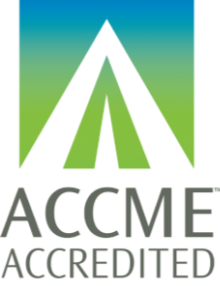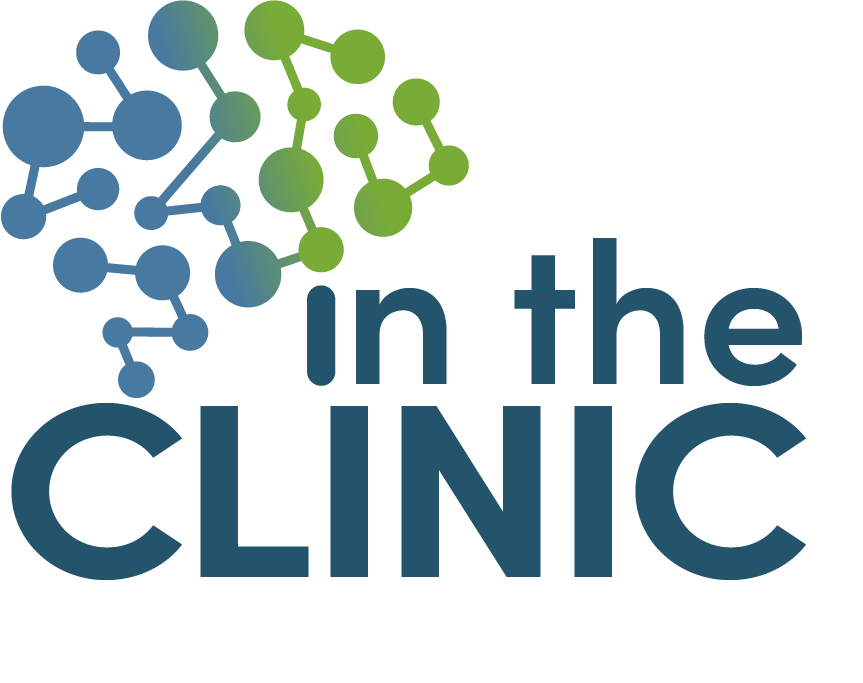This activity is provided by Integrity Continuing Education, Inc.
This activity is supported by an independent medical education grant from Regeneron Pharmaceuticals, Inc. and Sanofi.
Although chronic obstructive pulmonary disease (COPD) is the fourth leading cause of death worldwide, current management does not alter progression of the disease. An increased understanding of the pathophysiology of COPD, particularly the eosinophilic phenotype, has shown that the cytokines IL-4, IL-5, and IL-13 play a critical part in the inflammatory process. IL-33 also appears to be involved in this process. The discovery of these cytokines and the role they have in T2 inflammation points to potential therapeutic targets, and predictive biomarkers for treatment response and disease progression. Three newly approved therapies for asthma that target IL-4, IL-5, and/or IL-13 (mepolizumab, benralizumab, and dupilumab) are now in trials for COPD, while iItepekimab is under investigation for both asthma and COPD. Available evidence to date shows the promise for a biologic to potentially be approved and available for the treatment of COPD in the near future. In this activity, Drs. Surya Bhatt and Nicola Hanania will engage in a dynamic discussion and walk you through a series of interactive case-based decision points to help you learn more about T2 inflammation in COPD and how to best manage these patients given currently available data.
This educational activity has been designed to meet the needs of US pulmonologists, specialty advanced practice providers (APPs), and internal medicine clinicians.
Upon completion of this educational activity, participants should be able to:
 |
Surya P. Bhatt, MD Medical Director Pulmonary Function and Exercise Physiology Lab University of Alabama–Birmingham Birmingham, Alabama |
 |
Nicola Alexander Hanania, MD Professor of Medicine Director, Airways Clinical Research Center Baylor College of Medicine Houston, Texas |
Integrity Continuing Education, Inc. requires instructors, planners, managers, and other individuals who are in a position to control the content of this activity to disclose any financial relationships with ineligible companies. All identified relevant financial relationships are thoroughly vetted by Integrity Continuing Education, Inc. for fair balance, scientific objectivity of studies mentioned in the materials or used as the basis for content, and appropriateness of patient care recommendations. All relevant financial relationships have been mitigated.
The following faculty/planners reported the financial relationships or relationships to products or devices they have with ineligible companies related to the content of these CME activities:
Surya P. Bhatt, MD
Advisory Board: Boehringer Ingelheim, GSK, Regeneron, Sanofi
Consulting: Boehringer Ingelheim, Sanofi
Research Support: Nuvaira, Sanofi, Genentech
Nicola Alexander Hanania, MD
Consultant: Amgen, AstraZeneca, Boehringer Ingelheim, Genentech, GSK, Sanofi, Teva
Research Support: AstraZeneca, Boehringer Ingelheim, Genentech, GSK, Novartis, Sanofi, Teva
Speaker: Sanofi
Integrity Continuing Education, Inc. planners and managers do not have any financial relationships or relationships to products or devices with ineligible companies.
There are no fees for participating and receiving CME credit for this activity. During the period of February 15, 2024 through August 15, 2024, participants must:
A statement of credit will be issued only upon receipt of a completed posttest with a score of 65% or better and a completed activity evaluation form.
Integrity Continuing Education, Inc. is accredited by the Accreditation Council for Continuing Medical Education (ACCME) to provide continuing medical education for physicians.
Integrity Continuing Education, Inc. designates this enduring material for a maximum of 1.0 AMA PRA Category 1 CreditTM. Physicians should claim only the credit commensurate with the extent of their participation in the activity.
For information about ACCME accreditation of this activity, please contact Integrity Continuing Education, Inc. at (855) 835-4004 or cme@integrityce.com.
This educational activity may contain discussion of published and/or investigational uses of agents that are not indicated by the FDA. Integrity Continuing Education, Inc. does not recommend the use of any agent outside of the labeled indications.
The opinions expressed in the educational activity are those of the faculty and do not necessarily represent the views of any organization associated with this activity. Please refer to the official prescribing information for each product for discussion of approved indications, contraindications, and warnings.
Internet
When you participate in an online educational activity sponsored by Integrity Continuing Education, Inc. you will be asked for your name, degree(s), affiliation(s), street address, telephone number and…(continued)
Minimum Processor: Intel Pentium 4, 2.33 + GHz (or equivalent)
Operating Systems: Windows XP, Windows 2000, Windows Vista, Windows 7, Windows 10, and Mac OS
Plug-in: Adobe® Flash® Player 10
For optimal performance, the use of Internet Explorer below 8 is not recommended
For a full listing of recommended operating systems, browsers, and system configurations, please click on the link below:
Click here for more information on minimum system requirements
The information provided at this activity is for continuing education purposes only and is not meant to substitute for the independent medical judgment of a physician relative to diagnostic and treatment options of a specific patient’s medical condition.
This CME activity for ACCME credit is provided by Integrity CE, LLC.
This CE activity for AANP credit is jointly provided by Global Education Group and Integrity CE, LLC.
This activity is supported by educational grants from Sanofi and Regeneron Pharmaceuticals.
Uncontrolled atopic dermatitis (AD) can have dire, lifelong consequences for children and their families. However, medical science has developed several treatments that target the molecular drivers of this immuno-inflammatory skin disease that has negative effects on overall health and quality of life. Join AD expert Dr. Peter Lio for this on-demand video activity about systemic therapeutic options for infants, children, and adolescents who are affected by moderate-to-severe AD.
This educational activity has been designed to meet the needs of pediatric dermatologists, dermatologists, pediatricians, family practice physicians, nurse practitioners, physician assistants, and other clinicians who manage pediatric patients with atopic dermatitis.
Upon completion of this educational activity, participants should be able to:
 |
Peter Lio, MD, FAAD Clinical Professor of Dermatology Icahn School of Medicine at Mount Sinai Clinical Assistant Professor of Dermatology & Pediatrics Northwestern University Feinberg School of Medicine Founding Director, Chicago Integrative Eczema Center Founding Partner, Medical Dermatology Associates of Chicago Chicago, Illinois |
Integrity CE, LLC and Global Education Group requires instructors, planners, managers, and other individuals who are in a position to control the content of this activity to disclose any financial relationships with ineligible companies. All identified relevant financial relationships are thoroughly vetted by Integrity CE, LLC and Global Education Group for fair balance, scientific objectivity of studies mentioned in the materials or used as the basis for content, and appropriateness of patient care recommendations. All relevant financial relationships have been mitigated.
The following faculty/planners reported the financial relationships or relationships to products or devices they have with ineligible companies related to the content of this CME/CE activity:
Peter Lio, MD, FAAD
Advisory Boards: AbbVie, Almirall, Altus Labs, Amyris, AOBiome, Arbonne, ASLAN Pharmaceuticals, Bodewell, Boston Skin Science (KPAway), Burt’s Bees, Castle Biosciences, Concerto Biosciences, Dermavant, Dermira, Eli Lilly, Galderma, IntraDerm, Janssen, Johnson & Johnson, Kaleido Biosciences, Kimberly-Clark, LEO, Level Ex, Lipidor AB, L’Oréal, Menlo Therapeutics, Micreos, My-Or Diagnostics, Pfizer, Pierre-Fabre, Realm Therapeutics, Regeneron/Sanofi Genzyme, SkinFix, Theraplex, Unilever, Verrica, YobeeCare
Patent Holder: Theraplex AIM (patent pending)
Research: AbbVie, AOBiome, Regeneron/Sanofi Genzyme
Speaker: AbbVie, Eli Lilly, Galderma, Incyte, LEO, L’Oréal, Pfizer, Regeneron/Sanofi Genzyme
Stock Options: Altus Labs, Boston Skin Science (KPAway), Concerto Biosciences, LearnSkin,
Micreos, YobeeCare
The Integrity CE, LLC and Global Education Group planners and managers do not have any financial relationships or relationships to products or devices with ineligible companies.
There are no fees for participating and receiving CME/CE credit for this activity. During the period of March 13, 2024 through March 13, 2025, participants must:
A statement of credit will be issued only upon receipt of a completed posttest with a score of 67% or better and a completed activity evaluation form.
Physician Continuing Education

Integrity CE, LLC is accredited by the Accreditation Council for Continuing Medical Education (ACCME) to provide continuing medical education for physicians.
Integrity CE, LLC designates this enduring material for a maximum of 1.0 AMA PRA Category 1 CreditTM. Physicians should claim only the credit commensurate with the extent of their participation in the activity.
Nurse Practitioner Continuing Education
This activity has been planned and implemented in accordance with the Accreditation Standards of the American Association of Nurse Practitioners (AANP) through the joint providership of Global Education Group and Integrity CE, LLC. Global Education Group is accredited by the American Association of Nurse Practitioners as an approved provider of nurse practitioner continuing education. Provider number: 110121. This activity is approved for 1.0 contact hours (which includes 0.0 hour(s) of pharmacology).
For information about ACCME accreditation of this activity, please contact Integrity CE, LLC at (855) 835-4004 or cme@integrityce.com.
For information about AANP accreditation of this activity, please contact Global Education Group at (303) 395-1782 or cme@globaleducationgroup.com.
This educational activity may contain discussion of published and/or investigational uses of agents that are not indicated by the FDA. Integrity CE, LLC and Global Education Group do not recommend the use of any agent outside of the labeled indications.
The opinions expressed in the educational activity are those of the faculty and do not necessarily represent the views of any organization associated with this activity. Please refer to the official prescribing information for each product for discussion of approved indications, contraindications, and warnings.
Internet
When you participate in an online educational activity sponsored by Integrity CE, LLC, you will be asked for your name, degree(s), affiliation(s), street address, telephone number and…(continued)
Minimum Processor: Intel Pentium 4, 2.33 + GHz (or equivalent)
Operating Systems: Windows XP, Windows 2000, Windows Vista, Windows 7, Windows 10, and Mac OS
Plug-in: Adobe® Flash® Player 10
For optimal performance, the use of Internet Explorer below 8 is not recommended
For a full listing of recommended operating systems, browsers, and system configurations, please click on the link below:
Click here for more information on minimum system requirements
The information provided at this activity is for continuing education purposes only and is not meant to substitute for the independent medical judgment of a physician relative to diagnostic and treatment options of a specific patient’s medical condition.

This activity is provided by Integrity CE, LLC.
This activity is supported by an educational grant from Sanofi.
Every 5 minutes, someone is diagnosed with multiple sclerosis (MS), according to the Multiple Sclerosis International Federation’s Atlas of MS. Along with 85% of other newly diagnosed patients with MS, they will be diagnosed with relapsing-remitting MS (RRMS), one of the four MS subtypes.
In 2024, five emerging Bruton’s tyrosine kinase (BTK) inhibitors are undergoing late-phase clinical investigation for MS, but most clinicians are likely unaware of their place in the development pipeline and the clinical data regarding their use in MS. This Deep Dive activity into recently published or released data about BTK inhibitors in MS will convey critical information to neurologists and other clinicians about this innovative approach to MS management.
This educational activity has been designed to meet the needs of neurologists, primary care physicians, nurse practitioners, physician assistants, and other clinicians who manage patients with MS.
Upon completion of this educational activity, participants should be able to:
 |
Daniel S. Reich, MD, PhD Senior Investigator and Chief Translational Neuroradiology Section National Institute of Neurological Disorders and Stroke (NINDS) National Institutes of Health (NIH), USA |
He appears here in his private capacity, as an approved Outside Activity, and the views and opinions here do not represent those of NINDS or NIH.
Integrity CE, LLC requires instructors, planners, managers, and other individuals who are in a position to control the content of this activity to disclose any financial relationships with ineligible companies. All identified relevant financial relationships are thoroughly vetted by Integrity CE, LLC for fair balance, scientific objectivity of studies mentioned in the materials or used as the basis for content, and appropriateness of patient care recommendations. All relevant financial relationships have been mitigated.
The following faculty/planners reported the financial relationships or relationships to products or devices they have with ineligible companies related to the content of these CME activities:
Daniel S. Reich, MD, PhD
NIH Cooperative Research and Development Agreements: Abata Therapeutics, Sanofi
The Integrity CE, LLC planners and managers do not have any financial relationships or relationships to products or devices with ineligible companies.
There are no fees for participating and receiving CME credit for this activity. During the period April 8, 2024 through April 8, 2025, participants must:
A statement of credit will be issued only upon receipt of a completed posttest with a score of 50% or better and a completed activity evaluation form.

Integrity CE, LLC is accredited by the Accreditation Council for Continuing Medical Education (ACCME) to provide continuing medical education for physicians.
Integrity CE, LLC designates this enduring material for a maximum of 0.75 AMA PRA Category 1 Credit™. Physicians should claim only the credit commensurate with the extent of their participation in the activity.
For information about ACCME accreditation of this activity, please contact Integrity CE, LLC at (855) 835-4004 or cme@integrityce.com.
This educational activity may contain discussion of published and/or investigational uses of agents that are not indicated by the FDA. Integrity CE, LLC does not recommend the use of any agent outside of the labeled indications.
The opinions expressed in the educational activity are those of the faculty and do not necessarily represent the views of any organization associated with this activity. Please refer to the official prescribing information for each product for discussion of approved indications, contraindications, and warnings.
Internet
When you participate in an online educational activity sponsored by Integrity CE, LLC, you will be asked for your name, degree(s), affiliation(s), street address, telephone number and…(continued)
Minimum Processor: Intel Pentium 4, 2.33 + GHz (or equivalent)
Operating Systems: Windows XP, Windows 2000, Windows Vista, Windows 7, Windows 10, and Mac OS
Plug-in: Adobe® Flash® Player 10
For optimal performance, the use of Internet Explorer below 8 is not recommended
For a full listing of recommended operating systems, browsers, and system configurations, please click on the link below:
Click here for more information on minimum system requirements
The information provided at this activity is for continuing education purposes only and is not meant to substitute for the independent medical judgment of a physician relative to diagnostic and treatment options of a specific patient’s medical condition.

This activity is provided by Integrity CE, LLC.
This activity is supported by an educational grant from ALK-Abello, Inc.
Allergic rhinitis with or without conjunctivitis (AR/C) in children and adolescents is a commonly misunderstood, misdiagnosed, and mistreated condition. AR/C exerts a significant effect on quality of life and has deleterious effects on sleep, academic performance, family functioning, and involvement in outdoor activities. Fortunately, there have been advances in the diagnosis and treatment of AR/C that support improved diagnosis and care of patients with inadequate relief from symptom-relieving therapies, including broadly available specific immunoglobulin E (lgE) tests, advances in understanding of immune mechanisms, and newer allergen immunotherapies including oral tablet immunotherapy.
This program will review these important updates to provide clinicians with the knowledge and skills to provide care to children and adolescents with AR/C that is aligned with the latest evidence and best practices.
This educational activity has been designed for pediatricians, pediatric nurse practitioners, and pediatric physician assistants.
Upon completion of this educational activity, participants should be able to:
 |
Michelle Yasharpour, MD Allergy and Immunology Cedars Sinai Medical Center Beverly Hills, California |
Integrity CE, LLC requires instructors, planners, managers, and other individuals who are in a position to control the content of this activity to disclose any financial relationships with ineligible companies. All identified relevant financial relationships are thoroughly vetted by Integrity CE, LLC for fair balance, scientific objectivity of studies mentioned in the materials or used as the basis for content, and appropriateness of patient care recommendations. All relevant financial relationships have been mitigated.
The following faculty/planners reported the financial relationships or relationships to products or devices they have with ineligible companies related to the content of these CME activities:
Michelle Yasharpour, MD does not have any financial relationships or relationships to products or devices with ineligible companies.
The Integrity CE, LLC planners and managers do not have any financial relationships or relationships to products or devices with ineligible companies.
There are no fees for participating and receiving CME credit for this activity. During the period of March, 2024 through March, 2025, participants must:
A statement of credit will be issued only upon receipt of a completed posttest with a score of 65% or better and a completed activity evaluation form.
Integrity CE, LLC is accredited by the Accreditation Council for Continuing Medical Education (ACCME) to provide continuing medical education for physicians.
Integrity CE, LLC designates this enduring material for a maximum of 1.0 AMA PRA Category 1 Credit™. Physicians should claim only the credit commensurate with the extent of their participation in the activity.
For information about ACCME accreditation of this activity, please contact Integrity CE, LLC at (855) 835-4004 or cme@integrityce.com.
This educational activity may contain discussion of published and/or investigational uses of agents that are not indicated by the FDA. Integrity CE, LLC does not recommend the use of any agent outside of the labeled indications.
The opinions expressed in the educational activity are those of the faculty and do not necessarily represent the views of any organization associated with this activity. Please refer to the official prescribing information for each product for discussion of approved indications, contraindications, and warnings.
Internet
When you participate in an online educational activity sponsored by Integrity CE, LLC, you will be asked for your name, degree(s), affiliation(s), street address, telephone number and…(continued)
Minimum Processor: Intel Pentium 4, 2.33 + GHz (or equivalent)
Operating Systems: Windows XP, Windows 2000, Windows Vista, Windows 7, Windows 10, and Mac OS
Plug-in: Adobe® Flash® Player 10
For optimal performance, the use of Internet Explorer below 8 is not recommended
For a full listing of recommended operating systems, browsers, and system configurations, please click on the link below:
Click here for more information on minimum system requirements
The information provided at this activity is for continuing education purposes only and is not meant to substitute for the independent medical judgment of a physician relative to diagnostic and treatment options of a specific patient’s medical condition.
This activity is provided by Integrity Continuing Education, Inc.
This activity is supported by an independent medical education grant from Regeneron Pharmaceuticals, Inc. and Sanofi.
EoE is an immuno-inflammatory disease that affects people of all age groups (including children) and is often triggered by certain foods or aeroallergen microbes. The prevalence of EoE has increased over the past few decades, and few clinicians — including specialists in gastroenterology — are able to recognize the signs and symptoms of this disease. Patients with EoE are often misdiagnosed or go without a correct diagnosis (and appropriate treatment) for several years. What is known to be the appropriate treatment has historically comprised a wide variety of dietary interventions that can be difficult to adhere to and off-label pharmacologics that have mixed efficacy. Since the approval of dupilumab, the first drug ever to be given an EoE indication, treatment options have expanded, offering a new landscape for gastroenterologists, allergists, and other clinicians who manage patients with EoE by giving them a new way to personalize treatment approaches for both their adult and pediatric patients.
Whether you work in primary care, pediatrics, or in gastroenterology, follow along with Drs. Chang and Chehade to improve the diagnosis and management of patients with EoE. This self-paced course will allow for a unique learning path based on your current knowledge and skill level and enhance understanding of EoE disease burden and clinical indicators of EoE, improve rates of referral, and assist in the creation of more individualized treatment plans.
This activity addresses the needs of gastroenterologists, pediatric gastroenterologists, specialty advanced practice providers, pediatricians and pediatric nurse practitioners, and internal medicine clinicians.
Upon completion of this educational activity, participants should be able to:
 |
Joy W. Chang, MD MS Assistant Professor of Internal Medicine Division of Gastroenterology University of Michigan Ann Arbor, Michigan |
 |
Mirna Chehade, MD, MPH, AGAF, FAAAAI Professor of Pediatrics and Medicine Founding Director, Mount Sinai Center for Eosinophilic Disorders Icahn School of Medicine at Mount Sinai New York, New York |
Integrity Continuing Education, Inc. requires instructors, planners, managers, and other individuals who are in a position to control the content of this activity to disclose any financial relationships with ineligible companies. All identified relevant financial relationships are thoroughly vetted by Integrity Continuing Education, Inc. for fair balance, scientific objectivity of studies mentioned in the materials or used as the basis for content, and appropriateness of patient care recommendations. All relevant financial relationships have been mitigated.
The following faculty/planners reported the financial relationships or relationships to products or devices they have with ineligible companies related to the content of these CME activities:
Mirna Chehade, MD, MPH
Consultant: Adare/Ellodi, Allakos, AstraZeneca, Bristol Myers SquibbNexstone Immunology, Phathom, Recludix Pharma, Regeneron, Sanofi, Shire/Takeda,
Research Funding: Adare/Ellodi, Allakos, AstraZeneca Regeneron, Bristol Myers Squibb, Danone, Shire/Takeda
Joy W. Chang, MD MS
Consultant: Sanofi-Regeneron
Speaker: Sanofi-Regeneron
Integrity Continuing Education, Inc. planners and managers do not have any financial relationships or relationships to products or devices with ineligible companies.
There are no fees for participating and receiving CME credit for this activity. During the period of March 15, 2024 through September 15, 2024, participants must:
A statement of credit will be issued only upon receipt of a completed posttest with a score of 75% or better and a completed activity evaluation form.
Integrity Continuing Education, Inc. is accredited by the Accreditation Council for Continuing Medical Education (ACCME) to provide continuing medical education for physicians.
Integrity Continuing Education, Inc. designates this enduring material for a maximum of 1.0 AMA PRA Category 1 CreditTM. Physicians should claim only the credit commensurate with the extent of their participation in the activity.
For information about ACCME accreditation of this activity, please contact Integrity Continuing Education, Inc. at (855) 835-4004 or cme@integrityce.com.
This educational activity may contain discussion of published and/or investigational uses of agents that are not indicated by the FDA. Integrity Continuing Education, Inc. does not recommend the use of any agent outside of the labeled indications.
The opinions expressed in the educational activity are those of the faculty and do not necessarily represent the views of any organization associated with this activity. Please refer to the official prescribing information for each product for discussion of approved indications, contraindications, and warnings.
Internet
When you participate in an online educational activity sponsored by Integrity Continuing Education, Inc. you will be asked for your name, degree(s), affiliation(s), street address, telephone number and…(continued)
Minimum Processor: Intel Pentium 4, 2.33 + GHz (or equivalent)
Operating Systems: Windows XP, Windows 2000, Windows Vista, Windows 7, Windows 10, and Mac OS
Plug-in: Adobe® Flash® Player 10
For optimal performance, the use of Internet Explorer below 8 is not recommended
For a full listing of recommended operating systems, browsers, and system configurations, please click on the link below:
Click here for more information on minimum system requirements
The information provided at this activity is for continuing education purposes only and is not meant to substitute for the independent medical judgment of a physician relative to diagnostic and treatment options of a specific patient’s medical condition.
This CME activity for ACCME credit is provided by Integrity CE, LLC.
This CE activity for AANP credit is jointly provided by Global Education Group and Integrity CE, LLC.
This activity is supported by an educational grant from ALK-Abello, Inc.
Allergic rhinitis usually presents in early childhood and is caused by an immunoglobulin E (IgE)-mediated reaction to various indoor and outdoor allergens. In this video activity, Dr. Michael Blaiss will discuss the burden of symptoms of allergic rhinitis/rhinoconjunctivitis (AR/C), how to implement strategies for early diagnosis, and the role of allergy immunotherapy in the management of patients with AR/C.
This educational activity has been designed to meet the needs of pediatric allergists, allergists, pediatricians, family practice physicians, nurse practitioners, physician assistants, and other clinicians who manage pediatric patients with allergic rhinitis.
Upon completion of this educational activity, participants should be able to:
 |
Michael S. Blaiss, MD, FAAAAI, FACAAI Clinical Professor of Pediatrics Medical College of Georgia at Augusta University Augusta, Georgia |
Integrity CE, LLC and Global Education Group require instructors, planners, managers, and other individuals who are in a position to control the content of this activity to disclose any financial relationships with ineligible companies. All identified relevant financial relationships are thoroughly vetted by Integrity CE, LLC and Global Education Group for fair balance, scientific objectivity of studies mentioned in the materials or used as the basis for content, and appropriateness of patient care recommendations. All relevant financial relationships have been mitigated.
The following faculty/planners reported the financial relationships or relationships to products or devices they have with ineligible companies related to the content of this CME/CE activity:
Michael S. Blaiss, MD, FAAAAI, FACAAI
Consulting Fees: ALK-Abello, Inc., AnaptysBio, AstraZeneca, Bellus, GlaxoSmithKline, Hippo Dx, Lanier Biotherapeutics, Merck, Prollergy, Regeneron, Sanofi
Speaker’s Bureaus: ALK-Abello Inc., Merck, Regeneron, Sanofi
The Integrity CE, LLC and Global Education Group planners and managers do not have any financial relationships or relationships to products or devices with ineligible companies.
There are no fees for participating and receiving CME/CE credit for this activity. During the period of February 28, 2024 through February 28, 2025, participants must:
A statement of credit will be issued only upon receipt of a completed posttest with a score of 60% or better and a completed activity evaluation form.
Physician Continuing Education

Integrity CE, LLC is accredited by the Accreditation Council for Continuing Medical Education (ACCME) to provide continuing medical education for physicians.
Integrity CE, LLC designates this enduring material for a maximum of 1.25 AMA PRA Category 1 CreditsTM. Physicians should claim only the credit commensurate with the extent of their participation in the activity.
Nurse Practitioner Continuing Education
This activity has been planned and implemented in accordance with the Accreditation Standards of the American Association of Nurse Practitioners (AANP) through the joint providership of Global Education Group and Integrity CE, LLC. Global Education Group is accredited by the American Association of Nurse Practitioners as an approved provider of nurse practitioner continuing education. Provider number: 110121. This activity is approved for 1.25 contact hours (which includes 0.125 hour(s) of pharmacology).
For information about ACCME accreditation of this activity, please contact Integrity CE, LLC at (855) 835-4004 or cme@integrityce.com.
For information about AANP approval of this activity, please contact Global Education Group at (303) 395-1782 or cme@globaleducationgroup.com.
This educational activity may contain discussion of published and/or investigational uses of agents that are not indicated by the FDA. Integrity CE, LLC and Global Education Group do not recommend the use of any agent outside of the labeled indications.
The opinions expressed in the educational activity are those of the faculty and do not necessarily represent the views of any organization associated with this activity. Please refer to the official prescribing information for each product for discussion of approved indications, contraindications, and warnings.
Internet
When you participate in an online educational activity sponsored by Integrity CE, LLC, you will be asked for your name, degree(s), affiliation(s), street address, telephone number and…(continued)
Minimum Processor: Intel Pentium 4, 2.33 + GHz (or equivalent)
Operating Systems: Windows XP, Windows 2000, Windows Vista, Windows 7, Windows 10, and Mac OS
Plug-in: Adobe® Flash® Player 10
For optimal performance, the use of Internet Explorer below 8 is not recommended
For a full listing of recommended operating systems, browsers, and system configurations, please click on the link below:
Click here for more information on minimum system requirements
The information provided at this activity is for continuing education purposes only and is not meant to substitute for the independent medical judgment of a physician relative to diagnostic and treatment options of a specific patient’s medical condition.
This activity is provided by Integrity Continuing Education, Inc.
This activity is supported by an independent medical education grant from Regeneron Pharmaceuticals, Inc. and Sanofi.
Although chronic obstructive pulmonary disease (COPD) is the fourth leading cause of death worldwide, current management does not alter progression of the disease. An increased understanding of the pathophysiology of COPD, particularly the eosinophilic phenotype, has shown that the cytokines IL-4, IL-5, and IL-13 play a critical part in the inflammatory process. IL-33 also appears to be involved in this process. The discovery of these cytokines and the role they have in T2 inflammation points to potential therapeutic targets, and predictive biomarkers for treatment response and disease progression. Three newly approved therapies for asthma that target IL-4, IL-5, and/or IL-13 (mepolizumab, benralizumab, and dupilumab) are now in trials for COPD, while iItepekimab is under investigation for both asthma and COPD. Available evidence to date shows the promise for a biologic to potentially be approved and available for the treatment of COPD in the near future. In this activity, Drs. Surya Bhatt and Nicola Hanania will engage in a dynamic discussion and walk you through a series of interactive case-based decision points to help you learn more about T2 inflammation in COPD and how to best manage these patients given currently available data.
This educational activity has been designed to meet the needs of US pulmonologists, specialty advanced practice providers (APPs), and internal medicine clinicians.
Upon completion of this educational activity, participants should be able to:
 |
Surya P. Bhatt, MD Medical Director Pulmonary Function and Exercise Physiology Lab University of Alabama–Birmingham Birmingham, Alabama |
 |
Nicola Alexander Hanania, MD Professor of Medicine Director, Airways Clinical Research Center Baylor College of Medicine Houston, Texas |
Integrity Continuing Education, Inc. requires instructors, planners, managers, and other individuals who are in a position to control the content of this activity to disclose any financial relationships with ineligible companies. All identified relevant financial relationships are thoroughly vetted by Integrity Continuing Education, Inc. for fair balance, scientific objectivity of studies mentioned in the materials or used as the basis for content, and appropriateness of patient care recommendations. All relevant financial relationships have been mitigated.
The following faculty/planners reported the financial relationships or relationships to products or devices they have with ineligible companies related to the content of these CME activities:
Surya P. Bhatt, MD
Advisory Board: Boehringer Ingelheim, GSK, Regeneron, Sanofi
Consulting: Boehringer Ingelheim, Sanofi
Research Support: Nuvaira, Sanofi, Genentech
Nicola Alexander Hanania, MD
Consultant: Amgen, AstraZeneca, Boehringer Ingelheim, Genentech, GSK, Sanofi, Teva
Research Support: AstraZeneca, Boehringer Ingelheim, Genentech, GSK, Novartis, Sanofi, Teva
Speaker: Sanofi
Integrity Continuing Education, Inc. planners and managers do not have any financial relationships or relationships to products or devices with ineligible companies.
There are no fees for participating and receiving CME credit for this activity. During the period of February 15, 2024 through August 15, 2024, participants must:
A statement of credit will be issued only upon receipt of a completed posttest with a score of 65% or better and a completed activity evaluation form.
Integrity Continuing Education, Inc. is accredited by the Accreditation Council for Continuing Medical Education (ACCME) to provide continuing medical education for physicians.
Integrity Continuing Education, Inc. designates this enduring material for a maximum of 1.0 AMA PRA Category 1 CreditTM. Physicians should claim only the credit commensurate with the extent of their participation in the activity.
For information about ACCME accreditation of this activity, please contact Integrity Continuing Education, Inc. at (855) 835-4004 or cme@integrityce.com.
This educational activity may contain discussion of published and/or investigational uses of agents that are not indicated by the FDA. Integrity Continuing Education, Inc. does not recommend the use of any agent outside of the labeled indications.
The opinions expressed in the educational activity are those of the faculty and do not necessarily represent the views of any organization associated with this activity. Please refer to the official prescribing information for each product for discussion of approved indications, contraindications, and warnings.
Internet
When you participate in an online educational activity sponsored by Integrity Continuing Education, Inc. you will be asked for your name, degree(s), affiliation(s), street address, telephone number and…(continued)
Minimum Processor: Intel Pentium 4, 2.33 + GHz (or equivalent)
Operating Systems: Windows XP, Windows 2000, Windows Vista, Windows 7, Windows 10, and Mac OS
Plug-in: Adobe® Flash® Player 10
For optimal performance, the use of Internet Explorer below 8 is not recommended
For a full listing of recommended operating systems, browsers, and system configurations, please click on the link below:
Click here for more information on minimum system requirements
The information provided at this activity is for continuing education purposes only and is not meant to substitute for the independent medical judgment of a physician relative to diagnostic and treatment options of a specific patient’s medical condition.
This activity is provided by Integrity Continuing Education, Inc.
This activity is supported by independent educational grants from AstraZeneca Pharmaceuticals and Daiichi Sankyo, Inc.

Although immunotherapy has dramatically expanded the treatment landscape for a range of advanced cancers, there are several subtypes, including certain breast and lung cancers, that remain resistant to standard treatments and for which treatment options are limited. As a result, many patients continue to experience declining response rates, disease control, and quality of life. Nevertheless, efforts to identify novel approaches for addressing these significant unmet needs are ongoing. One approach that has shown a great deal of promise and has garnered significant attention recently is the use of antibody-drug conjugates (ADCs) that target Trop-2, a transmembrane glycoprotein that is upregulated in many cancers. By taking advantage of monoclonal antibodies selective for Trop-2, these agents enable the delivery of a potent cytotoxic agent to tumor cells with minimal damage to normal cells. There is currently only one Trop-2 ADC that has been approved by the FDA for TNBC and HR+/HER2- BC. However, evidence continues to emerge in support of the use of multiple Trop-2 ADCs in not only these cancers, but others as well.
Join Drs. Jason Porter and Lee Schwartzberg as they dive deeper into the most relevant data on Trop-2 ADCs and help clinicians incorporate Trop-2-targeted ADCs into evidence-based treatment plans for patients with TNBC, HR+/HER2- BC, and NSCLC.
This educational activity has been designed to meet the needs of community oncologists and advanced practice providers involved in the care of patients with breast or lung cancers.
Upon completion of this educational activity, participants should be able to:
 |
Jason Porter, MD Medical Oncologist/Hematologist West Cancer Center and Research Institute Memphis, Tennessee |
 |
Lee Schwartzberg, MD, FACP Professor of Clinical Medicine University of Nevada – Reno Chief, Medical Oncology/Hematology William N. Pennington Cancer Institute at Renown Health Reno, Nevada |
Integrity Continuing Education, Inc. requires instructors, planners, managers, and other individuals who are in a position to control the content of this activity to disclose any financial relationships with ineligible companies. All identified relevant financial relationships are thoroughly vetted by Integrity Continuing Education, Inc. for fair balance, scientific objectivity of studies mentioned in the materials or used as the basis for content, and appropriateness of patient care recommendations. All relevant financial relationships have been mitigated.
The following faculty/planners reported the financial relationships or relationships to products or devices they have with ineligible companies related to the content of this CME activity:
Jason Porter, MD
Consultant: Amgen, Bristol Myers Squibb, G1 Therapeutics Inc., Jazz, Merck, Mirati, Novartis, Regeneron Pharmaceuticals, Inc.
Speaker: Amgen, Bristol Myers Squibb, G1 Therapeutics Inc., Jazz, Merck, Mirati, Novartis, Regeneron Pharmaceuticals, Inc.
Lee Schwartzberg, MD, FACP
Consultant: AstraZeneca, Daiichi Sankyo, Genentech, Napo, Novartis, Seagen
Speaker: AstraZeneca, Daiichi Sankyo, Merck, Novartis, Pfizer, Seagen
The Integrity Continuing Education, Inc. planners and managers do not have any financial relationships or relationships to products or devices with ineligible companies.
There are no fees for participating and receiving CME credit for this activity. During the period of February 5, 2024 through August 5, 2024, participants must:
A statement of credit will be issued only upon receipt of a completed posttest with a score of 60% or better and a completed activity evaluation form.
Integrity Continuing Education, Inc. is accredited by the Accreditation Council for Continuing Medical Education (ACCME) to provide continuing medical education for physicians.
Integrity Continuing Education, Inc. designates this enduring material for a maximum of 0.75 AMA PRA Category 1 CreditTM. Physicians should claim only the credit commensurate with the extent of their participation in the activity.
For information about ACCME accreditation of this activity, please contact Integrity Continuing Education, Inc. at (855) 835-4004 or cme@integrityce.com.
This educational activity may contain discussion of published and/or investigational uses of agents that are not indicated by the FDA. Integrity Continuing Education, Inc. does not recommend the use of any agent outside of the labeled indications.
The opinions expressed in the educational activity are those of the faculty and do not necessarily represent the views of any organization associated with this activity. Please refer to the official prescribing information for each product for discussion of approved indications, contraindications, and warnings.
Internet
When you participate in an online educational activity sponsored by Integrity Continuing Education, Inc., you will be asked for your name, degree(s), affiliation(s), street address, telephone number and…(continued)
Minimum Processor: Intel Pentium 4, 2.33 + GHz (or equivalent)
Operating Systems: Windows XP, Windows 2000, Windows Vista, Windows 7, Windows 10, and Mac OS
Plug-in: Adobe® Flash® Player 10
For optimal performance, the use of Internet Explorer below 8 is not recommended
For a full listing of recommended operating systems, browsers, and system configurations, please click on the link below:
Click here for more information on minimum system requirements
The information provided at this activity is for continuing education purposes only and is not meant to substitute for the independent medical judgment of a physician relative to diagnostic and treatment options of a specific patient’s medical condition.
This educational activity is provided by Integrity Continuing Education, Inc.
This activity is supported by an educational grant from AstraZeneca Pharmaceuticals.
Stage III non-small cell lung cancer (NSCLC) is a heterogenous disease that is typically treated with multimodal therapeutic approaches, which may include systemic therapies, radiotherapy, and surgery. Individualizing treatment strategies for patients with stage III NSCLC requires accurate clinical and pathological staging. The treatment journey of patients with stage III NSCLC has evolved rapidly over the last few years with improved staging approaches and approval of consolidation immunotherapy following concurrent chemoradiotherapy (cCRT).
Pretreatment multidisciplinary team discussion is crucial in defining the most optimal treatment approach for each patient. This activity will feature Dr. Ticiana Leal sharing her thoughts on the implications for cCRT and consolidation with durvalumab in the perioperative treatment paradigm.
This educational activity was developed to meet the professional needs of medical, surgical, and radiation oncologists, along with other healthcare providers involved in the treatment and management of patients with lung cancer.
Upon completion of this educational activity, participants should be able to:
 |
Ticiana Leal, MD Associate Professor Department of Hematology/Oncology Director, Thoracic Medical Oncology Program Winship Cancer Institute Emory University Atlanta, Georgia |
 |
Aakash Desai, MD Assistant Professor University of Alabama at Birmingham Birmingham, Alabama |
 |
Kristin A. Higgins, MD Professor and Vice Chair of Clinical Research Department of Radiation Oncology Winship Cancer Institute Emory University Atlanta, Georgia |
Integrity Continuing Education, Inc. requires instructors, planners, managers, and other individuals who are in a position to control the content of this activity to disclose any financial relationships with ineligible companies. All identified relevant financial relationships are thoroughly vetted by Integrity Continuing Education, Inc. for fair balance, scientific objectivity of studies mentioned in the materials or used as the basis for content, and appropriateness of patient care recommendations. All relevant financial relationships have been mitigated.
The following faculty/planners reported the financial relationships or relationships to products or devices they have with ineligible companies related to the content of this CME activity:
Aakash Desai, MD
Consultant: Amgen, AstraZeneca, Foundation Medicine, Sanofi
Kristin A. Higgins, MD
Advisory Boards: AstraZeneca, Janssen Pharmaceuticals
Consultant: Picture Health
Funded Research: Jazz Pharmaceuticals
Ticiana Leal, MD, does not have any financial relationships or relationships to products or devices with ineligible companies.
The Integrity Continuing Education, Inc. planners and managers do not have any financial relationships or relationships to products or devices with ineligible companies.
There are no fees for participating and receiving CME credit for this activity. During the period of January 15, 2024 through April 15, 2024, participants must:
A statement of credit will be issued only upon receipt of a completed posttest with a score of 100% and a completed activity evaluation form.

Integrity Continuing Education, Inc. is accredited by the Accreditation Council for Continuing Medical Education (ACCME) to provide continuing medical education for physicians.
Integrity Continuing Education, Inc. designates this enduring material for a maximum of 0.25 AMA PRA Category 1 CreditTM. Physicians should claim only the credit commensurate with the extent of their participation in the activity.
For information about ACCME accreditation of this activity, please contact Integrity Continuing Education, Inc. at (855) 835-4004 or cme@integrityce.com.
This educational activity may contain discussion of published and/or investigational uses of agents that are not indicated by the FDA. Integrity Continuing Education, Inc. does not recommend the use of any agent outside of the labeled indications.
The opinions expressed in the educational activity are those of the faculty and do not necessarily represent the views of any organization associated with this activity. Please refer to the official prescribing information for each product for discussion of approved indications, contraindications, and warnings.
Internet
When you participate in an online educational activity sponsored by Integrity Continuing Education, Inc., you will be asked for your name, degree(s), affiliation(s), street address, telephone number and…(continued)
Minimum Processor: Intel Pentium 4, 2.33 + GHz (or equivalent)
Operating Systems: Windows XP, Windows 2000, Windows Vista, Windows 7, Windows 10, and Mac OS
Plug-in: Adobe® Flash® Player 10
For optimal performance, the use of Internet Explorer below 8 is not recommended
For a full listing of recommended operating systems, browsers, and system configurations, please click on the link below:
Click here for more information on minimum system requirements
The information provided at this activity is for continuing education purposes only and is not meant to substitute for the independent medical judgment of a physician relative to diagnostic and treatment options of a specific patient’s medical condition.
Provided by Integrity Continuing Education, Inc.
Supported by an educational grant from Pharmacyclics LLC, an AbbVie Company and Janssen Biotech, Inc., administered by Janssen Scientific Affairs, LLC.
This activity will provide context and insight on the latest data in multiple myeloma and precursor conditions released at the recent meeting in San Diego, led by expert faculty, Dr. Ola Landgren and Dr. Saad Usmani. The following abstracts will be covered:
This educational activity was designed for community-based medical oncologists and hematologists, as well as other healthcare providers that treat and manage patients with hematologic malignancies.
Upon completion of this educational activity, participants should be able to:
 |
Ola Landgren, MD, PhD Chief of Myeloma Professor of Medicine Director, Slyvester Myeloma Institute University of Miami Miami, Florida |
 |
Saad Usmani, MD, MBA, FACP, FRCP Chief of Myeloma Service Member, Memorial Sloan Kettering Cancer Center Attending Physician, Myeloma, Cellular Therapy and Adult BMT Professor, Weill Cornell Medical College – Cornell University New York, New York |
Integrity Continuing Education, Inc. requires instructors, planners, managers, and other individuals who are in a position to control the content of this activity to disclose any financial relationships with ineligible companies. All identified relevant financial relationships are thoroughly vetted by Integrity Continuing Education, Inc. for fair balance, scientific objectivity of studies mentioned in the materials or used as the basis for content, and appropriateness of patient care recommendations. All relevant financial relationships have been mitigated.
The following faculty/planners reported the financial relationships or relationships to products or devices they have with ineligible companies related to the content of this CME activity:
Ola Landgren, MD, PhD
Advisory Boards: Adaptive Biotech, Amgen, Bristol Myers Squibb, Janssen, Pfizer
Grant Support: Amgen, Janssen, Karyopharm, Takeda
Saad Usmani, MD, MBA, FACP, FRCP
Advisory Boards: AbbVie, Amgen, Bristol Myers Squibb, Celgene, EdoPharma, Genentech, Gilead, GlaxoSmithKline, Janssen, Oncopeptides, Sanofi, Seattle Genetics, SecuraBio, SkylineDX, Takeda, TeneoBio
Consultant: AbbVie, Amgen, Bristol Myers Squibb, Celgene, EdoPharma, Genentech, Gilead, GlaxoSmithKline, Janssen, Oncopeptides, Sanofi, Seattle Genetics, SecuraBio, SkylineDX, Takeda, TeneoBio
Research Funding: Amgen, Array Biopharma, Bristol Myers Squibb, Celgene, GlaxoSmithKline, Janssen, Merck, Pharmacyclics, Sanofi, Seattle Genetics, SkylineDX, Takeda
The Integrity Continuing Education, Inc. planners and managers do not have any financial relationships or relationships to products or devices with ineligible companies.
There are no fees for participating and receiving CME credit for this activity. During the period of January 11, 2024 through January 11, 2025, participants must:
A statement of credit will be issued only upon receipt of a completed posttest with a score of 72% or better and a completed activity evaluation form.

Integrity Continuing Education, Inc. is accredited by the Accreditation Council for Continuing Medical Education (ACCME) to provide continuing medical education for physicians.
Integrity Continuing Education, Inc. designates this enduring material for a maximum of 0.5 AMA PRA Category 1 CreditTM. Physicians should claim only the credit commensurate with the extent of their participation in the activity.
For information about ACCME accreditation of this activity, please contact Integrity Continuing Education, Inc. at (855) 835-4004 or cme@integrityce.com.
This educational activity may contain discussion of published and/or investigational uses of agents that are not indicated by the FDA. Integrity Continuing Education, Inc. does not recommend the use of any agent outside of the labeled indications.
The opinions expressed in the educational activity are those of the faculty and do not necessarily represent the views of any organization associated with this activity. Please refer to the official prescribing information for each product for discussion of approved indications, contraindications, and warnings.
Internet
When you participate in an online educational activity sponsored by Integrity Continuing Education, Inc., you will be asked for your name, degree(s), affiliation(s), street address, telephone number and…(continued)
Minimum Processor: Intel Pentium 4, 2.33 + GHz (or equivalent)
Operating Systems: Windows XP, Windows 2000, Windows Vista, Windows 7, Windows 10, and Mac OS
Plug-in: Adobe® Flash® Player 10
For optimal performance, the use of Internet Explorer below 8 is not recommended
For a full listing of recommended operating systems, browsers, and system configurations, please click on the link below:
Click here for more information on minimum system requirements
The information provided at this activity is for continuing education purposes only and is not meant to substitute for the independent medical judgment of a physician relative to diagnostic and treatment options of a specific patient’s medical condition.
This activity is provided by Integrity Continuing Education, Inc.
This activity is supported by an educational grant from Sanofi and Regeneron Pharmaceuticals.
Prurigo nodularis (PN) is a dermatologic disease that starts at a deep, neuro-immune molecular level and nothing applied to or done to the top of the skin will ever bring relief. The only thing that will work to tame the itch are targeted treatments that address the underlying type 2 immuno-inflammatory molecular drivers of this disease. Fortunately, patients with PN now have an FDA-approved treatment option that does just that, and other treatments in late-phase clinical development may be close behind. Join our expert faculty as they explore PN and its new and emerging treatment options.
This educational activity has been designed to meet the needs of dermatologists as well as nurse practitioners and physician assistants involved in the management of patients with PN.
Upon completion of this educational activity, participants should be able to:
 |
Shawn G. Kwatra, MD Associate Professor of Dermatology Department of Dermatology Director, Johns Hopkins Itch Center Johns Hopkins University School of Medicine Baltimore, Maryland |
 |
Sarina Elmariah, MD, PhD, MPH Associate Professor, Dermatology Director, UCSF Center for Itch and Neurosensory Disorders University of California San Francisco San Francisco, California |
Integrity Continuing Education, Inc. requires instructors, planners, managers, and other individuals who are in a position to control the content of this activity to disclose any financial relationships with ineligible companies. All identified relevant financial relationships are thoroughly vetted by Integrity Continuing Education, Inc. for fair balance, scientific objectivity of studies mentioned in the materials or used as the basis for content, and appropriateness of patient care recommendations. All relevant financial relationships have been mitigated.
The following faculty/planners reported the financial relationships or relationships to products or devices they have with ineligible companies related to the content of this CME activity:
Sarina Elmariah, MD, PhD, MPH
Advisory Board: Bellus Health, Galderma, Lilly, Pfizer, Sanofi-Regeneron, Trevi Therapeutics
Stocks: New Frontier Bio
Shawn G. Kwatra, MD
Consultant: AbbVie, Acrutis Biotherapeutics, Aslan Pharmaceuticals, Castle Bioscience, Celldex Therapeutics, Novartis
Investigator: Incyte, Pfizer, Regeneron, Sanofi
The Integrity Continuing Education, Inc. planners and managers do not have any financial relationships or relationships to products or devices with ineligible companies.
There are no fees for participating and receiving CME credit for this activity. During the period of January 8, 2024, through January 8, 2025, participants must:
A statement of credit will be issued only upon receipt of a completed posttest with a score of 50% or better and a completed activity evaluation form.

Integrity Continuing Education, Inc. is accredited by the Accreditation Council for Continuing Medical Education (ACCME) to provide continuing medical education for physicians.
Integrity Continuing Education, Inc. designates this enduring material for a maximum of 0.75 AMA PRA Category 1 CreditTM. Physicians should claim only the credit commensurate with the extent of their participation in the activity.
For information about ACCME accreditation of this activity, please contact Integrity Continuing Education, Inc. at (855) 835-4004 or cme@integrityce.com.
This educational activity may contain discussion of published and/or investigational uses of agents that are not indicated by the FDA. Integrity Continuing Education, Inc. does not recommend the use of any agent outside of the labeled indications.
The opinions expressed in the educational activity are those of the faculty and do not necessarily represent the views of any organization associated with this activity. Please refer to the official prescribing information for each product for discussion of approved indications, contraindications, and warnings.
Internet
When you participate in an online educational activity sponsored by Integrity Continuing Education, Inc., you will be asked for your name, degree(s), affiliation(s), street address, telephone number and…(continued)
Minimum Processor: Intel Pentium 4, 2.33 + GHz (or equivalent)
Operating Systems: Windows XP, Windows 2000, Windows Vista, Windows 7, Windows 10, and Mac OS
Plug-in: Adobe® Flash® Player 10
For optimal performance, the use of Internet Explorer below 8 is not recommended
For a full listing of recommended operating systems, browsers, and system configurations, please click on the link below:
Click here for more information on minimum system requirements
The information provided at this activity is for continuing education purposes only and is not meant to substitute for the independent medical judgment of a physician relative to diagnostic and treatment options of a specific patient’s medical condition.
This activity is provided by Integrity Continuing Education, Inc.
This activity is supported by an independent medical education grant from Regeneron Pharmaceuticals, Inc and Sanofi.
Treatment with biologic therapy as compared with maintenance corticosteroids (oral or high-dose inhaled) has consistently been shown to reduce disease burden among a wide range of individuals with moderate-to-severe asthma. Nevertheless, a significant subset of patients treated with biologics continues to experience poor asthma control and a high burden of disease, raising important questions regarding how to optimize the use of available therapies. Join our esteemed clinician faculty as they discuss the selection of appropriate initial biologic therapy for patients with moderate-to-severe asthma to improve health outcomes.
This educational activity has been designed for US allergists, pulmonologists, advanced practice providers in allergy and pulmonary settings, and internal medicine clinicians.
Upon completion of this educational activity, participants should be able to:
 |
Linda B. Ford, MD, FAAAAI, FACAAI, AE-C Clinical Assistant Professor Department of Pediatrics University of Nebraska Medical Center President and CEO The Asthma & Allergy Center, PC Omaha, Nebraska |
 |
Reynold A. Panettieri, Jr., MD Vice Chancellor, Translational Medicine and Science Director, Rutgers Institute for Translational Medicine and Science Professor of Medicine, Rutgers University Emeritus Professor of Medicine, University of Pennsylvania New Brunswick, New Jersey |
Integrity Continuing Education, Inc. requires instructors, planners, managers, and other individuals who are in a position to control the content of this activity to disclose any financial relationships with ineligible companies. All identified relevant financial relationships are thoroughly vetted by Integrity Continuing Education, Inc. for fair balance, scientific objectivity of studies mentioned in the materials or used as the basis for content, and appropriateness of patient care recommendations. All relevant financial relationships have been mitigated.
The following faculty/planners reported the financial relationships or relationships to products or devices they have with ineligible companies related to the content of this CME activity:
Linda B. Ford, MD, FAAAAI, FACAAI, AE-C
Independent Contractor: Allergy Therapeutics, AstraZeneca, Bellus, Chiesi, Enanta, Genentech, Koneksa, Regeneron, Sanofi, Suzhou
Reynold A. Panettieri, Jr., MD
Advisor: Praesidia Biotherapies Inc.
Advisory Board: AstraZeneca, Genentech, RIFM
Consultant: AstraZeneca, RIFM, TEVA
Research Grants: ACTIV-1, AgoMab, AstraZeneca, Janssen, Medimmune, RIFM, TEVA, Vault Health
Speaker: AstraZeneca, Merck & Co., Sanofi
The Integrity Continuing Education, Inc. planners and managers do not have any financial relationships or relationships to products or devices with ineligible companies.
There are no fees for participating and receiving CME credit for this activity. During the period of September 1, 2023 through March 31, 2024, participants must:
A statement of credit will be issued only upon receipt of a completed activity evaluation form.

Integrity Continuing Education, Inc. is accredited by the Accreditation Council for Continuing Medical Education (ACCME) to provide continuing medical education for physicians.
Integrity Continuing Education, Inc. designates this enduring material for a maximum of 0.5 AMA PRA Category 1 CreditTM. Physicians should claim only the credit commensurate with the extent of their participation in the activity.
For information about ACCME accreditation of this activity, please contact Integrity Continuing Education, Inc. at (855) 835-4004 or cme@integrityce.com.
This educational activity may contain discussion of published and/or investigational uses of agents that are not indicated by the FDA. Integrity Continuing Education, Inc. does not recommend the use of any agent outside of the labeled indications.
The opinions expressed in the educational activity are those of the faculty and do not necessarily represent the views of any organization associated with this activity. Please refer to the official prescribing information for each product for discussion of approved indications, contraindications, and warnings.
Internet
When you participate in an online educational activity sponsored by Integrity Continuing Education, Inc., you will be asked for your name, degree(s), affiliation(s), street address, telephone number and…(continued)
Minimum Processor: Intel Pentium 4, 2.33 + GHz (or equivalent)
Operating Systems: Windows XP, Windows 2000, Windows Vista, Windows 7, Windows 10, and Mac OS
Plug-in: Adobe® Flash® Player 10
For optimal performance, the use of Internet Explorer below 8 is not recommended
For a full listing of recommended operating systems, browsers, and system configurations, please click on the link below:
Click here for more information on minimum system requirements
The information provided at this activity is for continuing education purposes only and is not meant to substitute for the independent medical judgment of a physician relative to diagnostic and treatment options of a specific patient’s medical condition.
This activity is provided by Integrity Continuing Education, Inc.
This activity is supported by an independent medical education grant from Regeneron Pharmaceuticals, Inc and Sanofi.
Treatment with biologic therapy as compared with maintenance corticosteroids (oral or high-dose inhaled) has consistently been shown to reduce disease burden among a wide range of individuals with moderate-to-severe asthma. Nevertheless, a significant subset of patients treated with biologics continue to experience poor asthma control and a high burden of disease, raising important questions regarding how to optimize the use of available therapies. Join our esteemed clinician faculty as they discuss evaluating biologic therapy responses for patients with moderate-to-severe asthma to improve health outcomes.
This educational activity has been designed for US allergists, pulmonologists, advanced practice providers in allergy and pulmonary settings, and internal medicine clinicians.
Upon completion of this educational activity, participants should be able to:
 |
Linda B. Ford, MD, FAAAAI, FACAAI, AE-C Clinical Assistant Professor Department of Pediatrics University of Nebraska Medical Center President and CEO The Asthma & Allergy Center, PC Omaha, Nebraska |
 |
Reynold A. Panettieri, Jr., MD |
Integrity Continuing Education, Inc. requires instructors, planners, managers, and other individuals who are in a position to control the content of this activity to disclose any financial relationships with ineligible companies. All identified relevant financial relationships are thoroughly vetted by Integrity Continuing Education, Inc. for fair balance, scientific objectivity of studies mentioned in the materials or used as the basis for content, and appropriateness of patient care recommendations. All relevant financial relationships have been mitigated.
The following faculty/planners reported the financial relationships or relationships to products or devices they have with ineligible companies related to the content of this CME activity:
Linda B. Ford, MD, FAAAAI, FACAAI, AE-C
Independent Contractor: Allergy Therapeutics, AstraZeneca, Bellus, Chiesi, Enanta, Genentech, Koneksa, Regeneron, Sanofi, Suzhou
Reynold A. Panettieri, Jr., MD
Advisor: Praesidia Biotherapies Inc.
Advisory Board: AstraZeneca, Genentech, RIFM
Consultant: AstraZeneca, RIFM, TEVA
Research Grants: ACTIV-1, AgoMab, AstraZeneca, Janssen, Medimmune, RIFM, TEVA, Vault Health
Speaker: AstraZeneca, Merck & Co., Sanofi
The Integrity Continuing Education, Inc. planners and managers do not have any financial relationships or relationships to products or devices with ineligible companies.
There are no fees for participating and receiving CME credit for this activity. During the period of September 1, 2023 through March 31, 2024, participants must:
A statement of credit will be issued only upon receipt of a completed activity evaluation form.

Integrity Continuing Education, Inc. is accredited by the Accreditation Council for Continuing Medical Education (ACCME) to provide continuing medical education for physicians.
Integrity Continuing Education, Inc. designates this enduring material for a maximum of 0.25 AMA PRA Category 1 CreditTM. Physicians should claim only the credit commensurate with the extent of their participation in the activity.
For information about ACCME accreditation of this activity, please contact Integrity Continuing Education, Inc. at (855) 835-4004 or cme@integrityce.com.
This educational activity may contain discussion of published and/or investigational uses of agents that are not indicated by the FDA. Integrity Continuing Education, Inc. does not recommend the use of any agent outside of the labeled indications.
The opinions expressed in the educational activity are those of the faculty and do not necessarily represent the views of any organization associated with this activity. Please refer to the official prescribing information for each product for discussion of approved indications, contraindications, and warnings.
Internet
When you participate in an online educational activity sponsored by Integrity Continuing Education, Inc., you will be asked for your name, degree(s), affiliation(s), street address, telephone number and…(continued)
Minimum Processor: Intel Pentium 4, 2.33 + GHz (or equivalent)
Operating Systems: Windows XP, Windows 2000, Windows Vista, Windows 7, Windows 10, and Mac OS
Plug-in: Adobe® Flash® Player 10
For optimal performance, the use of Internet Explorer below 8 is not recommended
For a full listing of recommended operating systems, browsers, and system configurations, please click on the link below:
Click here for more information on minimum system requirements
The information provided at this activity is for continuing education purposes only and is not meant to substitute for the independent medical judgment of a physician relative to diagnostic and treatment options of a specific patient’s medical condition.
This activity is provided by Integrity Continuing Education, Inc.
This activity is supported by an independent medical education grant from Regeneron Pharmaceuticals, Inc and Sanofi.
Treatment with biologic therapy as compared with maintenance corticosteroids (oral or high-dose inhaled) has consistently been shown to reduce disease burden among a wide range of individuals with moderate-to-severe asthma. Nevertheless, a significant subset of patients treated with biologics continue to experience poor asthma control and a high burden of disease, raising important questions regarding how to optimize the use of available therapies. Join our esteemed clinician faculty as they discuss long-term biologic treatment data for patients with moderate-to-severe asthma.
This educational activity has been designed for US allergists, pulmonologists, advanced practice providers in allergy and pulmonary settings, and internal medicine clinicians.
Upon completion of this educational activity, participants should be able to:
 |
Linda B. Ford, MD, FAAAAI, FACAAI, AE-C Clinical Assistant Professor Department of Pediatrics University of Nebraska Medical Center President and CEO The Asthma & Allergy Center, PC Omaha, Nebraska |
 |
Reynold A. Panettieri, Jr., MD Vice Chancellor, Translational Medicine and Science Director, Rutgers Institute for Translational Medicine and Science Professor of Medicine, Rutgers University Emeritus Professor of Medicine, University of Pennsylvania New Brunswick, New Jersey |
Integrity Continuing Education, Inc. requires instructors, planners, managers, and other individuals who are in a position to control the content of this activity to disclose any financial relationships with ineligible companies. All identified relevant financial relationships are thoroughly vetted by Integrity Continuing Education, Inc. for fair balance, scientific objectivity of studies mentioned in the materials or used as the basis for content, and appropriateness of patient care recommendations. All relevant financial relationships have been mitigated.
The following faculty/planners reported the financial relationships or relationships to products or devices they have with ineligible companies related to the content of this CME activity:
Linda B. Ford, MD, FAAAAI, FACAAI, AE-C
Independent Contractor: Allergy Therapeutics, AstraZeneca, Bellus, Chiesi, Enanta, Genentech, Koneksa, Regeneron, Sanofi, Suzhou
Reynold A. Panettieri, Jr., MD
Advisor: Praesidia Biotherapies Inc.
Advisory Board: AstraZeneca, Genentech, RIFM
Consultant: AstraZeneca, RIFM, TEVA
Research Grants: ACTIV-1, AgoMab, AstraZeneca, Janssen, Medimmune, RIFM, TEVA, Vault Health
Speaker: AstraZeneca, Merck & Co., Sanofi
The Integrity Continuing Education, Inc. planners and managers do not have any financial relationships or relationships to products or devices with ineligible companies.
There are no fees for participating and receiving CME credit for this activity. During the period of September 1, 2023 through March 31, 2024, participants must:
A statement of credit will be issued only upon receipt of a completed activity evaluation form.

Integrity Continuing Education, Inc. is accredited by the Accreditation Council for Continuing Medical Education (ACCME) to provide continuing medical education for physicians.
Integrity Continuing Education, Inc. designates this enduring material for a maximum of 0.25 AMA PRA Category 1 CreditTM. Physicians should claim only the credit commensurate with the extent of their participation in the activity.
For information about ACCME accreditation of this activity, please contact Integrity Continuing Education, Inc. at (855) 835-4004 or cme@integrityce.com.
This educational activity may contain discussion of published and/or investigational uses of agents that are not indicated by the FDA. Integrity Continuing Education, Inc. does not recommend the use of any agent outside of the labeled indications.
The opinions expressed in the educational activity are those of the faculty and do not necessarily represent the views of any organization associated with this activity. Please refer to the official prescribing information for each product for discussion of approved indications, contraindications, and warnings.
Internet
When you participate in an online educational activity sponsored by Integrity Continuing Education, Inc., you will be asked for your name, degree(s), affiliation(s), street address, telephone number and…(continued)
Minimum Processor: Intel Pentium 4, 2.33 + GHz (or equivalent)
Operating Systems: Windows XP, Windows 2000, Windows Vista, Windows 7, Windows 10, and Mac OS
Plug-in: Adobe® Flash® Player 10
For optimal performance, the use of Internet Explorer below 8 is not recommended
For a full listing of recommended operating systems, browsers, and system configurations, please click on the link below:
Click here for more information on minimum system requirements
The information provided at this activity is for continuing education purposes only and is not meant to substitute for the independent medical judgment of a physician relative to diagnostic and treatment options of a specific patient’s medical condition.
This activity is provided by Integrity Continuing Education, Inc.
This activity is supported by educational grants from AstraZeneca Pharmaceuticals, Daiichi Sankyo, Inc., and Merck Sharpe & Dohme, LLC.
This activity will provide context and insight on the latest data in breast cancer released at the recent meeting in San Antonio, led by expert faculty. The following abstracts will be covered:
This educational activity was designed for community-based medical oncologists and other healthcare providers that treat and manage patients with breast cancer.
Upon completion of this educational activity, participants should be able to:
 |
Aditya Bardia, MD Director, Breast Cancer Research Associate Professor Harvard Medical School Attending Physician Massachusetts General Hospital Boston, Massachusetts |
 |
Maryam Lustberg, MD, MPH Director, Center for Breast Cancer Smillow Cancer Hospital and Yale Cancer Center Chief, Breast Medical Oncology Yale Cancer Center New Haven, Connecticut |
 |
Paolo Tarantino, MD Advanced Research Fellow Dana-Farber Cancer Institute Harvard Medical School Boston, Massachusetts |
Integrity Continuing Education, Inc. requires instructors, planners, managers, and other individuals who are in a position to control the content of this activity to disclose any financial relationships with ineligible companies. All identified relevant financial relationships are thoroughly vetted by Integrity Continuing Education, Inc. for fair balance, scientific objectivity of studies mentioned in the materials or used as the basis for content, and appropriateness of patient care recommendations. All relevant financial relationships have been mitigated.
The following faculty/planners reported the financial relationships or relationships to products or devices they have with ineligible companies related to the content of this CME activity:
Aditya Bardia, MD
Consultant: AstraZeneca, Daiichi Sankyo, Eli Lilly, Genentech, Gilead, Menarini, Merck, Novartis, Pfizer, Sanofi
Research Grants: AstraZeneca, Daiichi Sankyo, Eli Lilly, Genentech, Gilead, Menarini, Merck, Novartis, Pfizer, Sanofi
Maryam Lustberg, MD, MPH
Consultant: AstraZeneca, Eli Lily, Gilead, Novartis, Pfizer
Paolo Tarantino, MD
Consultant: AstraZeneca, Daiichi Sankyo, Eli Lilly, Genentech, Gilead, Novartis, Roche
Research Funding: AstraZeneca
Speaker: AstraZeneca, Daiichi Sankyo
The Integrity Continuing Education, Inc. planners and managers do not have any financial relationships or relationships to products or devices with ineligible companies.
There are no fees for participating and receiving CME credit for this activity. During the period of January 9, 2024 through January 9, 2025, participants must:
A statement of credit will be issued only upon receipt of a completed posttest with a score of 50% or better and a completed activity evaluation form.

Integrity Continuing Education, Inc. is accredited by the Accreditation Council for Continuing Medical Education (ACCME) to provide continuing medical education for physicians.
Integrity Continuing Education, Inc. designates this enduring material for a maximum of 1.0 AMA PRA Category 1 CreditTM. Physicians should claim only the credit commensurate with the extent of their participation in the activity.
For information about ACCME accreditation of this activity, please contact Integrity Continuing Education, Inc. at (855) 835-4004 or cme@integrityce.com.
This educational activity may contain discussion of published and/or investigational uses of agents that are not indicated by the FDA. Integrity Continuing Education, Inc. does not recommend the use of any agent outside of the labeled indications.
The opinions expressed in the educational activity are those of the faculty and do not necessarily represent the views of any organization associated with this activity. Please refer to the official prescribing information for each product for discussion of approved indications, contraindications, and warnings.
Internet
When you participate in an online educational activity sponsored by Integrity Continuing Education, Inc., you will be asked for your name, degree(s), affiliation(s), street address, telephone number and…(continued)
Minimum Processor: Intel Pentium 4, 2.33 + GHz (or equivalent)
Operating Systems: Windows XP, Windows 2000, Windows Vista, Windows 7, Windows 10, and Mac OS
Plug-in: Adobe® Flash® Player 10
For optimal performance, the use of Internet Explorer below 8 is not recommended
For a full listing of recommended operating systems, browsers, and system configurations, please click on the link below:
Click here for more information on minimum system requirements
The information provided at this activity is for continuing education purposes only and is not meant to substitute for the independent medical judgment of a physician relative to diagnostic and treatment options of a specific patient’s medical condition.
This activity is provided by Integrity Continuing Education, Inc.
This activity is supported by an educational grant from AstraZeneca Pharmaceuticals.
Stage III non-small cell lung cancer (NSCLC) is a heterogeneous disease that is typically treated with multimodal therapeutic approaches, which may include systemic therapies, radiotherapy, and surgery. Individualizing treatment strategies for patients with stage III NSCLC requires accurate clinical and pathological staging. The treatment journey of patients with stage III NSCLC has evolved rapidly over the last few years with improved staging approaches and approval of consolidation immunotherapy following concurrent chemoradiotherapy (cCRT).
Pretreatment multidisciplinary team discussion is crucial in defining the most optimal treatment approach for each patient. This activity will feature a multidisciplinary panel of three expert faculty discussing the current standard of care and the quickly moving science that is changing the treatment paradigm for patients with stage III unresectable NSCLC. The discussion will center around the treatment of a typical case and focus on optimal treatment selection, the challenges faced, and each faculty’s insight on their approach to treatment.
This educational activity was developed to meet the professional needs of medical, surgical, and radiation oncologists, along with other healthcare providers involved in the treatment and management of patients with lung cancer.
Upon completion of this educational activity, participants should be able to:
 |
Kristin A. Higgins, MD Professor and Vice Chair of Clinical Research Department of Radiation Oncology Winship Cancer Institute Emory University Atlanta, Georgia |
 |
Onkar Khullar, MD, MSc, FACS Associate Professor Department of Surgery Winship Cancer Institute Emory University Atlanta, Georgia |
 |
Ticiana Leal, MD Associate Professor Department of Hematology/Oncology Director, Thoracic Medical Oncology Program Winship Cancer Institute Emory University Atlanta, Georgia |
Integrity Continuing Education, Inc. requires instructors, planners, managers, and other individuals who are in a position to control the content of this activity to disclose any financial relationships with ineligible companies. All identified relevant financial relationships are thoroughly vetted by Integrity Continuing Education, Inc. for fair balance, scientific objectivity of studies mentioned in the materials or used as the basis for content, and appropriateness of patient care recommendations. All relevant financial relationships have been mitigated.
The following faculty/planners reported the financial relationships or relationships to products or devices they have with ineligible companies related to the content of this CME activity:
Kristin A. Higgins, MD
Advisory Boards: AstraZeneca, Janssen Pharmaceuticals
Consultant: Picture Health
Funded Research: Jazz Pharmaceuticals
Onkar Khullar, MD, MSc, FACS, does not have any financial relationships or relationships to products or devices with ineligible companies.
Ticiana Leal, MD, does not have any financial relationships or relationships to products or devices with ineligible companies.
The Integrity Continuing Education, Inc. planners and managers do not have any financial relationships or relationships to products or devices with ineligible companies.
There are no fees for participating and receiving CME credit for this activity. During the period of December 22, 2023 through December 22, 2024, participants must:
A statement of credit will be issued only upon receipt of a completed posttest with a score of 50% or better and a completed activity evaluation form.

Integrity Continuing Education, Inc. is accredited by the Accreditation Council for Continuing Medical Education (ACCME) to provide continuing medical education for physicians.
Integrity Continuing Education, Inc. designates this enduring material for a maximum of 1.0 AMA PRA Category 1 CreditTM. Physicians should claim only the credit commensurate with the extent of their participation in the activity.
For information about ACCME accreditation of this activity, please contact Integrity Continuing Education, Inc. at (855) 835-4004 or cme@integrityce.com.
This educational activity may contain discussion of published and/or investigational uses of agents that are not indicated by the FDA. Integrity Continuing Education, Inc. does not recommend the use of any agent outside of the labeled indications.
The opinions expressed in the educational activity are those of the faculty and do not necessarily represent the views of any organization associated with this activity. Please refer to the official prescribing information for each product for discussion of approved indications, contraindications, and warnings.
Internet
When you participate in an online educational activity sponsored by Integrity Continuing Education, Inc., you will be asked for your name, degree(s), affiliation(s), street address, telephone number and…(continued)
Minimum Processor: Intel Pentium 4, 2.33 + GHz (or equivalent)
Operating Systems: Windows XP, Windows 2000, Windows Vista, Windows 7, Windows 10, and Mac OS
Plug-in: Adobe® Flash® Player 10
For optimal performance, the use of Internet Explorer below 8 is not recommended
For a full listing of recommended operating systems, browsers, and system configurations, please click on the link below:
Click here for more information on minimum system requirements
The information provided at this activity is for continuing education purposes only and is not meant to substitute for the independent medical judgment of a physician relative to diagnostic and treatment options of a specific patient’s medical condition.
This activity is provided by Integrity Continuing Education, Inc.
This activity is supported by an independent medical educational grant from Boehringer Ingelheim Pharmaceuticals, Inc.
Characterized by severe flares of painful, pruritic, pus-filled blisters, generalized pustular psoriasis (GPP) is a rare dermatologic disorder that many dermatologists have never seen…at least not that they realized. Historically thought of as a severe form of plaque psoriasis (PsO), recent insights into the pathogenesis of GPP show it to be a distinct immuno-inflammatory disease driven by overactivity of the IL-36 pathway.
Join GPP experts Dr. Mark Lebwohl and Dr. Boni Elewski to find out what dermatologists and other healthcare professionals need to know about the pathogenesis of GPP, the mechanism of action of IL-36 receptor antagonists, and how to recognize, diagnose, and manage patients with this inflammatory cutaneous disease.
This educational activity is designed for dermatologists and other healthcare professionals involved in the management of rare dermatologic conditions such as GPP, including primary care physicians, nurse practitioners, and physician assistants.
Upon completion of this educational activity, participants should be able to:
 |
Boni Elewski, MD Professor and Chair James Elder Endowed Professor of Graduate Medical Education Department of Dermatology Heersink School of Medicine University of Alabama Birmingham, Alabama |
 |
Mark Lebwohl, MD Dean for Clinical Therapeutics Icahn School of Medicine at Mount Sinai Professor and Chairman Emeritus Kimberly and Eric J. Waldman Department of Dermatology New York, New York |
Integrity Continuing Education, Inc. requires instructors, planners, managers, and other individuals who are in a position to control the content of this activity to disclose any financial relationships with ineligible companies. All identified relevant financial relationships are thoroughly vetted by Integrity Continuing Education, Inc. for fair balance, scientific objectivity of studies mentioned in the materials or used as the basis for content, and appropriateness of patient care recommendations. All relevant financial relationships have been mitigated.
The following faculty/planners reported the financial relationships or relationships to products or devices they have with ineligible companies related to the content of this CME activity:
Boni Elewski, MD
Clinical research support: AbbVie, AnaptysBio, Boehringer Ingelheim, Bristol Myers Squibb, Incyte, Janssen, Leo, Lilly, Novartis, Pfizer, UCB
Consulting fees: Amgen, Arcutis, Boehringer Ingelheim, Bristol Myers Squibb, Janssen, Leo, Lilly, Novartis, Ortho Dermatologics, UCB
Mark G. Lebwohl, MD
Research funds: AbbVie, Amgen, Arcutis Biotherapeutics, Inc., Avotres, Boehringer Ingelheim, Cara Therapeutics, Dermavant Sciences, Eli Lilly, Incyte, Inozyme, Janssen Research & Development, LLC, Ortho Dermatologics, Pfizer, Sanofi-Regeneron, UCB
Consulting fees: Almirall, AltruBio, Inc., AnaptysBio, Arcutis Biotherapeutics, Inc., AstraZeneca, Avotres Therapeutics, Brickell Biotech, Boehringer Ingelheim, Bristol Myers Squibb, Castle Biosciences, Celltrion, Corevitas, Dermavant Sciences, EPI Health, Evommune, Inc., Facilitation of International Dermatology Education, Forte Biosciences, Foundation for Research and Education in Dermatology, Galderma, Genentech, Incyte, LEO Pharma, Meiji Seika Pharma, Mindera, Pfizer, Seanergy, Strata, Trevi, Verrica
The Integrity Continuing Education, Inc. planners and managers do not have any financial relationships or relationships to products or devices with ineligible companies.
There are no fees for participating and receiving CME credit for this activity. During the period of December 21, 2023, through December 21, 2024, participants must:
A statement of credit will be issued only upon receipt of a completed posttest with a score of 63% or better and a completed activity evaluation form.

Integrity Continuing Education, Inc. is accredited by the Accreditation Council for Continuing Medical Education (ACCME) to provide continuing medical education for physicians.
Integrity Continuing Education, Inc. designates this enduring material for a maximum of 1.0 AMA PRA Category 1 CreditTM. Physicians should claim only the credit commensurate with the extent of their participation in the activity.
For information about ACCME accreditation of this activity, please contact Integrity Continuing Education, Inc. at (855) 835-4004 or cme@integrityce.com.
This educational activity may contain discussion of published and/or investigational uses of agents that are not indicated by the FDA. Integrity Continuing Education, Inc. does not recommend the use of any agent outside of the labeled indications.
The opinions expressed in the educational activity are those of the faculty and do not necessarily represent the views of any organization associated with this activity. Please refer to the official prescribing information for each product for discussion of approved indications, contraindications, and warnings.
Internet
When you participate in an online educational activity sponsored by Integrity Continuing Education, Inc., you will be asked for your name, degree(s), affiliation(s), street address, telephone number and…(continued)
Minimum Processor: Intel Pentium 4, 2.33 + GHz (or equivalent)
Operating Systems: Windows XP, Windows 2000, Windows Vista, Windows 7, Windows 10, and Mac OS
Plug-in: Adobe® Flash® Player 10
For optimal performance, the use of Internet Explorer below 8 is not recommended
For a full listing of recommended operating systems, browsers, and system configurations, please click on the link below:
Click here for more information on minimum system requirements
The information provided at this activity is for continuing education purposes only and is not meant to substitute for the independent medical judgment of a physician relative to diagnostic and treatment options of a specific patient’s medical condition.
This activity is provided by Integrity Continuing Education, Inc.
This activity is supported by an independent medical educational grant from Boehringer Ingelheim Pharmaceuticals, Inc.
Effective treatments for schizophrenia have been available for decades, but by targeting only the dopamine neuropathway, currently available antipsychotics address only the positive symptoms — the voices, delusions, and hallucinations that are the recognizable hallmarks of the disease. However, two other symptom domains — negative and cognitive — can be just as debilitating, yet frequently go unrecognized and untreated. That’s likely because negative symptoms and cognitive impairment associated with schizophrenia (CIAS) are regulated by different, non-dopamine neurotransmitter pathways. Thus far, there have been no treatments to effectively address the flat affect and reduced motivation that are typical of negative symptoms or the poor memory and disorganized thinking that are characteristic of CIAS. Currently, though, several novel therapies are now in development to address these forgotten symptom domains of schizophrenia.
Join schizophrenia experts Dr. Daniel Javitt and Dr. Richard Keefe as they review the signs and traits of CIAS and negative symptoms and outline ways to address these forgotten domains of schizophrenia with current and emerging interventions.
This educational activity is designed for psychiatrists, psychologists, pharmacists, nurse practitioners, and physician assistants who specialize in psychiatry, and other clinicians and researchers who care for patients with schizophrenia.
Upon completion of this educational activity, participants should be able to:
 |
Daniel C. Javitt, MD, PhD Professor and Director, Division of Experimental Therapeutics Department of Psychiatry Columbia University Irving Medical Center New York, New York Director, Schizophrenia Research Nathan Kline Institute for Psychiatric Research Orangeburg, New York |
 |
Richard Keefe, PhD Emeritus Professor of Psychiatry Duke University Medical Center Durham, North Carolina |
Integrity Continuing Education, Inc. requires instructors, planners, managers, and other individuals who are in a position to control the content of this activity to disclose any financial relationships with ineligible companies. All identified relevant financial relationships are thoroughly vetted by Integrity Continuing Education, Inc. for fair balance, scientific objectivity of studies mentioned in the materials or used as the basis for content, and appropriateness of patient care recommendations. All relevant financial relationships have been mitigated.
The following faculty/planners reported the financial relationships or relationships to products or devices they have with ineligible companies related to the content of this CME activity:
Daniel C. Javitt, MD, PhD
Consultant: SK Life Science
Monitoring Board Member: Biogen
Internal Speaker: Boehringer Ingelheim
Major Shareholder: NRx Pharmaceuticals
Richard Keefe, PhD
Consultant: Biogen, Boehringer Ingelheim, Gedeon Richter, Karuna, Merck, Pangea Pharmaceuticals, Sirtsei Pharmaceuticals, WCG Clinical
The Integrity Continuing Education, Inc. planners and managers do not have any financial relationships or relationships to products or devices with ineligible companies.
There are no fees for participating and receiving CME credit for this activity. During the period of December 22, 2023, through December 22, 2024, participants must:
A statement of credit will be issued only upon receipt of a completed posttest with a score of 55% or better and a completed activity evaluation form.

Integrity Continuing Education, Inc. is accredited by the Accreditation Council for Continuing Medical Education (ACCME) to provide continuing medical education for physicians.
Integrity Continuing Education, Inc. designates this enduring material for a maximum of 1.0 AMA PRA Category 1 CreditTM. Physicians should claim only the credit commensurate with the extent of their participation in the activity.
For information about ACCME accreditation of this activity, please contact Integrity Continuing Education, Inc. at (855) 835-4004 or cme@integrityce.com.
This educational activity may contain discussion of published and/or investigational uses of agents that are not indicated by the FDA. Integrity Continuing Education, Inc. does not recommend the use of any agent outside of the labeled indications.
The opinions expressed in the educational activity are those of the faculty and do not necessarily represent the views of any organization associated with this activity. Please refer to the official prescribing information for each product for discussion of approved indications, contraindications, and warnings.
Internet
When you participate in an online educational activity sponsored by Integrity Continuing Education, Inc., you will be asked for your name, degree(s), affiliation(s), street address, telephone number and…(continued)
Minimum Processor: Intel Pentium 4, 2.33 + GHz (or equivalent)
Operating Systems: Windows XP, Windows 2000, Windows Vista, Windows 7, Windows 10, and Mac OS
Plug-in: Adobe® Flash® Player 10
For optimal performance, the use of Internet Explorer below 8 is not recommended
For a full listing of recommended operating systems, browsers, and system configurations, please click on the link below:
Click here for more information on minimum system requirements
The information provided at this activity is for continuing education purposes only and is not meant to substitute for the independent medical judgment of a physician relative to diagnostic and treatment options of a specific patient’s medical condition.
Provided by Integrity Continuing Education, Inc.
Supported by an educational grant from Pharmacyclics LLC, an AbbVie Company and Janssen Biotech, Inc., administered by Janssen Scientific Affairs, LLC.
This activity will provide context and insight on the latest data in multiple myeloma and precursor conditions released at the recent meeting in San Diego, led by expert faculty, Dr. Ola Landgren. The following abstract will be covered:
This educational activity was designed for community-based medical oncologists and hematologists, as well as other healthcare providers that treat and manage patients with hematologic malignancies.
Upon completion of this educational activity, participants should be able to:
 |
Ola Landgren, MD, PhD Chief of Myeloma Professor of Medicine Director, Slyvester Myeloma Institute University of Miami Miami, Florida |
 |
Ajay Nooka, MD, MPH Professor, Department of Hematology and Medical Oncology Director, Myeloma Program Medical Director, Winship Data and Technology Applications Shared Resource Associate Director of Clinical Research Winship Cancer Institute, Emory University School of Medicine Atlanta, Georgia |
 |
Joshua Richter, MD Associate Professor of Medicine Tisch Cancer Institute Icahn School of Medicine at Mount Sinai New York, New York |
Integrity Continuing Education, Inc. requires instructors, planners, managers, and other individuals who are in a position to control the content of this activity to disclose any financial relationships with ineligible companies. All identified relevant financial relationships are thoroughly vetted by Integrity Continuing Education, Inc. for fair balance, scientific objectivity of studies mentioned in the materials or used as the basis for content, and appropriateness of patient care recommendations. All relevant financial relationships have been mitigated.
The following faculty/planners reported the financial relationships or relationships to products or devices they have with ineligible companies related to the content of this CME activity:
Ola Landgren, MD
Advisory Board: Adaptive Biotech, Amgen, Bristol Myers Squibb, Janssen, Pfizer
Grant Support: Amgen, Janssen, Karyopharm, Takeda
Ajay Nooka, MD, MPH
Consultant: Adaptive Biotechnologies, Amgen, Bristol Myers Squibb, Cellectar Biosciences, GlaxoSmithKline, Janssen, K36 Therapeutics, ONK Therapeutics, Pfizer, Sanofi, Takeda
Joshua Richter, MD
Advisory Boards: Amgen, Array Biopharma, Bristol Myers Squibb, Celgene, GlaxoSmithKline, Janssen, Merck, Pharmacyclics, Sanofi, Seattle Genetics, SkylineDX, Takeda
Consultant: Amgen, Array Biopharma, Bristol Myers Squibb , Celgene, GlaxoSmithKline, Janssen, Merck, Pharmacyclics, Sanofi, Seattle Genetics, SkylineDX, Takeda
Speakers Bureaus: Adaptive Biotechnologies, Bristol Myers Squibb, Janssen, Sanofi
The Integrity Continuing Education, Inc. planners and managers do not have any financial relationships or relationships to products or devices with ineligible companies.
There are no fees for participating and receiving CME credit for this activity. During the period of December 20, 2023 through March 20, 2024, participants must:
A statement of credit will be issued only upon receipt of a completed posttest with a score of 50% or better and a completed activity evaluation form.

Integrity Continuing Education, Inc. is accredited by the Accreditation Council for Continuing Medical Education (ACCME) to provide continuing medical education for physicians.
Integrity Continuing Education, Inc. designates this enduring material for a maximum of 0.25 AMA PRA Category 1 CreditTM. Physicians should claim only the credit commensurate with the extent of their participation in the activity.
For information about ACCME accreditation of this activity, please contact Integrity Continuing Education, Inc. at (855) 835-4004 or cme@integrityce.com.
This educational activity may contain discussion of published and/or investigational uses of agents that are not indicated by the FDA. Integrity Continuing Education, Inc. does not recommend the use of any agent outside of the labeled indications.
The opinions expressed in the educational activity are those of the faculty and do not necessarily represent the views of any organization associated with this activity. Please refer to the official prescribing information for each product for discussion of approved indications, contraindications, and warnings.
Internet
When you participate in an online educational activity sponsored by Integrity Continuing Education, Inc., you will be asked for your name, degree(s), affiliation(s), street address, telephone number and…(continued)
Minimum Processor: Intel Pentium 4, 2.33 + GHz (or equivalent)
Operating Systems: Windows XP, Windows 2000, Windows Vista, Windows 7, Windows 10, and Mac OS
Plug-in: Adobe® Flash® Player 10
For optimal performance, the use of Internet Explorer below 8 is not recommended
For a full listing of recommended operating systems, browsers, and system configurations, please click on the link below:
Click here for more information on minimum system requirements
The information provided at this activity is for continuing education purposes only and is not meant to substitute for the independent medical judgment of a physician relative to diagnostic and treatment options of a specific patient’s medical condition.
This educational activity is provided by Integrity Continuing Education, Inc.
This activity is supported by an educational grant from AstraZeneca Pharmaceuticals.
Stage III non-small cell lung cancer (NSCLC) is a heterogenous disease that is typically treated with multimodal therapeutic approaches, which may include systemic therapies, radiotherapy, and surgery. Individualizing treatment strategies for patients with stage III NSCLC requires accurate clinical and pathological staging. The treatment journey of patients with stage III NSCLC has evolved rapidly over the last few years with improved staging approaches and approval of consolidation immunotherapy following concurrent chemoradiotherapy.
Pretreatment multidisciplinary team discussion is crucial in defining the most optimal treatment approach for each patient. This activity will feature Dr. Ticiana Leal summarizing a case focused on the optimal treatment of a patient diagnosed with stage III unresectable NSCLC.
This educational activity was developed to meet the professional needs of medical, surgical, and radiation oncologists, along with other healthcare providers involved in the treatment and management of patients with lung cancer.
Upon completion of this educational activity, participants should be able to:
 |
Ticiana Leal, MD Associate Professor Department of Hematology/Oncology Director, Thoracic Medical Oncology Program Winship Cancer Institute Emory University Atlanta, Georgia |
 |
Aakash Desai, MD Assistant Professor University of Alabama at Birmingham Birmingham, Alabama |
 |
Kristin A. Higgins, MD Professor and Vice Chair of Clinical Research Department of Radiation Oncology Winship Cancer Institute Emory University Atlanta, Georgia |
Integrity Continuing Education, Inc. requires instructors, planners, managers, and other individuals who are in a position to control the content of this activity to disclose any financial relationships with ineligible companies. All identified relevant financial relationships are thoroughly vetted by Integrity Continuing Education, Inc. for fair balance, scientific objectivity of studies mentioned in the materials or used as the basis for content, and appropriateness of patient care recommendations. All relevant financial relationships have been mitigated.
The following faculty/planners reported the financial relationships or relationships to products or devices they have with ineligible companies related to the content of this CME activity:
Aakash Desai, MD
Consultant: Amgen, AstraZeneca, Foundation Medicine, Sanofi
Kristin A. Higgins, MD
Advisory Boards: AstraZeneca, Janssen Pharmaceuticals
Consultant: Picture Health
Funded Research: Jazz Pharmaceuticals
Ticiana Leal, MD, does not have any financial relationships or relationships to products or devices with ineligible companies.
The Integrity Continuing Education, Inc. planners and managers do not have any financial relationships or relationships to products or devices with ineligible companies.
There are no fees for participating and receiving CME credit for this activity. During the period of December 19, 2023 through March 19, 2024, participants must:
A statement of credit will be issued only upon receipt of a completed posttest with a score of 100% and a completed activity evaluation form.

Integrity Continuing Education, Inc. is accredited by the Accreditation Council for Continuing Medical Education (ACCME) to provide continuing medical education for physicians.
Integrity Continuing Education, Inc. designates this enduring material for a maximum of 0.25 AMA PRA Category 1 CreditTM. Physicians should claim only the credit commensurate with the extent of their participation in the activity.
For information about ACCME accreditation of this activity, please contact Integrity Continuing Education, Inc. at (855) 835-4004 or cme@integrityce.com.
This educational activity may contain discussion of published and/or investigational uses of agents that are not indicated by the FDA. Integrity Continuing Education, Inc. does not recommend the use of any agent outside of the labeled indications.
The opinions expressed in the educational activity are those of the faculty and do not necessarily represent the views of any organization associated with this activity. Please refer to the official prescribing information for each product for discussion of approved indications, contraindications, and warnings.
Internet
When you participate in an online educational activity sponsored by Integrity Continuing Education, Inc., you will be asked for your name, degree(s), affiliation(s), street address, telephone number and…(continued)
Minimum Processor: Intel Pentium 4, 2.33 + GHz (or equivalent)
Operating Systems: Windows XP, Windows 2000, Windows Vista, Windows 7, Windows 10, and Mac OS
Plug-in: Adobe® Flash® Player 10
For optimal performance, the use of Internet Explorer below 8 is not recommended
For a full listing of recommended operating systems, browsers, and system configurations, please click on the link below:
Click here for more information on minimum system requirements
The information provided at this activity is for continuing education purposes only and is not meant to substitute for the independent medical judgment of a physician relative to diagnostic and treatment options of a specific patient’s medical condition.
This activity is provided by Integrity Continuing Education, Inc.
This activity is supported by educational grants from AstraZeneca Pharmaceuticals, Daiichi Sankyo, Inc., and Merck Sharpe & Dohme, LLC.
This activity will provide context and insight on the latest data in breast cancer released at the recent meeting in San Antonio, led by expert faculty. The following abstracts will be covered:
This educational activity was designed for community-based medical oncologists and other healthcare providers that treat and manage patients with breast cancer.
Upon completion of this educational activity, participants should be able to:
 |
Aditya Bardia, MD Director, Breast Cancer Research Associate Professor Harvard Medical School Attending Physician Massachusetts General Hospital Boston, Massachusetts |
 |
Adriana Kahn, MD Assistant Professor of Medicine, Medical Oncology Breast Oncology and Drug Development Yale School of Medicine New Haven, Connecticut |
 |
Marija Sullivan, MD Hematology/Oncology Fellow MD Anderson Cancer Center Houston, Texas |
Integrity Continuing Education, Inc. requires instructors, planners, managers, and other individuals who are in a position to control the content of this activity to disclose any financial relationships with ineligible companies. All identified relevant financial relationships are thoroughly vetted by Integrity Continuing Education, Inc. for fair balance, scientific objectivity of studies mentioned in the materials or used as the basis for content, and appropriateness of patient care recommendations. All relevant financial relationships have been mitigated.
The following faculty/planners reported the financial relationships or relationships to products or devices they have with ineligible companies related to the content of this CME activity:
Aditya Bardia, MD
Consultant: AstraZeneca, Daiichi Sankyo, Eli Lilly, Genentech, Gilead, Menarini, Merck, Novartis, Pfizer, Sanofi
Research Grants: AstraZeneca, Daiichi Sankyo, Eli Lilly, Genentech, Gilead, Menarini, Merck, Novartis, Pfizer, Sanofi
Adriana Kahn, MD does not have any financial relationships or relationships to products or devices with ineligible companies.
Marija Sullivan, MD does not have any financial relationships or relationships to products or devices with ineligible companies.
The Integrity Continuing Education, Inc. planners and managers do not have any financial relationships or relationships to products or devices with ineligible companies.
There are no fees for participating and receiving CME credit for this activity. During the period of December 18, 2023 through March 18, 2024, participants must:
A statement of credit will be issued only upon receipt of a completed posttest with a score of 33% or better and a completed activity evaluation form.

Integrity Continuing Education, Inc. is accredited by the Accreditation Council for Continuing Medical Education (ACCME) to provide continuing medical education for physicians.
Integrity Continuing Education, Inc. designates this enduring material for a maximum of 0.25 AMA PRA Category 1 CreditTM. Physicians should claim only the credit commensurate with the extent of their participation in the activity.
For information about ACCME accreditation of this activity, please contact Integrity Continuing Education, Inc. at (855) 835-4004 or cme@integrityce.com.
This educational activity may contain discussion of published and/or investigational uses of agents that are not indicated by the FDA. Integrity Continuing Education, Inc. does not recommend the use of any agent outside of the labeled indications.
The opinions expressed in the educational activity are those of the faculty and do not necessarily represent the views of any organization associated with this activity. Please refer to the official prescribing information for each product for discussion of approved indications, contraindications, and warnings.
Internet
When you participate in an online educational activity sponsored by Integrity Continuing Education, Inc., you will be asked for your name, degree(s), affiliation(s), street address, telephone number and…(continued)
Minimum Processor: Intel Pentium 4, 2.33 + GHz (or equivalent)
Operating Systems: Windows XP, Windows 2000, Windows Vista, Windows 7, Windows 10, and Mac OS
Plug-in: Adobe® Flash® Player 10
For optimal performance, the use of Internet Explorer below 8 is not recommended
For a full listing of recommended operating systems, browsers, and system configurations, please click on the link below:
Click here for more information on minimum system requirements
The information provided at this activity is for continuing education purposes only and is not meant to substitute for the independent medical judgment of a physician relative to diagnostic and treatment options of a specific patient’s medical condition.
This activity is provided by Integrity Continuing Education, Inc.
This activity is supported by educational grants from AstraZeneca Pharmaceuticals, Daiichi Sankyo, Inc., and Merck Sharpe & Dohme, LLC.
This activity will provide context and insight on the latest data in breast cancer released at the recent meeting in San Antonio, led by expert faculty. The following abstract will be covered:
This educational activity was designed for community-based medical oncologists and other healthcare providers that treat and manage patients with breast cancer.
Upon completion of this educational activity, participants should be able to:
 |
Aditya Bardia, MD Director, Breast Cancer Research Associate Professor Harvard Medical School Attending Physician Massachusetts General Hospital Boston, Massachusetts |
 |
Paolo Tarantino, MD Advanced Research Fellow Dana-Farber Cancer Institute Harvard Medical School Boston, Massachusetts |
 |
Marija Sullivan, MD Hematology/Oncology Fellow MD Anderson Cancer Center Houston, Texas |
 |
Megan Tesch, MD Instructor in Medicine Harvard Medical School Physician Dana-Farber Cancer Institute Breast Oncology Center |
Integrity Continuing Education, Inc. requires instructors, planners, managers, and other individuals who are in a position to control the content of this activity to disclose any financial relationships with ineligible companies. All identified relevant financial relationships are thoroughly vetted by Integrity Continuing Education, Inc. for fair balance, scientific objectivity of studies mentioned in the materials or used as the basis for content, and appropriateness of patient care recommendations. All relevant financial relationships have been mitigated.
The following faculty/planners reported the financial relationships or relationships to products or devices they have with ineligible companies related to the content of this CME activity:
Aditya Bardia, MD
Consultant: AstraZeneca, Daiichi Sankyo, Eli Lilly, Genentech, Gilead, Menarini, Merck, Novartis, Pfizer, Sanofi
Research Grants: AstraZeneca, Daiichi Sankyo, Eli Lilly, Genentech, Gilead, Menarini, Merck, Novartis, Pfizer, Sanofi
Marija Sullivan, MD does not have any financial relationships or relationships to products or devices with ineligible companies.
Paolo Tarantino, MD
Consultant: AstraZeneca, Daiichi Sankyo, Eli Lilly, Genentech, Gilead, Novartis, Roche
Research Funding: AstraZeneca
Speaker: AstraZeneca, Daiichi Sankyo
Megan Tesch, MD does not have any financial relationships or relationships to products or devices with ineligible companies.
The Integrity Continuing Education, Inc. planners and managers do not have any financial relationships or relationships to products or devices with ineligible companies.
There are no fees for participating and receiving CME credit for this activity. During the period of December 15, 2023 through March 15, 2024, participants must:
A statement of credit will be issued only upon receipt of a completed posttest with a score of 33% or better and a completed activity evaluation form.

Integrity Continuing Education, Inc. is accredited by the Accreditation Council for Continuing Medical Education (ACCME) to provide continuing medical education for physicians.
Integrity Continuing Education, Inc. designates this enduring material for a maximum of 0.25 AMA PRA Category 1 CreditTM. Physicians should claim only the credit commensurate with the extent of their participation in the activity.
For information about ACCME accreditation of this activity, please contact Integrity Continuing Education, Inc. at (855) 835-4004 or cme@integrityce.com.
This educational activity may contain discussion of published and/or investigational uses of agents that are not indicated by the FDA. Integrity Continuing Education, Inc. does not recommend the use of any agent outside of the labeled indications.
The opinions expressed in the educational activity are those of the faculty and do not necessarily represent the views of any organization associated with this activity. Please refer to the official prescribing information for each product for discussion of approved indications, contraindications, and warnings.
Internet
When you participate in an online educational activity sponsored by Integrity Continuing Education, Inc., you will be asked for your name, degree(s), affiliation(s), street address, telephone number and…(continued)
Minimum Processor: Intel Pentium 4, 2.33 + GHz (or equivalent)
Operating Systems: Windows XP, Windows 2000, Windows Vista, Windows 7, Windows 10, and Mac OS
Plug-in: Adobe® Flash® Player 10
For optimal performance, the use of Internet Explorer below 8 is not recommended
For a full listing of recommended operating systems, browsers, and system configurations, please click on the link below:
Click here for more information on minimum system requirements
The information provided at this activity is for continuing education purposes only and is not meant to substitute for the independent medical judgment of a physician relative to diagnostic and treatment options of a specific patient’s medical condition.
This activity is provided by Integrity Continuing Education, Inc.
This activity is supported by educational grants from AstraZeneca Pharmaceuticals, Daiichi Sankyo, Inc., and Merck Sharpe & Dohme, LLC.
This activity will provide context and insight on the latest data in breast cancer released at the recent meeting in San Antonio, led by expert faculty. The following abstract will be covered:
This educational activity was designed for community-based medical oncologists and other healthcare providers that treat and manage patients with breast cancer.
Upon completion of this educational activity, participants should be able to:
 |
Maryam Lustberg, MD, MPH Director, Center for Breast Cancer Smillow Cancer Hospital and Yale Cancer Center Chief, Breast Medical Oncology Yale Cancer Center New Haven, Connecticut |
 |
Adriana Kahn, MD Assistant Professor of Medicine, Medical Oncology Breast Oncology and Drug Development Yale School of Medicine New Haven, Connecticut |
 |
Dionisia Quiroga, DO, PhD Assistant Professor Department of Internal Medicine The Ohio State University Columbus, Ohio |
Integrity Continuing Education, Inc. requires instructors, planners, managers, and other individuals who are in a position to control the content of this activity to disclose any financial relationships with ineligible companies. All identified relevant financial relationships are thoroughly vetted by Integrity Continuing Education, Inc. for fair balance, scientific objectivity of studies mentioned in the materials or used as the basis for content, and appropriateness of patient care recommendations. All relevant financial relationships have been mitigated.
The following faculty/planners reported the financial relationships or relationships to products or devices they have with ineligible companies related to the content of this CME activity:
Adriana Kahn, MD has no real or apparent conflicts to disclose.
Maryam Lustberg, MD, MPH
Consultant: AstraZeneca, Eli Lily, Gilead, Novartis, Pfizer
Dionisia Quiroga, DO, PhD has no real or apparent conflicts to disclose.
The Integrity Continuing Education, Inc. planners and managers do not have any financial relationships or relationships to products or devices with ineligible companies.
There are no fees for participating and receiving CME credit for this activity. During the period of December 14, 2023 through March 14, 2024, participants must:
A statement of credit will be issued only upon receipt of a completed posttest with a score of 33% or better and a completed activity evaluation form.

Integrity Continuing Education, Inc. is accredited by the Accreditation Council for Continuing Medical Education (ACCME) to provide continuing medical education for physicians.
Integrity Continuing Education, Inc. designates this enduring material for a maximum of 0.25 AMA PRA Category 1 CreditTM. Physicians should claim only the credit commensurate with the extent of their participation in the activity.
For information about ACCME accreditation of this activity, please contact Integrity Continuing Education, Inc. at (855) 835-4004 or cme@integrityce.com.
This educational activity may contain discussion of published and/or investigational uses of agents that are not indicated by the FDA. Integrity Continuing Education, Inc. does not recommend the use of any agent outside of the labeled indications.
The opinions expressed in the educational activity are those of the faculty and do not necessarily represent the views of any organization associated with this activity. Please refer to the official prescribing information for each product for discussion of approved indications, contraindications, and warnings.
Internet
When you participate in an online educational activity sponsored by Integrity Continuing Education, Inc., you will be asked for your name, degree(s), affiliation(s), street address, telephone number and…(continued)
Minimum Processor: Intel Pentium 4, 2.33 + GHz (or equivalent)
Operating Systems: Windows XP, Windows 2000, Windows Vista, Windows 7, Windows 10, and Mac OS
Plug-in: Adobe® Flash® Player 10
For optimal performance, the use of Internet Explorer below 8 is not recommended
For a full listing of recommended operating systems, browsers, and system configurations, please click on the link below:
Click here for more information on minimum system requirements
The information provided at this activity is for continuing education purposes only and is not meant to substitute for the independent medical judgment of a physician relative to diagnostic and treatment options of a specific patient’s medical condition.
Provided by Integrity Continuing Education, Inc.
Supported by an educational grant from Pharmacyclics LLC, an AbbVie Company and Janssen Biotech, Inc., administered by Janssen Scientific Affairs, LLC.
This activity will provide context and insight on the latest data in multiple myeloma and precursor conditions released at the recent meeting in San Diego, led by expert faculty, Dr. Saad Z. Usmani. The following abstract will be covered:
This educational activity was designed for community-based medical oncologists and hematologists, as well as other healthcare providers that treat and manage patients with hematologic malignancies.
Upon completion of this educational activity, participants should be able to:
 |
Saad Usmani, MD, MBA, FACP, FRCP Chief of Myeloma Service Member, Memorial Sloan Kettering Cancer Center Attending Physician, Myeloma, Cellular Therapy and Adult BMT Professor, Weill Cornel Medical College – Cornell University New York, New York |
 |
Ajay Nooka, MD, MPH Professor, Department of Hematology and Medical Oncology Director, Myeloma Program Medical Director, Winship Data and Technology Applications Shared Resource Associate Director of Clinical Research Winship Cancer Institute, Emory University School of Medicine Atlanta, Georgia |
 |
Joshua Richter, MD Associate Professor of Medicine Tisch Cancer Institute Icahn School of Medicine at Mount Sinai New York, New York |
Integrity Continuing Education, Inc. requires instructors, planners, managers, and other individuals who are in a position to control the content of this activity to disclose any financial relationships with ineligible companies. All identified relevant financial relationships are thoroughly vetted by Integrity Continuing Education, Inc. for fair balance, scientific objectivity of studies mentioned in the materials or used as the basis for content, and appropriateness of patient care recommendations. All relevant financial relationships have been mitigated.
The following faculty/planners reported the financial relationships or relationships to products or devices they have with ineligible companies related to the content of this CME activity:
Ajay Nooka, MD, MPH
Consultant: Adaptive Biotechnologies, Amgen, Bristol Myers Squibb, Cellectar Biosciences, GlaxoSmithKline, Janssen, K36 Therapeutics, ONK Therapeutics, Pfizer, Sanofi, Takeda
Joshua Richter, MD
Advisory Boards: Amgen, Array Biopharma, Bristol Myers Squibb, Celgene, GlaxoSmithKline, Janssen, Merck, Pharmacyclics, Sanofi, Seattle Genetics, SkylineDX, Takeda
Consultant: Amgen, Array Biopharma, Bristol Myers Squibb , Celgene, GlaxoSmithKline, Janssen, Merck, Pharmacyclics, Sanofi, Seattle Genetics, SkylineDX, Takeda
Speakers Bureaus: Adaptive Biotechnologies, Bristol Myers Squibb, Janssen, Sanofi
Saad Usmani, MD, MBA, FACP, FRCP
Advisory Boards: AbbVie, Amgen, Bristol Myers Squibb , Celgene, EdoPharma, Genentech, Gilead, GlaxoSmithKline, Janssen, Oncopeptides, Sanofi, Seattle Genetics, SecuraBio, SkylineDX, Takeda, TeneoBio
Consultant: AbbVie, Amgen, Bristol Myers Squibb, Celgene, EdoPharma, Genentech, Gilead, GlaxoSmithKline, Janssen, Oncopeptides, Sanofi, Seattle Genetics, SecuraBio, SkylineDX, Takeda, TeneoBio
Research Funding: Amgen, Array Biopharma, Bristol Myers Squibb, Celgene, GlaxoSmithKline, Janssen, Merck, Pharmacyclics, Sanofi, Seattle Genetics, SkylineDX, Takeda
The Integrity Continuing Education, Inc. planners and managers do not have any financial relationships or relationships to products or devices with ineligible companies.
There are no fees for participating and receiving CME credit for this activity. During the period of December 15, 2023 through March 15, 2024, participants must:
A statement of credit will be issued only upon receipt of a completed posttest with a score of 50% or better and a completed activity evaluation form.

Integrity Continuing Education, Inc. is accredited by the Accreditation Council for Continuing Medical Education (ACCME) to provide continuing medical education for physicians.
Integrity Continuing Education, Inc. designates this enduring material for a maximum of 0.25 AMA PRA Category 1 CreditTM. Physicians should claim only the credit commensurate with the extent of their participation in the activity.
For information about ACCME accreditation of this activity, please contact Integrity Continuing Education, Inc. at (855) 835-4004 or cme@integrityce.com.
This educational activity may contain discussion of published and/or investigational uses of agents that are not indicated by the FDA. Integrity Continuing Education, Inc. does not recommend the use of any agent outside of the labeled indications.
The opinions expressed in the educational activity are those of the faculty and do not necessarily represent the views of any organization associated with this activity. Please refer to the official prescribing information for each product for discussion of approved indications, contraindications, and warnings.
Internet
When you participate in an online educational activity sponsored by Integrity Continuing Education, Inc., you will be asked for your name, degree(s), affiliation(s), street address, telephone number and…(continued)
Minimum Processor: Intel Pentium 4, 2.33 + GHz (or equivalent)
Operating Systems: Windows XP, Windows 2000, Windows Vista, Windows 7, Windows 10, and Mac OS
Plug-in: Adobe® Flash® Player 10
For optimal performance, the use of Internet Explorer below 8 is not recommended
For a full listing of recommended operating systems, browsers, and system configurations, please click on the link below:
Click here for more information on minimum system requirements
The information provided at this activity is for continuing education purposes only and is not meant to substitute for the independent medical judgment of a physician relative to diagnostic and treatment options of a specific patient’s medical condition.
This activity is provided by Integrity Continuing Education, Inc.
This activity is supported by educational grants from AstraZeneca Pharmaceuticals, Daiichi Sankyo, Inc, and Merck Sharpe & Dohme, LLC.
This activity will provide context and insight on the latest data in breast cancer released at the recent meeting in San Antonio, led by expert faculty. The following abstracts will be covered:
This educational activity was designed for community-based medical oncologists and other healthcare providers that treat and manage patients with breast cancer.
Upon completion of this educational activity, participants should be able to:
 |
Aditya Bardia, MD Director, Breast Cancer Research Associate Professor Harvard Medical School Attending Physician Massachusetts General Hospital Boston, Massachusetts |
 |
Marija Sullivan, MD Hematology/Oncology Fellow MD Anderson Cancer Center Houston, Texas |
 |
Megan Tesch, MD Instructor in Medicine Harvard Medical School Physician Dana-Farber Cancer Institute Breast Oncology Center |
Integrity Continuing Education, Inc. requires instructors, planners, managers, and other individuals who are in a position to control the content of this activity to disclose any financial relationships with ineligible companies. All identified relevant financial relationships are thoroughly vetted by Integrity Continuing Education, Inc. for fair balance, scientific objectivity of studies mentioned in the materials or used as the basis for content, and appropriateness of patient care recommendations. All relevant financial relationships have been mitigated.
The following faculty/planners reported the financial relationships or relationships to products or devices they have with ineligible companies related to the content of this CME activity:
Aditya Bardia, MD
Consultant: AstraZeneca, Daiichi Sankyo, Eli Lilly, Genentech, Gilead, Menarini, Merck, Novartis, Pfizer, Sanofi
Research Grants: AstraZeneca, Daiichi Sankyo, Eli Lilly, Genentech, Gilead, Menarini, Merck, Novartis, Pfizer, Sanofi
Marija Sullivan, MD has no real or apparent conflicts to disclose.
Megan Tesch, MD has no real or apparent conflicts to disclose.
The Integrity Continuing Education, Inc. planners and managers do not have any financial relationships or relationships to products or devices with ineligible companies.
There are no fees for participating and receiving CME credit for this activity. During the period of December 13, 2023 through March 13, 2024, participants must:
A statement of credit will be issued only upon receipt of a completed posttest with a score of 50% or better and a completed activity evaluation form.

Integrity Continuing Education, Inc. is accredited by the Accreditation Council for Continuing Medical Education (ACCME) to provide continuing medical education for physicians.
Integrity Continuing Education, Inc. designates this enduring material for a maximum of 0.25 AMA PRA Category 1 CreditTM. Physicians should claim only the credit commensurate with the extent of their participation in the activity.
For information about ACCME accreditation of this activity, please contact Integrity Continuing Education, Inc. at (855) 835-4004 or cme@integrityce.com.
This educational activity may contain discussion of published and/or investigational uses of agents that are not indicated by the FDA. Integrity Continuing Education, Inc. does not recommend the use of any agent outside of the labeled indications.
The opinions expressed in the educational activity are those of the faculty and do not necessarily represent the views of any organization associated with this activity. Please refer to the official prescribing information for each product for discussion of approved indications, contraindications, and warnings.
Internet
When you participate in an online educational activity sponsored by Integrity Continuing Education, Inc., you will be asked for your name, degree(s), affiliation(s), street address, telephone number and…(continued)
Minimum Processor: Intel Pentium 4, 2.33 + GHz (or equivalent)
Operating Systems: Windows XP, Windows 2000, Windows Vista, Windows 7, Windows 10, and Mac OS
Plug-in: Adobe® Flash® Player 10
For optimal performance, the use of Internet Explorer below 8 is not recommended
For a full listing of recommended operating systems, browsers, and system configurations, please click on the link below:
Click here for more information on minimum system requirements
The information provided at this activity is for continuing education purposes only and is not meant to substitute for the independent medical judgment of a physician relative to diagnostic and treatment options of a specific patient’s medical condition.
Provided by Integrity Continuing Education, Inc.
Supported by educational grants from Janssen Biotech, Inc., administered by Janssen Scientific Affairs, LLC and Merck Sharp & Dohme LLC.
This activity, Clinical Updates in Breast Cancer from Madrid, features expert faculty Dr. Aditya Bardia discussing the most important and clinically relevant data and framing it for integration into clinical practice.
The following abstracts will be covered:
This educational activity was designed for community-based medical oncologists and other healthcare providers that treat and manage patients with breast cancer.
Upon completion of this educational activity, participants should be able to:
 |
Aditya Bardia, MD Director, Breast Cancer Research Associate Professor Harvard Medical School Attending Physician Massachusetts General Hospital Boston, Massachusetts |
Integrity Continuing Education, Inc. requires instructors, planners, managers, and other individuals who are in a position to control the content of this activity to disclose any financial relationships with ineligible companies. All identified relevant financial relationships are thoroughly vetted by Integrity Continuing Education, Inc. for fair balance, scientific objectivity of studies mentioned in the materials or used as the basis for content, and appropriateness of patient care recommendations. All relevant financial relationships have been mitigated.
The following faculty/planners reported the financial relationships or relationships to products or devices they have with ineligible companies related to the content of these CME activities:
Aditya Bardia, MD
Consultant: AstraZeneca, Daiichi Sankyo, Eli Lilly, Genentech, Gilead, Menarini, Merck, Novartis, Pfizer, Sanofi
Research Grants: AstraZeneca, Daiichi Sankyo, Eli Lilly, Genentech, Gilead, Menarini, Merck, Novartis, Pfizer, Sanofi
The Integrity Continuing Education, Inc. planners and managers do not have any financial relationships or relationships to products or devices with ineligible companies.
There are no fees for participating and receiving CME credit for this activity. During the period of December 6, 2023 through December 6, 2024, participants must:
A statement of credit will be issued only upon receipt of a completed posttest with a score of 33% or better and a completed activity evaluation form.

Integrity Continuing Education, Inc. is accredited by the Accreditation Council for Continuing Medical Education (ACCME) to provide continuing medical education for physicians.
Integrity Continuing Education, Inc. designates this enduring material for a maximum of 0.25 AMA PRA Category 1 CreditTM. Physicians should claim only the credit commensurate with the extent of their participation in the activity.
For information about ACCME accreditation of this activity, please contact Integrity Continuing Education, Inc. at (855) 835-4004 or cme@integrityce.com.
This educational activity may contain discussion of published and/or investigational uses of agents that are not indicated by the FDA. Integrity Continuing Education, Inc. does not recommend the use of any agent outside of the labeled indications.
The opinions expressed in the educational activity are those of the faculty and do not necessarily represent the views of any organization associated with this activity. Please refer to the official prescribing information for each product for discussion of approved indications, contraindications, and warnings.
Internet
When you participate in an online educational activity sponsored by Integrity Continuing Education, Inc., you will be asked for your name, degree(s), affiliation(s), street address, telephone number and…(continued)
Minimum Processor: Intel Pentium 4, 2.33 + GHz (or equivalent)
Operating Systems: Windows XP, Windows 2000, Windows Vista, Windows 7, Windows 10, and Mac OS
Plug-in: Adobe® Flash® Player 10
For optimal performance, the use of Internet Explorer below 8 is not recommended
For a full listing of recommended operating systems, browsers, and system configurations, please click on the link below:
Click here for more information on minimum system requirements
The information provided at this activity is for continuing education purposes only and is not meant to substitute for the independent medical judgment of a physician relative to diagnostic and treatment options of a specific patient’s medical condition.
This activity is provided by Integrity Continuing Education, Inc.
This educational activity is supported by an educational grant from GSK.
This educational initiative focuses on improving knowledge of respiratory syncytial virus (RSV) as a pathogen in older adults and the burden of the disease associated with the virus, RSV diagnosis and prevention strategies (including hygiene and vaccination), and data on the safety and efficacy of emerging vaccines. Additionally, expert faculty will provide insight on improving competence to incorporate vaccines into a multidisciplinary approach to healthy aging, with emphasis on the need to increase the rate of vaccination in older adults.
This educational activity has been designed to meet the needs of physicians, physician assistants, nurse practitioners, respiratory therapists, and nurses involved in the management of older adults.
Upon completion of this educational activity, participants should be able to:
 |
Antonio Anzueto, MD Professor of Medicine Pulmonary/Critical Care Medicine University of Texas Health Science Center at San Antonio San Antonio, Texas |
 |
Emily Toth, MPH, PhD Associate Professor of Epidemiology University of Michigan School of Public Health Ann Arbor, Michigan |
Integrity Continuing Education, Inc. requires instructors, planners, managers, and other individuals who are in a position to control the content of this activity to disclose any financial relationships with ineligible companies. All identified relevant financial relationships are thoroughly vetted by Integrity Continuing Education, Inc. for fair balance, scientific objectivity of studies mentioned in the materials or used as the basis for content, and appropriateness of patient care recommendations. All relevant financial relationships have been mitigated.
The following faculty/planners reported the financial relationships or relationships to products or devices they have with ineligible companies related to the content of these CME activities:
Antonio Anzueto, MD
Advisory Board: AstraZeneca, Boehringer Ingelheim, GSK, Novartis, Pfizer, Verona Pharma
Consultant: AstraZeneca, Boehringer Ingelheim, GSK, Novartis, Pfizer, Verona Pharma
Emily Toth Martin, MPH, PhD
Research Funds (Institution): Merck
The Integrity Continuing Education, Inc. planners and managers do not have any financial relationships or relationships to products or devices with ineligible companies.
There are no fees for participating and receiving CME credit for this activity. During the period of December 8, 2023 through June 8, 2023 participants must:
A statement of credit will be issued only upon receipt of a completed posttest with a score of 60% or better and a completed activity evaluation form.

Integrity Continuing Education, Inc. is accredited by the Accreditation Council for Continuing Medical Education (ACCME) to provide continuing medical education for physicians.
Integrity Continuing Education, Inc. designates this enduring material for a maximum of 0.75 AMA PRA Category 1 Credit™. Physicians should claim only the credit commensurate with the extent of their participation in the activity.
For information about ACCME accreditation of this activity, please contact Integrity Continuing Education, Inc. at (855) 835-4004 or cme@integrityce.com.
This educational activity may contain discussion of published and/or investigational uses of agents that are not indicated by the FDA. Integrity Continuing Education, Inc. does not recommend the use of any agent outside of the labeled indications.
The opinions expressed in the educational activity are those of the faculty and do not necessarily represent the views of any organization associated with this activity. Please refer to the official prescribing information for each product for discussion of approved indications, contraindications, and warnings.
Internet
When you participate in an online educational activity sponsored by Integrity Continuing Education, Inc., you will be asked for your name, degree(s), affiliation(s), street address, telephone number and…(continued)
Minimum Processor: Intel Pentium 4, 2.33 + GHz (or equivalent)
Operating Systems: Windows XP, Windows 2000, Windows Vista, Windows 7, Windows 10, and Mac OS
Plug-in: Adobe® Flash® Player 10
For optimal performance, the use of Internet Explorer below 8 is not recommended
For a full listing of recommended operating systems, browsers, and system configurations, please click on the link below:
Click here for more information on minimum system requirements
The information provided at this activity is for continuing education purposes only and is not meant to substitute for the independent medical judgment of a physician relative to diagnostic and treatment options of a specific patient’s medical condition.
This CME activity for ACCME credit is provided by Integrity Continuing Education, Inc.
This CE activity for ANCC and AANP credit is jointly provided by Global Education Group and Integrity Continuing Education, Inc.
This activity is supported by an educational grant from GRAIL, LLC.
Early detection of cancer provides a critical opportunity to alter the course of disease, improving health measures and reducing overall cancer-related mortality. Nevertheless, significant shortcomings in early detection remain persistent, leaving many patients vulnerable to poor outcomes. While suboptimal screening practices are attributable to multiple factors, a key barrier is the limited number of cancer types for which screening methods are available, as well as inadequacies linked to health and sociodemographic disparities, and challenges in patient engagement related to preferences, values, and logistical concerns.
Nurse practitioners (NPs) and advanced practice nurses (APNs) play a critical role in health care delivery across a range of settings and are essential to bettering patient outcomes in many communities, particularly rural and underserved areas. Moreover, studies have shown that educational intervention for NPs and APNs on current cancer screening recommendations increases not only knowledge, but also actual rates of screening.
With this in mind, our program has been designed to provide NPs and APNs with the knowledge and skills needed to implement effective screening practices, including the use of novel technologies.
This educational activity has been designed to meet the needs of nurse practitioners, advanced practice nurses, and physician assistants in primary care and specialty settings.
Upon completion of this educational activity, participants should be able to:
 |
Leigh Simpson, NP Internal Medicine Nurse Practitioner Intermountain Healthcare Sandy, Utah |
Integrity Continuing Education, Inc. and Global Education Group requires instructors, planners, managers, and other individuals who are in a position to control the content of this activity to disclose any financial relationships with ineligible companies. All identified relevant financial relationships are thoroughly vetted by Integrity Continuing Education, Inc. for fair balance, scientific objectivity of studies mentioned in the materials or used as the basis for content, and appropriateness of patient care recommendations. All relevant financial relationships have been mitigated.
The following faculty/planners reported the financial relationships or relationships to products or devices they have with ineligible companies related to the content of this CE/CME activity:
Leigh Simpson, NP has reported no financial relationships or relationships to products or devices with ineligible companies related to the content of this CE activity.
The Integrity Continuing Education, Inc. and the Global Education Group planners and managers do not have any financial relationships or relationships to products or devices with ineligible companies.
There are no fees for participating and receiving CE/CME credit for this activity. During the period of November 30, 2023 through November 30, 2024, participants must:
A statement of credit will be issued only upon receipt of a completed posttest with a score of 75% or better and a completed activity evaluation form.
Physician Continuing Education

Integrity Continuing Education, Inc. is accredited by the Accreditation Council for Continuing Medical Education (ACCME) to provide continuing medical education for physicians.
Integrity Continuing Education, Inc. designates this enduring material for a maximum of 1.0 AMA PRA Category 1 CreditTM. Physicians should claim only the credit commensurate with the extent of their participation in the activity.
Nurse Practitioner Continuing Education
This activity has been planned and implemented in accordance with the Accreditation Standards of the American Association of Nurse Practitioners (AANP) through the joint providership of Global Education Group and Integrity Continuing Education, Inc. Global Education Group is accredited by the American Association of Nurse Practitioners as an approved provider of nurse practitioner continuing education. Provider number: 110121. This activity is approved for 1.0 contact hour (which includes 0.0 hour(s) of pharmacology).
Nursing Continuing Education
Global Education Group is accredited with distinction as a provider of nursing continuing professional development by the American Nurses Credentialing Center’s Commission on Accreditation.
This educational activity for 1.00 contact hour including 0.0 pharmacotherapeutic contact hour(s) is provided by Global Education Group. Nurses should claim only the credit commensurate with the extent of their participation in the activity.
For information about ACCME accreditation of this activity, please contact Integrity Continuing Education, Inc. at (855) 835-4004 or cme@integrityce.com.
For information about AANP or ANCC accreditation of this activity, please contact Global Education Group at (303) 395-1782 or cme@globaleducationgroup.com.
This educational activity may contain discussion of published and/or investigational uses of agents that are not indicated by the FDA. Integrity Continuing Education, Inc. and Global Education Group do not recommend the use of any agent outside of the labeled indications.
The opinions expressed in the educational activity are those of the faculty and do not necessarily represent the views of any organization associated with this activity. Please refer to the official prescribing information for each product for discussion of approved indications, contraindications, and warnings.
Internet
When you participate in an online educational activity sponsored by Integrity Continuing Education, Inc., you will be asked for your name, degree(s), affiliation(s), street address, telephone number and…(continued)
Minimum Processor: Intel Pentium 4, 2.33 + GHz (or equivalent)
Operating Systems: Windows XP, Windows 2000, Windows Vista, Windows 7, Windows 10, and Mac OS
Plug-in: Adobe® Flash® Player 10
For optimal performance, the use of Internet Explorer below 8 is not recommended
For a full listing of recommended operating systems, browsers, and system configurations, please click on the link below:
Click here for more information on minimum system requirements
The information provided at this activity is for continuing education purposes only and is not meant to substitute for the independent medical judgment of a physician relative to diagnostic and treatment options of a specific patient’s medical condition.
This CME activity for ACCME credit is provided by Integrity Continuing Education, Inc.
This CE activity for ANCC and AANP credit is jointly provided by Global Education Group and Integrity Continuing Education, Inc.
This activity is supported by educational grants from Actelion Pharmaceuticals US, Inc., a Janssen Pharmaceutical Company of Johnson & Johnson and Merck Sharp & Dohme LLC.
An orphan disease with a poor prognosis, pulmonary arterial hypertension (PAH) presents in patients in the prime of their lives, inevitably causing right-heart failure and premature death, typically within 3-7 years.
Nurse Practitioners (NPs) are uniquely situated to help ensure earlier diagnosis and treatment initiation for improved outcomes in patients with PAH. This program is therefore designed to provide critical education to NPs and other clinicians on the frontline of cardiopulmonary care to address these shortcomings in practice through improved knowledge and competence of strategies for earlier identification and diagnosis of PAH and implementation of effective treatment regimens.
This educational activity has been designed to meet the needs of nurse practitioners, advanced practice nurses, and physician assistants in primary care and specialty settings.
Upon completion of this educational activity, participants should be able to:
 |
Martha Kingman, DNP, APRN, FNP-C Family Nurse Practitioner Pulmonary Hypertension Clinic University of Texas Southwestern Medical Center Dallas, Texas |
Integrity Continuing Education, Inc. and Global Education Group requires instructors, planners, managers, and other individuals who are in a position to control the content of this activity to disclose any financial relationships with ineligible companies. All identified relevant financial relationships are thoroughly vetted by Integrity Continuing Education, Inc. for fair balance, scientific objectivity of studies mentioned in the materials or used as the basis for content, and appropriateness of patient care recommendations. All relevant financial relationships have been mitigated.
The following faculty/planners reported the financial relationships or relationships to products or devices they have with ineligible companies related to the content of these CE/CME activities:
Martha Kingman, DNP, APRN, FNP-C
Consultant/Advisor: Aerami, Aerovate, Bayer, Gossamer, Janssen, Liquidia, Merck, United Therapeutics
The Integrity Continuing Education, Inc. and the Global Education Group planners and managers do not have any financial relationships or relationships to products or devices with ineligible companies.
There are no fees for participating and receiving CME credit for this activity. During the period of November 30, 2023 through November 30, 2024, participants must:
A statement of credit will be issued only upon receipt of a completed posttest with a score of 60% or better and a completed activity evaluation form.
Physician Continuing Education

Integrity Continuing Education, Inc. is accredited by the Accreditation Council for Continuing Medical Education (ACCME) to provide continuing medical education for physicians.
Integrity Continuing Education, Inc. designates this enduring material for a maximum of 1.0 AMA PRA Category 1 CreditTM. Physicians should claim only the credit commensurate with the extent of their participation in the activity.
Nurse Practitioner Continuing Education
This activity has been planned and implemented in accordance with the Accreditation Standards of the American Association of Nurse Practitioners (AANP) through the joint providership of Global Education Group and Integrity Continuing Education, Inc.. Global Education Group is accredited by the American Association of Nurse Practitioners as an approved provider of nurse practitioner continuing education. Provider number: 110121. This activity is approved for 1.0 contact hour (which includes 0.0 hour(s) of pharmacology).
Nursing Continuing Education
Global Education Group is accredited with distinction as a provider of nursing continuing professional development by the American Nurses Credentialing Center’s Commission on Accreditation.
This educational activity for 1.0 contact hour including 0.0 pharmacotherapeutic contact hour(s) is provided by Global Education Group. Nurses should claim only the credit commensurate with the extent of their participation in the activity.
For information about ACCME accreditation of this activity, please contact Integrity Continuing Education, Inc. at (855) 835-4004 or cme@integrityce.com.
For information about AANP or ANCC accreditation of this activity, please contact Global Education Group at (303) 395-1782 or cme@globaleducationgroup.com.
This educational activity may contain discussion of published and/or investigational uses of agents that are not indicated by the FDA. Integrity Continuing Education, Inc. does not recommend the use of any agent outside of the labeled indications.
The opinions expressed in the educational activity are those of the faculty and do not necessarily represent the views of any organization associated with this activity. Please refer to the official prescribing information for each product for discussion of approved indications, contraindications, and warnings.
Internet
When you participate in an online educational activity sponsored by Integrity Continuing Education, Inc., you will be asked for your name, degree(s), affiliation(s), street address, telephone number and…(continued)
Minimum Processor: Intel Pentium 4, 2.33 + GHz (or equivalent)
Operating Systems: Windows XP, Windows 2000, Windows Vista, Windows 7, Windows 10, and Mac OS
Plug-in: Adobe® Flash® Player 10
For optimal performance, the use of Internet Explorer below 8 is not recommended
For a full listing of recommended operating systems, browsers, and system configurations, please click on the link below:
Click here for more information on minimum system requirements
The information provided at this activity is for continuing education purposes only and is not meant to substitute for the independent medical judgment of a physician relative to diagnostic and treatment options of a specific patient’s medical condition.
Provided by Integrity Continuing Education, Inc.
Supported by educational grants from Janssen Biotech, Inc., administered by Janssen Scientific Affairs, LLC and Merck Sharp & Dohme LLC.

This activity, Clinical Updates in Non-Small Cell Lung Cancer from Madrid, features expert faculty Dr. Ticiana Leal discussing the most important and clinically relevant data and framing it for integration into clinical practice.
Abstracts included in this presentation include:
This educational activity was designed for community based medical oncologists and other healthcare providers that treat and manage patients with lung cancer.
Upon completion of this educational activity, participants should be able to:
 |
Ticiana Leal, MD Associate Professor Department of Hematology/Oncology Director, Thoracic Medical Oncology Program Winship Cancer Institute Emory University Atlanta, Georgia |
Integrity Continuing Education, Inc. requires instructors, planners, managers, and other individuals who are in a position to control the content of this activity to disclose any financial relationships with ineligible companies. All identified relevant financial relationships are thoroughly vetted by Integrity Continuing Education, Inc. for fair balance, scientific objectivity of studies mentioned in the materials or used as the basis for content, and appropriateness of patient care recommendations. All relevant financial relationships have been mitigated.
The following faculty/planners reported the financial relationships or relationships to products or devices they have with ineligible companies related to the content of these CME activities:
Ticiana Leal, MD
Advisory board: AstraZeneca, Bayer, BeyondSpring, Blueprint, Boehringer Ingelheim, Bristol Myers Squibb, EMD Serono, Genentech, InvisionFirst Lung, Janssen, Jazz, Merck, Takeda
Consultant: AstraZeneca, Boehringer Ingelheim, Genentech, Janssen, Jazz, Lilly
The Integrity Continuing Education, Inc. planners and managers do not have any financial relationships or relationships to products or devices with ineligible companies.
There are no fees for participating and receiving CME credit for this activity. During the period of December 1, 2023 through December 1, 2024, participants must:
A statement of credit will be issued only upon receipt of a completed posttest with a score of 33% or better and a completed activity evaluation form.

Integrity Continuing Education, Inc. is accredited by the Accreditation Council for Continuing Medical Education (ACCME) to provide continuing medical education for physicians.
Integrity Continuing Education, Inc. designates this enduring material for a maximum of 0.5 AMA PRA Category 1 CreditTM. Physicians should claim only the credit commensurate with the extent of their participation in the activity.
For information about ACCME accreditation of this activity, please contact Integrity Continuing Education, Inc. at (855) 835-4004 or cme@integrityce.com.
This educational activity may contain discussion of published and/or investigational uses of agents that are not indicated by the FDA. Integrity Continuing Education, Inc. does not recommend the use of any agent outside of the labeled indications.
The opinions expressed in the educational activity are those of the faculty and do not necessarily represent the views of any organization associated with this activity. Please refer to the official prescribing information for each product for discussion of approved indications, contraindications, and warnings.
Internet
When you participate in an online educational activity sponsored by Integrity Continuing Education, Inc., you will be asked for your name, degree(s), affiliation(s), street address, telephone number and…(continued)
Minimum Processor: Intel Pentium 4, 2.33 + GHz (or equivalent)
Operating Systems: Windows XP, Windows 2000, Windows Vista, Windows 7, Windows 10, and Mac OS
Plug-in: Adobe® Flash® Player 10
For optimal performance, the use of Internet Explorer below 8 is not recommended
For a full listing of recommended operating systems, browsers, and system configurations, please click on the link below:
Click here for more information on minimum system requirements
The information provided at this activity is for continuing education purposes only and is not meant to substitute for the independent medical judgment of a physician relative to diagnostic and treatment options of a specific patient’s medical condition.
Provided by Integrity Continuing Education, Inc.
Supported by educational grants from Janssen Biotech, Inc., administered by Janssen Scientific Affairs, LLC and Merck Sharp & Dohme LLC.

This activity, Clinical Updates in Urothelial and Renal Cell Carcinoma from Madrid, features expert faculty Dr. Petros Grivas discussing the most important and clinically relevant data and framing it for integration into clinical practice. These insights are captured during the meeting and made available shortly thereafter to provide the latest information promptly for clinicians.
Abstracts included in the presentation include:
Urothelial Carcinoma
Renal Cell Carcinoma
This educational activity was designed for community based medical oncologists and other healthcare providers that treat and manage patients with cancer.
Upon completion of this educational activity, participants should be able to:
 |
Petros Grivas, MD, PhD Professor, Department of Medicine Division of Hematology/Oncology Clinical Director, Genitourinary Cancers Program University of Washington Professor, Clinical Research Division Fred Hutchinson Cancer Center Seattle, Washington |
Integrity Continuing Education, Inc. requires instructors, planners, managers, and other individuals who are in a position to control the content of this activity to disclose any financial relationships with ineligible companies. All identified relevant financial relationships are thoroughly vetted by Integrity Continuing Education, Inc. for fair balance, scientific objectivity of studies mentioned in the materials or used as the basis for content, and appropriateness of patient care recommendations. All relevant financial relationships have been mitigated.
The following faculty/planners reported the financial relationships or relationships to products or devices they have with ineligible companies related to the content of these CME activities:
Petros Grivas, MD, PhD
Consulting: 4D Pharma PLC, Aadi Bioscience, AstraZeneca, Asieris Pharmaceuticals, Astellas Pharma, Bristol Myers Squibb, Boston Gene, CG Oncology, Dyania Health, Fresenius Kabi, G1 Therapeutics, Gilead, Guardant Health, ImmunityBio, Lucence Health, Infinity Pharmaceuticals, Janssen, Merck KGaA, MSD, Pfizer, PureTech, Roche, Seattle Genetics, Silverback Therapeutics, Strata Oncology, UroGen
Institutional research funding: Acrivon Therapeutics, ALX Oncology, Bavarian Nordic, Bristol Myers Squibb, Clovis Oncology, Debiopharm, G1 Therapeutics, Gilead, GlaxoSmithKline, Merck KGaA, MSD, Mirati Therapeutics, Pfizer, QED Therapeutics
The Integrity Continuing Education, Inc. planners and managers do not have any financial relationships or relationships to products or devices with ineligible companies.
There are no fees for participating and receiving CME credit for this activity. During the period of November 27, 2023 through November 27, 2024, participants must:
A statement of credit will be issued only upon receipt of a completed posttest with a score of 50% or better and a completed activity evaluation form.

Integrity Continuing Education, Inc. is accredited by the Accreditation Council for Continuing Medical Education (ACCME) to provide continuing medical education for physicians.
Integrity Continuing Education, Inc. designates this enduring material for a maximum of 0.75 AMA PRA Category 1 CreditTM. Physicians should claim only the credit commensurate with the extent of their participation in the activity.
For information about ACCME accreditation of this activity, please contact Integrity Continuing Education, Inc. at (855) 835-4004 or cme@integrityce.com.
This educational activity may contain discussion of published and/or investigational uses of agents that are not indicated by the FDA. Integrity Continuing Education, Inc. does not recommend the use of any agent outside of the labeled indications.
The opinions expressed in the educational activity are those of the faculty and do not necessarily represent the views of any organization associated with this activity. Please refer to the official prescribing information for each product for discussion of approved indications, contraindications, and warnings.
Internet
When you participate in an online educational activity sponsored by Integrity Continuing Education, Inc., you will be asked for your name, degree(s), affiliation(s), street address, telephone number and…(continued)
Minimum Processor: Intel Pentium 4, 2.33 + GHz (or equivalent)
Operating Systems: Windows XP, Windows 2000, Windows Vista, Windows 7, Windows 10, and Mac OS
Plug-in: Adobe® Flash® Player 10
For optimal performance, the use of Internet Explorer below 8 is not recommended
For a full listing of recommended operating systems, browsers, and system configurations, please click on the link below:
Click here for more information on minimum system requirements
The information provided at this activity is for continuing education purposes only and is not meant to substitute for the independent medical judgment of a physician relative to diagnostic and treatment options of a specific patient’s medical condition.
This activity is provided by Integrity Continuing Education, Inc.
This activity is supported by an educational grant from Merck Sharp & Dohme LLC.

There is an obvious need for treatment options for cervical cancer that provide durable and meaningful improvements in survival – approximately half of the women (48%) who complete first-line (1L) therapy for cervical cancer in community-based care subsequently receive second-line therapy, with a median treatment-free interval of only 2.1 months. However, the treatment landscape is changing, and recent data has shown a survival benefit with the addition of immune checkpoint inhibitors to 1L chemotherapy, which may improve the outlook for many women with cervical cancer. This activity features a case-based discussion with expert faculty that will provide insight on the practical application of this new data.
In this Twitter-based Clinical Brief, Drs. Elenora Teplinsky and Gregg Nelson will discuss approaches to treatment and adverse event management for women with cervical cancer.
This educational activity was designed for medical and gynecologic oncologists who treat gynecologic malignancies.
Upon completion of this educational activity, participants should be able to:
 |
Eleonora Teplinsky, MD Head, Breast Medical Oncology Clinical Assistant Professor of Medicine Icahn School of Medicine at Mount Sinai Paramus, New Jersey |
 |
Gregg Nelson, MD, PhD, FRCSC Professor and Chief of Gynecologic Oncology Department of Obstetrics & Gynecology Cumming School of Medicine University of Calgary Calgary, Alberta |
Integrity Continuing Education, Inc. requires instructors, planners, managers, and other individuals who are in a position to control the content of this activity to disclose any financial relationships with ineligible companies. All identified relevant financial relationships are thoroughly vetted by Integrity Continuing Education, Inc. for fair balance, scientific objectivity of studies mentioned in the materials or used as the basis for content, and appropriateness of patient care recommendations. All relevant financial relationships have been mitigated.
The following faculty/planners reported the financial relationships or relationships to products or devices they have with ineligible companies related to the content of this CME activity:
Gregg Nelson, MD, PhD, FRCSC does not have any financial relationships or relationships to products or devices with ineligible companies.
Elenora Teplinsky, MD
Advisory Board: AstraZeneca
Medical Advisor: FloHealth, Sermo
The Integrity Continuing Education, Inc. planners and managers do not have any financial relationships or relationships to products or devices with ineligible companies.
There are no fees for participating and receiving CME credit for this activity. During the period of November 16, 2023 through February 16, 2024 participants must:
A statement of credit will be issued only upon receipt of a completed posttest with a score of 100% and a completed activity evaluation form.

Integrity Continuing Education, Inc. is accredited by the Accreditation Council for Continuing Medical Education (ACCME) to provide continuing medical education for physicians.
Integrity Continuing Education, Inc. designates this enduring material for a maximum of 0.25 AMA PRA Category 1 CreditTM. Physicians should claim only the credit commensurate with the extent of their participation in the activity.
For information about ACCME accreditation of this activity, please contact Integrity Continuing Education, Inc. at (855) 835-4004 or cme@integrityce.com.
This educational activity may contain discussion of published and/or investigational uses of agents that are not indicated by the FDA. Integrity Continuing Education, Inc. does not recommend the use of any agent outside of the labeled indications.
The opinions expressed in the educational activity are those of the faculty and do not necessarily represent the views of any organization associated with this activity. Please refer to the official prescribing information for each product for discussion of approved indications, contraindications, and warnings.
Internet
When you participate in an online educational activity sponsored by Integrity Continuing Education, Inc., you will be asked for your name, degree(s), affiliation(s), street address, telephone number and…(continued)
Minimum Processor: Intel Pentium 4, 2.33 + GHz (or equivalent)
Operating Systems: Windows XP, Windows 2000, Windows Vista, Windows 7, Windows 10, and Mac OS
Plug-in: Adobe® Flash® Player 10
For optimal performance, the use of Internet Explorer below 8 is not recommended
For a full listing of recommended operating systems, browsers, and system configurations, please click on the link below:
Click here for more information on minimum system requirements
The information provided at this activity is for continuing education purposes only and is not meant to substitute for the independent medical judgment of a physician relative to diagnostic and treatment options of a specific patient’s medical condition.
This activity is provided by Integrity Continuing Education, Inc.
This activity is supported by an educational grant from Merck Sharp & Dohme LLC.

The incidence of cervical cancer may be decreasing due to widespread screening and prevention efforts and improved access to care, but racial and ethnic disparities remain in both cervical cancer incidence and mortality, with higher rates among Black and Hispanic women than White women. Further, there is an obvious need for treatment options that provide durable and meaningful improvements in survival – approximately half of the women (48%) who complete first-line (1L) therapy for cervical cancer in community-based care subsequently receive second-line therapy, with a median treatment-free interval of only 2.1 months. However, the treatment landscape is changing, and recent data has shown a survival benefit with the addition of immune checkpoint inhibitors to 1L chemotherapy, which may improve the outlook for many women with cervical cancer.
This In the Clinic activity features a case-based discussion with expert faculty that will provide insight on the practical application of this new data.
This educational activity was designed for medical and gynecologic oncologists who treat gynecologic malignancies.
Upon completion of this educational activity, participants should be able to:
 |
Martina C. Murphy, MD Associate Professor of Medicine Program Director, Hematology/Oncology Fellowship University of Florida Assistant Director, Clinical Research Education & Professional Development Medical Director, Communication Strategies & Digital Innovation University of Florida Health Cancer Center Gainesville, Florida |
 |
Megan Hutchcraft, MD Gynecologic Oncologist Carle Cancer Institute Assistant Clinical Professor Carle Illinois College of Medicine University of Illinois at Urbana-Champaign Champaign, Illinois |
Integrity Continuing Education, Inc. requires instructors, planners, managers, and other individuals who are in a position to control the content of this activity to disclose any financial relationships with ineligible companies. All identified relevant financial relationships are thoroughly vetted by Integrity Continuing Education, Inc. for fair balance, scientific objectivity of studies mentioned in the materials or used as the basis for content, and appropriateness of patient care recommendations. All relevant financial relationships have been mitigated.
The following faculty/planners reported the financial relationships or relationships to products or devices they have with ineligible companies related to the content of this CME activity:
Megan Hutchcraft, MD does not have any financial relationships or relationships to products or devices with ineligible companies.
Martina C. Murphy, MD does not have any financial relationships or relationships to products or devices with ineligible companies.
The Integrity Continuing Education, Inc. planners and managers do not have any financial relationships or relationships to products or devices with ineligible companies.
There are no fees for participating and receiving CME credit for this activity. During the period of November 8, 2023 through November 8, 2024, participants must:
A statement of credit will be issued only upon receipt of a completed posttest with a score of 66% or better and a completed activity evaluation form.

Integrity Continuing Education, Inc. is accredited by the Accreditation Council for Continuing Medical Education (ACCME) to provide continuing medical education for physicians.
Integrity Continuing Education, Inc. designates this enduring material for a maximum of 0.25 AMA PRA Category 1 CreditTM. Physicians should claim only the credit commensurate with the extent of their participation in the activity.
For information about ACCME accreditation of this activity, please contact Integrity Continuing Education, Inc. at (855) 835-4004 or cme@integrityce.com.
This educational activity may contain discussion of published and/or investigational uses of agents that are not indicated by the FDA. Integrity Continuing Education, Inc. does not recommend the use of any agent outside of the labeled indications.
The opinions expressed in the educational activity are those of the faculty and do not necessarily represent the views of any organization associated with this activity. Please refer to the official prescribing information for each product for discussion of approved indications, contraindications, and warnings.
Internet
When you participate in an online educational activity sponsored by Integrity Continuing Education, Inc., you will be asked for your name, degree(s), affiliation(s), street address, telephone number and…(continued)
Minimum Processor: Intel Pentium 4, 2.33 + GHz (or equivalent)
Operating Systems: Windows XP, Windows 2000, Windows Vista, Windows 7, Windows 10, and Mac OS
Plug-in: Adobe® Flash® Player 10
For optimal performance, the use of Internet Explorer below 8 is not recommended
For a full listing of recommended operating systems, browsers, and system configurations, please click on the link below:
Click here for more information on minimum system requirements
The information provided at this activity is for continuing education purposes only and is not meant to substitute for the independent medical judgment of a physician relative to diagnostic and treatment options of a specific patient’s medical condition.
This program is provided by Integrity Continuing Education, Inc.
This educational activity is supported by an educational grant from GSK.

Anemia occurs in nearly all patients with myelofibrosis and is associated with poor prognosis, worse survival, and reduced quality of life. Patients with anemia will often require blood transfusion, though a subset will derive temporary benefit from androgens, corticosteroids, immunomodulators, or erythropoiesis stimulating agents. Since the majority of patients will not have a prolonged response to these agents, new therapies are needed and may soon enter clinical practice.
Treating and managing the complex etiology of myelofibrosis-associated anemia is challenging, especially for clinicians who practice outside of specialty/academic centers and do not regularly treat patients with myelofibrosis. This Twitter-based Clinical Brief activity will discuss emerging treatment options for patients with myelofibrosis.
This activity has been developed to meet the professional needs of medical oncologists and hematologists, as well as other healthcare professionals who treat and manage patients with hematologic malignancies.
Upon completion of this educational activity, participants should be able to:
 |
Luke Fletcher, MD Hematology/Oncologist Willamette Valley Cancer Institute Eugene, Oregon Clinical Researcher, Executive Committee Member Department of Malignant Hematology-Leukemia Sarah Cannon Research Institute Nashville, Tennessee |
 |
Aaron T. Gerds, MD, MS Associate Professor of Medicine Hematology & Medical Oncology Deputy Director for Clinical Research Cleveland Clinic Taussig Cancer Institute Medical Director, Case Comprehensive Cancer Center Clinical Research Office Cleveland, Ohio |
 |
Andrew Kuykendall, MD Assistant Professor Oncologic Sciences University of South Florida Assistant Member, Moffit Cancer Center Department of Malignant Hematology Tampa, Florida |
 |
Raajit Rampal, MD, PhD Director, Center for Hematologic Malignancies Director, Myeloproliferative Neoplasms Program Memorial Sloan Kettering Cancer Center New York, New York |
Integrity Continuing Education, Inc. requires instructors, planners, managers, and other individuals who are in a position to control the content of this activity to disclose any financial relationships with ineligible companies. All identified relevant financial relationships are thoroughly vetted by Integrity Continuing Education, Inc. for fair balance, scientific objectivity of studies mentioned in the materials or used as the basis for content, and appropriateness of patient care recommendations. All relevant financial relationships have been mitigated.
The following faculty/planners reported the financial relationships or relationships to products or devices they have with ineligible companies related to the content of these CME activities:
Luke Fletcher, MD
Consultant: Genzyme, Morphosys, Novartis, PharmaEssentia, Sanofi, Servier
Speaker: CTI Biopharma
Aaron T. Gerds, MD, MS
Consultant: AbbVie, Bristol Myers Squibb, CTI Biopharma, GSK/Sierra Oncology, Imago, Morphosys, Novartis, PharmaEssentia
Andrew Kyukendall, MD
Consultant: AbbVie, GSK
Honoraria: Bristol Myers Squibb, CTI Biopharma, Incyte, Morphosys
Research support: Bristol Myers Squibb, Janssen, Morphosys
Raajit Rampal, MD, PhD
Consultant: AbbVie, Blueprint, Bristol Myers Squibb, Cogent, Constellation, CTI Biopharma, Galecto, GSK, Incyte, Kartos, Karyopharm, Novartis, PharmaEssentia, Sumitomo Dainippon Pharma Oncology, Servier, Stemline, Zentalis
The Integrity Continuing Education, Inc. planners and managers do not have any financial relationships or relationships to products or devices with ineligible companies.
There are no fees for participating and receiving CME credit for this activity. During the period of November 15, 2023 through March 15, 2024 participants must:
A statement of credit will be issued only upon receipt of a completed posttest with a score of 100% and a completed activity evaluation form.

Integrity Continuing Education, Inc. is accredited by the Accreditation Council for Continuing Medical Education (ACCME) to provide continuing medical education for physicians.
Integrity Continuing Education, Inc. designates this enduring material for a maximum of 0.25 AMA PRA Category 1 CreditTM. Physicians should claim only the credit commensurate with the extent of their participation in the activity.
For information about ACCME accreditation of this activity, please contact Integrity Continuing Education, Inc. at (855) 835-4004 or cme@integrityce.com.
This educational activity may contain discussion of published and/or investigational uses of agents that are not indicated by the FDA. Integrity Continuing Education, Inc. does not recommend the use of any agent outside of the labeled indications.
The opinions expressed in the educational activity are those of the faculty and do not necessarily represent the views of any organization associated with this activity. Please refer to the official prescribing information for each product for discussion of approved indications, contraindications, and warnings.
Internet
When you participate in an online educational activity sponsored by Integrity Continuing Education, Inc., you will be asked for your name, degree(s), affiliation(s), street address, telephone number and…(continued)
Minimum Processor: Intel Pentium 4, 2.33 + GHz (or equivalent)
Operating Systems: Windows XP, Windows 2000, Windows Vista, Windows 7, Windows 10, and Mac OS
Plug-in: Adobe® Flash® Player 10
For optimal performance, the use of Internet Explorer below 8 is not recommended
For a full listing of recommended operating systems, browsers, and system configurations, please click on the link below:
Click here for more information on minimum system requirements
The information provided at this activity is for continuing education purposes only and is not meant to substitute for the independent medical judgment of a physician relative to diagnostic and treatment options of a specific patient’s medical condition.
Provided by Integrity Continuing Education, Inc.
Supported by educational grants from Janssen Biotech, Inc., administered by Janssen Scientific Affairs, LLC and Merck Sharp & Dohme LLC.
International society meetings are a primary source of new data in oncology. Keeping up to date with the fast pace of oncology, sorting through thousands of abstracts, and deciding what is or is not ready for the clinic are daunting tasks. This activity, Clinical Updates in Urothelial Carcinoma from Madrid, features expert faculty Dr. Petros Grivas discussing the most important and clinically relevant data and framing it for integration into clinical practice. These insights are captured during the meeting and made available shortly thereafter to provide the latest information promptly for clinicians.
This Twitter-based activity will focus on first-line therapy for patients with locally advanced/metastatic urothelial carcinoma, irrespective of cisplatin eligibility.
This educational activity was designed for community based medical oncologists and other healthcare providers that treat and manage patients with cancer.
Upon completion of this educational activity, participants should be able to:
 |
Petros Grivas, MD, PhD Professor, Department of Medicine Division of Hematology/Oncology Clinical Director, Genitourinary Cancers Program University of Washington Professor, Clinical Research Division Fred Hutchinson Cancer Center Seattle, WA |
 |
Jonathan Anker, MD, PhD Clinical and Research Fellow Department of Hematology and Medical Oncology The Tisch Cancer Institute Icahn School of Medicine at Mount Sinai Hospital New York, New York |
Integrity Continuing Education, Inc. requires instructors, planners, managers, and other individuals who are in a position to control the content of this activity to disclose any financial relationships with ineligible companies. All identified relevant financial relationships are thoroughly vetted by Integrity Continuing Education, Inc. for fair balance, scientific objectivity of studies mentioned in the materials or used as the basis for content, and appropriateness of patient care recommendations. All relevant financial relationships have been mitigated.
The following faculty/planners reported the financial relationships or relationships to products or devices they have with ineligible companies related to the content of these CME activities:
Jonathan Anker, MD, PhD does not have any financial relationships or relationships to products or devices with ineligible companies.
Petros Grivas, MD, PhD
Consulting: 4D Pharma PLC, Aadi Bioscience, AstraZeneca, Asieris Pharmaceuticals, Astellas Pharma, Bristol Myers Squibb, Boston Gene, CG Oncology, Dyania Health, Fresenius Kabi, G1 Therapeutics, Gilead, Guardant Health, ImmunityBio, Lucence Health, Infinity Pharmaceuticals, Janssen, Merck KGaA, MSD, Pfizer, PureTech, Roche, Seattle Genetics, Silverback Therapeutics, Strata Oncology, UroGen
Institutional research funding: Acrivon Therapeutics, ALX Oncology, Bavarian Nordic, Bristol Myers Squibb, Clovis Oncology, Debiopharm, G1 Therapeutics, Gilead, GlaxoSmithKline, Merck KGaA, MSD, Mirati Therapeutics, Pfizer, QED Therapeutics
The Integrity Continuing Education, Inc. planners and managers do not have any financial relationships or relationships to products or devices with ineligible companies.
There are no fees for participating and receiving CME credit for this activity. During the period of October 27, 2023 through January 27, 2024, participants must:
A statement of credit will be issued only upon receipt of a completed posttest with a score of 50% or better and a completed activity evaluation form.

Integrity Continuing Education, Inc. is accredited by the Accreditation Council for Continuing Medical Education (ACCME) to provide continuing medical education for physicians.
Integrity Continuing Education, Inc. designates this enduring material for a maximum of 0.25 AMA PRA Category 1 CreditTM. Physicians should claim only the credit commensurate with the extent of their participation in the activity.
For information about ACCME accreditation of this activity, please contact Integrity Continuing Education, Inc. at (855) 835-4004 or cme@integrityce.com.
This educational activity may contain discussion of published and/or investigational uses of agents that are not indicated by the FDA. Integrity Continuing Education, Inc. does not recommend the use of any agent outside of the labeled indications.
The opinions expressed in the educational activity are those of the faculty and do not necessarily represent the views of any organization associated with this activity. Please refer to the official prescribing information for each product for discussion of approved indications, contraindications, and warnings.
Internet
When you participate in an online educational activity sponsored by Integrity Continuing Education, Inc., you will be asked for your name, degree(s), affiliation(s), street address, telephone number and…(continued)
Minimum Processor: Intel Pentium 4, 2.33 + GHz (or equivalent)
Operating Systems: Windows XP, Windows 2000, Windows Vista, Windows 7, Windows 10, and Mac OS
Plug-in: Adobe® Flash® Player 10
For optimal performance, the use of Internet Explorer below 8 is not recommended
For a full listing of recommended operating systems, browsers, and system configurations, please click on the link below:
Click here for more information on minimum system requirements
The information provided at this activity is for continuing education purposes only and is not meant to substitute for the independent medical judgment of a physician relative to diagnostic and treatment options of a specific patient’s medical condition.
Provided by Integrity Continuing Education, Inc.
Supported by educational grants from Janssen Biotech, Inc., administered by Janssen Scientific Affairs, LLC and Merck Sharp & Dohme LLC.
International society meetings are a primary source of new data in oncology. Keeping up to date with the fast pace of oncology, sorting through thousands of abstracts, and deciding what is or is not ready for the clinic are daunting tasks. This activity, Clinical Updates in Breast Cancer from Madrid, features expert faculty Dr. Aditya Bardia discussing the most important and clinically relevant data and framing it for integration into clinical practice. These insights are captured during the meeting and made available shortly thereafter to provide the latest information promptly for clinicians.
This Twitter-based activity will focus on neoadjuvant immune checkpoint inhibitor + chemotherapy for high-risk ER+/HER2- breast cancer.
This educational activity was designed for community based medical oncologists and other healthcare providers that treat and manage patients with cancer.
Upon completion of this educational activity, participants should be able to:
 |
Aditya Bardia, MD Director, Breast Cancer Research Associate Professor Harvard Medical School Attending Physician Massachusetts General Hospital Boston, Massachusetts |
 |
Megan Tesch, MD Instructor in Medicine Harvard Medical School Physician Dana-Farber Cancer Institute Breast Oncology Center Boston, Massachusetts |
Integrity Continuing Education, Inc. requires instructors, planners, managers, and other individuals who are in a position to control the content of this activity to disclose any financial relationships with ineligible companies. All identified relevant financial relationships are thoroughly vetted by Integrity Continuing Education, Inc. for fair balance, scientific objectivity of studies mentioned in the materials or used as the basis for content, and appropriateness of patient care recommendations. All relevant financial relationships have been mitigated.
The following faculty/planners reported the financial relationships or relationships to products or devices they have with ineligible companies related to the content of these CME activities:
Aditya Bardia, MD
Consultant: AstraZeneca, Daiichi Sankyo, Eli Lilly, Genentech, Gilead, Menarini, Merck, Novartis, Pfizer, Sanofi
Research Grants: AstraZeneca, Daiichi Sankyo, Eli Lilly, Genentech, Gilead, Menarini, Merck, Novartis, Pfizer, Sanofi
Megan Tesch, MD does not have any financial relationships or relationships to products or devices with ineligible companies.
The Integrity Continuing Education, Inc. planners and managers do not have any financial relationships or relationships to products or devices with ineligible companies.
There are no fees for participating and receiving CME credit for this activity. During the period of November 2, 2023 through February 2, 2024, participants must:
A statement of credit will be issued only upon receipt of a completed posttest with a score of 50% or better and a completed activity evaluation form.

Integrity Continuing Education, Inc. is accredited by the Accreditation Council for Continuing Medical Education (ACCME) to provide continuing medical education for physicians.
Integrity Continuing Education, Inc. designates this enduring material for a maximum of 0.25 AMA PRA Category 1 CreditTM. Physicians should claim only the credit commensurate with the extent of their participation in the activity.
For information about ACCME accreditation of this activity, please contact Integrity Continuing Education, Inc. at (855) 835-4004 or cme@integrityce.com.
This educational activity may contain discussion of published and/or investigational uses of agents that are not indicated by the FDA. Integrity Continuing Education, Inc. does not recommend the use of any agent outside of the labeled indications.
The opinions expressed in the educational activity are those of the faculty and do not necessarily represent the views of any organization associated with this activity. Please refer to the official prescribing information for each product for discussion of approved indications, contraindications, and warnings.
Internet
When you participate in an online educational activity sponsored by Integrity Continuing Education, Inc., you will be asked for your name, degree(s), affiliation(s), street address, telephone number and…(continued)
Minimum Processor: Intel Pentium 4, 2.33 + GHz (or equivalent)
Operating Systems: Windows XP, Windows 2000, Windows Vista, Windows 7, Windows 10, and Mac OS
Plug-in: Adobe® Flash® Player 10
For optimal performance, the use of Internet Explorer below 8 is not recommended
For a full listing of recommended operating systems, browsers, and system configurations, please click on the link below:
Click here for more information on minimum system requirements
The information provided at this activity is for continuing education purposes only and is not meant to substitute for the independent medical judgment of a physician relative to diagnostic and treatment options of a specific patient’s medical condition.
This activity is provided by Integrity Continuing Education, Inc.
This activity is supported by an educational grant from Incyte Corporation.

“If you’ve seen one patient with vitiligo…you’ve seen one patient with vitiligo,” vitiligo expert Dr. David Rosmarin is fond of saying. This relatively common dermatologic disorder can present in a wide variety of ways and its impact on patients’ quality of life can be profound yet highly individual.
In this Twitter-based Clinical Brief, David Rosmarin, MD, Colleen Cotton, MD, FAAD, and Seemal Desai, MD, FAAD will discuss switching therapies to align with patients’ vitiligo treatment goals.
This educational activity has been designed to meet the needs of dermatologists, family practice physicians, nurse practitioners, physician assistants, and other clinicians who manage patients with vitiligo.
Upon completion of this educational activity, participants should be able to:
 |
David Rosmarin, MD Chair of Dermatology Kampen-Norins Scholar Indiana University School of Medicine Indianapolis, Indiana |
 |
Colleen Cotton, MD, FAAD Assistant Professor of Dermatology and Pediatrics George Washington School of Medicine and Health Sciences Attending Physician Division of Dermatology, Children’s National Hospital Washington, District of Columbia |
 |
Seemal Desai, MD, FAAD Founder and Medical Director Innovative Dermatology Clinical Assistant Professor Department of Dermatology The University of Texas Southwestern Dallas, Texas |
Integrity Continuing Education, Inc. requires instructors, planners, managers, and other individuals who are in a position to control the content of this activity to disclose any financial relationships with ineligible companies. All identified relevant financial relationships are thoroughly vetted by Integrity Continuing Education, Inc. for fair balance, scientific objectivity of studies mentioned in the materials or used as the basis for content, and appropriateness of patient care recommendations. All relevant financial relationships have been mitigated.
The following faculty/planners reported the financial relationships or relationships to products or devices they have with ineligible companies related to the content of these CME activities:
Colleen Cotton, MD, FAAD
Advisor: Avita, Bristol Myers Squibb, Janssen Biotech, LEO Pharma
Consultant: Pierre Fabre
Salary Support: Eli Lilly, Regeneron, Target RWA
Research: AbbVie, Arcutis Biotherapeutics
Seemal Desai, MD, FAAD
Advisory Board: Foundation for Research & Education of Dermatology
Board of Directors: Global Vitiligo Foundation, International Society of Dermatology, Women’s Derm Society
Consultant: AbbVie, Allergan, Inc., Almirall, Amgen, Apogee Therapeutics, Avita, Ballature Beauty, Beiersdorf, Inc., Bristol Myers Squibb, Candela Corporation, Cassiopea S.p.A., Castle Biosciences, Cutera, Inc., Dermavant Sciences, Dermira, Eli Lilly and Company, EPI Health, Ferndale Laboratories, Inc., Foamix, Galderma Laboratories, LP, Gore Range Capital, Hyphens Pharma, Incyte Corporation, Janssen Pharmaceuticals, Inc., Johnson and Johnson, Leo Pharma Inc., L’Oreal USA Inc., Lyceum Health, Ortho Dermatologics, Pfizer Inc., Revision Skincare, Sanofi/Regeneron, Scientis, Skin Science Advisors, UCB, Verrica Pharmaceuticals Inc., VYNE Therapeutics
Investigator: AOBiome, LLC., Atacama Therapeutics, Dermavant Sciences, Incyte Corporation, SkinMedica, Inc.
Other: Medscape, National Psoriasis Foundation, PDH Holdings LLC
Founder: Illuminate Skin Care LLC
Speaker: AbbVie, Dermira, Galderma Laboratories, LP., Pfizer Inc.
Stockholder: Gore Range Capital
David Rosmarin, MD
Consultant: AbbVie, Abcuro, AltruBio, Arena, Boehringer Ingelheim, Bristol Myers Squibb, Celgene, Concert, CSL Behring, Dermavant, Dermira, Incyte, Janssen, Kyowa Kirin, Lilly, Novartis, Pfizer, Recludix, Regeneron, Revolo Biotherapeutics, Sanofi, Sun Pharma, UCB, Viela Bio
Research: AbbVie, Amgen, Bristol Myers Squibb, Celgene, Dermira, Galderma, Incyte, Janssen, Lilly, Merck, Novartis, Pfizer, Regeneron
Speaker: AbbVie, Amgen, Bristol Myers Squibb, Celgene, Dermavant, Incyte, Janssen, Lilly, Novartis, Pfizer, Regeneron, Sanofi
The Integrity Continuing Education, Inc. planners and managers do not have any financial relationships or relationships to products or devices with ineligible companies.
There are no fees for participating and receiving CME credit for this activity. During the period of November 9, 2023 through February 9, 2024, participants must:
A statement of credit will be issued only upon receipt of a completed posttest with a score of 100% and a completed activity evaluation form.

Integrity Continuing Education, Inc. is accredited by the Accreditation Council for Continuing Medical Education (ACCME) to provide continuing medical education for physicians.
Integrity Continuing Education, Inc. designates this enduring material for a maximum of 0.25 AMA PRA Category 1 CreditTM. Physicians should claim only the credit commensurate with the extent of their participation in the activity.
For information about ACCME accreditation of this activity, please contact Integrity Continuing Education, Inc. at (855) 835-4004 or cme@integrityce.com.
This educational activity may contain discussion of published and/or investigational uses of agents that are not indicated by the FDA. Integrity Continuing Education, Inc. does not recommend the use of any agent outside of the labeled indications.
The opinions expressed in the educational activity are those of the faculty and do not necessarily represent the views of any organization associated with this activity. Please refer to the official prescribing information for each product for discussion of approved indications, contraindications, and warnings.
Internet
When you participate in an online educational activity sponsored by Integrity Continuing Education, Inc., you will be asked for your name, degree(s), affiliation(s), street address, telephone number and…(continued)
Minimum Processor: Intel Pentium 4, 2.33 + GHz (or equivalent)
Operating Systems: Windows XP, Windows 2000, Windows Vista, Windows 7, Windows 10, and Mac OS
Plug-in: Adobe® Flash® Player 10
For optimal performance, the use of Internet Explorer below 8 is not recommended
For a full listing of recommended operating systems, browsers, and system configurations, please click on the link below:
Click here for more information on minimum system requirements
The information provided at this activity is for continuing education purposes only and is not meant to substitute for the independent medical judgment of a physician relative to diagnostic and treatment options of a specific patient’s medical condition.
Provided by Integrity Continuing Education, Inc.
Supported by educational grants from Janssen Biotech, Inc., administered by Janssen Scientific Affairs, LLC and Merck Sharp & Dohme LLC.
International society meetings are a primary source of new data in oncology. Keeping up to date with the fast pace of oncology, sorting through thousands of abstracts, and deciding what is or is not ready for the clinic are daunting tasks. This activity, Clinical Updates in Non-Small Cell Lung Cancer from Madrid, features expert faculty Dr. Ticiana Leal discussing the most important and clinically relevant data and framing it for integration into clinical practice. These insights are captured during the meeting and made available shortly thereafter to provide the latest information promptly for clinicians.
This Twitter-based activity will focus on the new first-line standard of care for epidermal growth factor receptor (EGFR) exon 20 insertion-mutated advanced non-small cell lung cancer.
This educational activity was designed for community based medical oncologists and other healthcare providers that treat and manage patients with cancer.
Upon completion of this educational activity, participants should be able to:
 |
Ticiana Leal, MD Associate Professor Department of Hematology/Oncology Director, Thoracic Medical Oncology Program Winship Cancer Institute Emory University Atlanta, Georgia |
 |
Aakash Desai, MD, MPH Assistant Professor University of Alabama at Birmingham Birmingham, Alabama |
Integrity Continuing Education, Inc. requires instructors, planners, managers, and other individuals who are in a position to control the content of this activity to disclose any financial relationships with ineligible companies. All identified relevant financial relationships are thoroughly vetted by Integrity Continuing Education, Inc. for fair balance, scientific objectivity of studies mentioned in the materials or used as the basis for content, and appropriateness of patient care recommendations. All relevant financial relationships have been mitigated.
The following faculty/planners reported the financial relationships or relationships to products or devices they have with ineligible companies related to the content of these CME activities:
Ticiana Leal, MD
Advisory board: AstraZeneca, Bayer, BeyondSpring, Blueprint, Boehringer Ingelheim, Bristol Myers Squibb, EMD Serono, Genentech, InvisionFirst Lung, Janssen, Jazz, Merck, Takeda
Consultant: AstraZeneca, Boehringer Ingelheim, Genentech, Janssen, Jazz, Lilly
Aakash Desai, MD, MPH
Consultant: Amgen, AstraZeneca, Foundation Medicine, Sanofi
The Integrity Continuing Education, Inc. planners and managers do not have any financial relationships or relationships to products or devices with ineligible companies.
There are no fees for participating and receiving CME credit for this activity. During the period of November 1, 2023 through February 1, 2024, participants must:
A statement of credit will be issued only upon receipt of a completed posttest with a score of 50% or better and a completed activity evaluation form.

Integrity Continuing Education, Inc. is accredited by the Accreditation Council for Continuing Medical Education (ACCME) to provide continuing medical education for physicians.
Integrity Continuing Education, Inc. designates this enduring material for a maximum of 0.25 AMA PRA Category 1 CreditTM. Physicians should claim only the credit commensurate with the extent of their participation in the activity.
For information about ACCME accreditation of this activity, please contact Integrity Continuing Education, Inc. at (855) 835-4004 or cme@integrityce.com.
This educational activity may contain discussion of published and/or investigational uses of agents that are not indicated by the FDA. Integrity Continuing Education, Inc. does not recommend the use of any agent outside of the labeled indications.
The opinions expressed in the educational activity are those of the faculty and do not necessarily represent the views of any organization associated with this activity. Please refer to the official prescribing information for each product for discussion of approved indications, contraindications, and warnings.
Internet
When you participate in an online educational activity sponsored by Integrity Continuing Education, Inc., you will be asked for your name, degree(s), affiliation(s), street address, telephone number and…(continued)
Minimum Processor: Intel Pentium 4, 2.33 + GHz (or equivalent)
Operating Systems: Windows XP, Windows 2000, Windows Vista, Windows 7, Windows 10, and Mac OS
Plug-in: Adobe® Flash® Player 10
For optimal performance, the use of Internet Explorer below 8 is not recommended
For a full listing of recommended operating systems, browsers, and system configurations, please click on the link below:
Click here for more information on minimum system requirements
The information provided at this activity is for continuing education purposes only and is not meant to substitute for the independent medical judgment of a physician relative to diagnostic and treatment options of a specific patient’s medical condition.
This program is provided by Integrity Continuing Education, Inc.
This educational activity is supported by an educational grant from GSK.

Anemia occurs in nearly all patients with myelofibrosis and is associated with poor prognosis, worse survival, and reduced quality of life. Patients with anemia will often require blood transfusion, though a subset will derive temporary benefit from androgens, corticosteroids, immunomodulators, or erythropoiesis stimulating agents. Since the majority of patients will not have a prolonged response to these agents, new therapies are needed and may soon enter clinical practice.
Treating and managing the complex etiology of myelofibrosis-associated anemia is challenging, especially for clinicians who practice outside of specialty/academic centers and do not regularly treat patients with myelofibrosis. This Twitter-based Clinical Brief activity will discuss the unmet needs in patients with myelofibrosis, with a focus on prognostic factors and how they impact treatment choices.
This activity has been developed to meet the professional needs of medical oncologists and hematologists, as well as other healthcare professionals who treat and manage patients with hematologic malignancies.
Upon completion of this educational activity, participants should be able to:
 |
Luke Fletcher, MD Hematology/Oncologist Willamette Valley Cancer Institute Eugene, Oregon Clinical Researcher, Executive Committee Member Department of Malignant Hematology-Leukemia Sarah Cannon Research Institute Nashville, Tennessee |
 |
Aaron T. Gerds, MD, MS Associate Professor of Medicine Hematology & Medical Oncology Deputy Director for Clinical Research Cleveland Clinic Taussig Cancer Institute Medical Director, Case Comprehensive Cancer Center Clinical Research Office Cleveland, Ohio |
 |
Talha Badar, MD, MBBS Department of Hematology and Oncology Mayo Clinic Jacksonville, Florida |
 |
Vikas Gupta, MD, FRCP, FRCPath Professor, Department of Medicine Department of Medical Oncology and Hematology University of Toronto Site Group Lead, Leukemia/MPN Programs Princess Margaret Cancer Centre Ontario, Canada |
Integrity Continuing Education, Inc. requires instructors, planners, managers, and other individuals who are in a position to control the content of this activity to disclose any financial relationships with ineligible companies. All identified relevant financial relationships are thoroughly vetted by Integrity Continuing Education, Inc. for fair balance, scientific objectivity of studies mentioned in the materials or used as the basis for content, and appropriateness of patient care recommendations. All relevant financial relationships have been mitigated.
The following faculty/planners reported the financial relationships or relationships to products or devices they have with ineligible companies related to the content of these CME activities:
Talha Badar, MD, MBBS
Advisory Boards: Pfizer, Takeda
Luke Fletcher, MD
Consultant: Genzyme, Morphosys, Novartis, PharmaEssentia, Sanofi, Servier
Speaker: CTI Biopharma
Aaron T. Gerds, MD, MS
Consultant: AbbVie, Bristol Myers Squibb/Celgene, CTI Biopharma, GSK/Sierra Oncology, Imago, Morphosys, Novartis, PharmaEssentia
Vikas Gupta, MD, FRCP, FRCPath
Consultant: AbbVie, Bristol Myers Squibb/Celgene, CTI Biopharma, Incyte, Morphosys, Novartis, Sierra Oncology, Takeda
Research Support: Novartis
Scientific Advisory Board: AbbVie, Bristol Myers Squibb/Celgene, CTI Biopharma, Incyte, Morphosys, Novartis, Sierra Oncology, Takeda
The Integrity Continuing Education, Inc. planners and managers do not have any financial relationships or relationships to products or devices with ineligible companies.
There are no fees for participating and receiving CME credit for this activity. During the period of November 1, 2023 through March 1, 2024, participants must:
A statement of credit will be issued only upon receipt of a completed posttest with a score of 100% and a completed activity evaluation form.

Integrity Continuing Education, Inc. is accredited by the Accreditation Council for Continuing Medical Education (ACCME) to provide continuing medical education for physicians.
Integrity Continuing Education, Inc. designates this enduring material for a maximum of 0.25 AMA PRA Category 1 CreditTM. Physicians should claim only the credit commensurate with the extent of their participation in the activity.
For information about ACCME accreditation of this activity, please contact Integrity Continuing Education, Inc. at (855) 835-4004 or cme@integrityce.com.
This educational activity may contain discussion of published and/or investigational uses of agents that are not indicated by the FDA. Integrity Continuing Education, Inc. does not recommend the use of any agent outside of the labeled indications.
The opinions expressed in the educational activity are those of the faculty and do not necessarily represent the views of any organization associated with this activity. Please refer to the official prescribing information for each product for discussion of approved indications, contraindications, and warnings.
Internet
When you participate in an online educational activity sponsored by Integrity Continuing Education, Inc., you will be asked for your name, degree(s), affiliation(s), street address, telephone number and…(continued)
Minimum Processor: Intel Pentium 4, 2.33 + GHz (or equivalent)
Operating Systems: Windows XP, Windows 2000, Windows Vista, Windows 7, Windows 10, and Mac OS
Plug-in: Adobe® Flash® Player 10
For optimal performance, the use of Internet Explorer below 8 is not recommended
For a full listing of recommended operating systems, browsers, and system configurations, please click on the link below:
Click here for more information on minimum system requirements
The information provided at this activity is for continuing education purposes only and is not meant to substitute for the independent medical judgment of a physician relative to diagnostic and treatment options of a specific patient’s medical condition.
This activity is provided by Integrity Continuing Education, Inc.
This activity is supported by an independent medical education grant from Regeneron Pharmaceuticals, Inc., and Sanofi.
Chronic rhinosinusitis (CRS) is among the most prevalent and expensive chronic disorders in the US. According to the Centers for Disease Control and Prevention, 28.9 million adults (11.6%) have CRS, and at least one economic analysis ranks the disease among the top 10 most costly conditions. Among patients with CRS, an estimated 25%–30% have concurrent nasal polyps (CRSwNP). CRSwNP is most commonly observed in patients between 40 and 60 years of age, and while polyps are more common in men, women are more likely to have severe disease, comorbid asthma, and aspirin-exacerbated respiratory disease. Compared to their counterparts without polyps (CRSsNP), patients with CRSwNP carry a much higher disease burden, greater risk for comorbidities, the need for functional endoscopic sinus surgery (ESS), repeat revision surgeries, and dependence on oral corticosteroids (OCS).
This activity will improve patient care through improved ability to assess disease severity and burden, selection of patients for surgical or biologic treatment options, and evidence on comparative safety and efficacy and real-world data of available treatments for CRSwNP. Listen in as Drs. Lee, Peters, and Platt present a brief lecture, then participate in an interactive poster session where they dive deeper into these topics.
This activity addresses the needs of otolaryngic allergists, physicians, physician assistants, and nurse practitioners involved in the management of patients with CRSwNP.
Upon completion of this educational activity, participants should be able to:
 |
Stella Lee, MD Section Chief Rhinology Brigham and Women’s Hospital Harvard Medical School Weston, Massachusetts |
 |
Anju T. Peters, MD Professor of Medicine Director of Clinical Research Division of Allergy/Immunology and Otolaryngology Northwestern University Feinberg School of Medicine Chicago, Illinois |
 |
Michael Platt, MD, MSc Associate Professor and Residency Director Director of Rhinology and Endoscopic Skull Base Surgery Department of Otolaryngology- Head and Neck Surgery Chobanian and Avedesian School of Medicine Boston University Boston, Massachusetts |
Integrity Continuing Education, Inc. requires instructors, planners, managers, and other individuals who are in a position to control the content of this activity to disclose any financial relationships with ineligible companies. All identified relevant financial relationships are thoroughly vetted by Integrity Continuing Education, Inc. for fair balance, scientific objectivity of studies mentioned in the materials or used as the basis for content, and appropriateness of patient care recommendations. All relevant financial relationships have been mitigated.
The following faculty/planners reported the financial relationships or relationships to products or devices they have with ineligible companies related to the content of this CME activity:
Stella Lee, MD
Advisory Board: AstraZeneca, Genentech, GSK, Lyra Therapeutics, OptiNose, Sanofi Regeneron
Anju Peters, MD
Advisory Board: AstraZeneca, GSK, Merck, Sanofi Regeneron
Consulting: OptiNose
Research: AstraZeneca, Merck, Sanofi Regeneron
Michael Platt, MD, MSc
Consulting: GI Reviewers, LLC. Independent reader for CRS biologics studies
The Integrity Continuing Education, Inc. planners and managers do not have any financial relationships or relationships to products or devices with ineligible companies.
There are no fees for participating and receiving CME credit for this activity. During the period of October 31, 2023 through April 30, 2024, participants must:
A statement of credit will be issued only upon receipt of a completed posttest with a score of 75% or better and a completed activity evaluation form.

Integrity Continuing Education, Inc. is accredited by the Accreditation Council for Continuing Medical Education (ACCME) to provide continuing medical education for physicians.
Integrity Continuing Education, Inc. designates this enduring material for a maximum of 0.75 AMA PRA Category 1 CreditTM. Physicians should claim only the credit commensurate with the extent of their participation in the activity.
For information about ACCME accreditation of this activity, please contact Integrity Continuing Education, Inc. at (855) 835-4004 or cme@integrityce.com.
This educational activity may contain discussion of published and/or investigational uses of agents that are not indicated by the FDA. Integrity Continuing Education, Inc. does not recommend the use of any agent outside of the labeled indications.
The opinions expressed in the educational activity are those of the faculty and do not necessarily represent the views of any organization associated with this activity. Please refer to the official prescribing information for each product for discussion of approved indications, contraindications, and warnings.
Internet
When you participate in an online educational activity sponsored by Integrity Continuing Education, Inc., you will be asked for your name, degree(s), affiliation(s), street address, telephone number and…(continued)
Minimum Processor: Intel Pentium 4, 2.33 + GHz (or equivalent)
Operating Systems: Windows XP, Windows 2000, Windows Vista, Windows 7, Windows 10, and Mac OS
Plug-in: Adobe® Flash® Player 10
For optimal performance, the use of Internet Explorer below 8 is not recommended
For a full listing of recommended operating systems, browsers, and system configurations, please click on the link below:
Click here for more information on minimum system requirements
The information provided at this activity is for continuing education purposes only and is not meant to substitute for the independent medical judgment of a physician relative to diagnostic and treatment options of a specific patient’s medical condition.
Provided by Integrity Continuing Education, Inc.
Supported by educational grants from Janssen Biotech, Inc., administered by Janssen Scientific Affairs, LLC and Merck Sharp & Dohme LLC.
International society meetings are a primary source of new data in oncology. Keeping up to date with the fast pace of oncology, sorting through thousands of abstracts, and deciding what is or is not ready for the clinic are daunting tasks. This activity, Clinical Updates in Renal Cell Carcinoma from Madrid, features expert faculty Dr. Petros Grivas discussing the most important and clinically relevant data and framing it for integration into clinical practice. These insights are captured during the meeting and made available shortly thereafter to provide the latest information promptly for clinicians.
This Twitter-based activity will focus on post-immunotherapy tyrosine kinase inhibitor (TKI) therapy in renal cell carcinoma.
This educational activity was designed for community based medical oncologists and other healthcare providers that treat and manage patients with cancer.
Upon completion of this educational activity, participants should be able to:
 |
Petros Grivas, MD, PhD Professor, Department of Medicine Division of Hematology/Oncology Clinical Director, Genitourinary Cancers Program University of Washington Professor, Clinical Research Division Fred Hutchinson Cancer Center Seattle, Washington |
 |
Jonathan Anker, MD, PhD Clinical and Research Fellow Department of Hematology and Medical Oncology The Tisch Cancer Institute Icahn School of Medicine at Mount Sinai Hospital New York, New York |
Integrity Continuing Education, Inc. requires instructors, planners, managers, and other individuals who are in a position to control the content of this activity to disclose any financial relationships with ineligible companies. All identified relevant financial relationships are thoroughly vetted by Integrity Continuing Education, Inc. for fair balance, scientific objectivity of studies mentioned in the materials or used as the basis for content, and appropriateness of patient care recommendations. All relevant financial relationships have been mitigated.
The following faculty/planners reported the financial relationships or relationships to products or devices they have with ineligible companies related to the content of these CME activities:
Jonathan Anker, MD, PhD does not have any financial relationships or relationships to products or devices with ineligible companies.
Petros Grivas, MD, PhD
Consulting: 4D Pharma PLC, Aadi Bioscience, AstraZeneca, Asieris Pharmaceuticals, Astellas Pharma, Bristol Myers Squibb, Boston Gene, CG Oncology, Dyania Health, Fresenius Kabi, G1 Therapeutics, Gilead, Guardant Health, ImmunityBio, Lucence Health, Infinity Pharmaceuticals, Janssen, Merck KGaA, MSD, Pfizer, PureTech, Roche, Seattle Genetics, Silverback Therapeutics, Strata Oncology, UroGen
Institutional research funding: Acrivon Therapeutics, ALX Oncology, Bavarian Nordic, Bristol Myers Squibb, Clovis Oncology, Debiopharm, G1 Therapeutics, Gilead, GlaxoSmithKline, Merck KGaA, MSD, Mirati Therapeutics, Pfizer, QED Therapeutics
The Integrity Continuing Education, Inc. planners and managers do not have any financial relationships or relationships to products or devices with ineligible companies.
There are no fees for participating and receiving CME credit for this activity. During the period of October 30, 2023 through January 30, 2024, participants must:
A statement of credit will be issued only upon receipt of a completed posttest with a score of 50% or better and a completed activity evaluation form.

Integrity Continuing Education, Inc. is accredited by the Accreditation Council for Continuing Medical Education (ACCME) to provide continuing medical education for physicians.
Integrity Continuing Education, Inc. designates this enduring material for a maximum of 0.25 AMA PRA Category 1 CreditTM. Physicians should claim only the credit commensurate with the extent of their participation in the activity.
For information about ACCME accreditation of this activity, please contact Integrity Continuing Education, Inc. at (855) 835-4004 or cme@integrityce.com.
This educational activity may contain discussion of published and/or investigational uses of agents that are not indicated by the FDA. Integrity Continuing Education, Inc. does not recommend the use of any agent outside of the labeled indications.
The opinions expressed in the educational activity are those of the faculty and do not necessarily represent the views of any organization associated with this activity. Please refer to the official prescribing information for each product for discussion of approved indications, contraindications, and warnings.
Internet
When you participate in an online educational activity sponsored by Integrity Continuing Education, Inc., you will be asked for your name, degree(s), affiliation(s), street address, telephone number and…(continued)
Minimum Processor: Intel Pentium 4, 2.33 + GHz (or equivalent)
Operating Systems: Windows XP, Windows 2000, Windows Vista, Windows 7, Windows 10, and Mac OS
Plug-in: Adobe® Flash® Player 10
For optimal performance, the use of Internet Explorer below 8 is not recommended
For a full listing of recommended operating systems, browsers, and system configurations, please click on the link below:
Click here for more information on minimum system requirements
The information provided at this activity is for continuing education purposes only and is not meant to substitute for the independent medical judgment of a physician relative to diagnostic and treatment options of a specific patient’s medical condition.
This activity is provided by Integrity Continuing Education, Inc.
This activity is supported by an independent medical education grant from Regeneron Pharmaceuticals, Inc.
Homozygous familial hypercholesterolemia (HoFH) is a genetic disorder characterized by markedly elevated levels of low-density lipoprotein cholesterol (LDL-C), leading to premature cardiovascular disease. Affected individuals are typically less responsive or unresponsive to standard lipid-lowering therapies (ie, statins and PCSK9 inhibitors) and may benefit from treatments with alternative mechanisms of action, such as the recently FDA-approved ANGPTL3 inhibitor evinacumab. With this in mind, this program has been designed to educate clinicians about the prevalence of HoFH, the importance of HoFH screening, and the benefits and limitations of current therapies for lipid management in patients with the disease. The nationally-recognized expert faculty in HoFH presenting this activity will provide practical advice geared for an audience of primary care providers regarding the best strategies to improve patient access to newer lipid-lowering therapies.
This educational activity has been designed for US internal medicine physicians, nurse practitioners, and physician assistants involved in the identification, diagnosis, and management of patients with HoFH.
Upon completion of this educational activity, participants should be able to:
 |
Mary P. McGowan, MD Assistant Professor of Medicine Geisel School of Medicine at Dartmouth Co-Director, Lipid Clinic Dartmouth Hitchcock Medical Center Lebanon, New Hampshire |
Integrity Continuing Education, Inc. requires instructors, planners, managers, and other individuals who are in a position to control the content of this activity to disclose any financial relationships with ineligible companies. All identified relevant financial relationships are thoroughly vetted by Integrity Continuing Education, Inc. for fair balance, scientific objectivity of studies mentioned in the materials or used as the basis for content, and appropriateness of patient care recommendations. All relevant financial relationships have been mitigated.
The following faculty/planners reported the financial relationships or relationships to products or devices they have with ineligible companies related to the content of this CME activity:
Mary P. McGowan, MD
Consultant: Novartis
Speaker: Abbott
The Integrity Continuing Education, Inc. planners and managers do not have any financial relationships or relationships to products or devices with ineligible companies.
There are no fees for participating and receiving CME credit for this activity. During the period of September 29, 2023 through March 29, 2024, participants must:
A statement of credit will be issued only upon receipt of a completed posttest with a score of 70% or better and a completed activity evaluation form.

Integrity Continuing Education, Inc. is accredited by the Accreditation Council for Continuing Medical Education (ACCME) to provide continuing medical education for physicians.
Integrity Continuing Education, Inc. designates this enduring material for a maximum of 0.5 AMA PRA Category 1 CreditTM. Physicians should claim only the credit commensurate with the extent of their participation in the activity.
For information about ACCME accreditation of this activity, please contact Integrity Continuing Education, Inc. at (855) 835-4004 or cme@integrityce.com.
This educational activity may contain discussion of published and/or investigational uses of agents that are not indicated by the FDA. Integrity Continuing Education, Inc. does not recommend the use of any agent outside of the labeled indications.
The opinions expressed in the educational activity are those of the faculty and do not necessarily represent the views of any organization associated with this activity. Please refer to the official prescribing information for each product for discussion of approved indications, contraindications, and warnings.
Internet
When you participate in an online educational activity sponsored by Integrity Continuing Education, Inc., you will be asked for your name, degree(s), affiliation(s), street address, telephone number and…(continued)
Minimum Processor: Intel Pentium 4, 2.33 + GHz (or equivalent)
Operating Systems: Windows XP, Windows 2000, Windows Vista, Windows 7, Windows 10, and Mac OS
Plug-in: Adobe® Flash® Player 10
For optimal performance, the use of Internet Explorer below 8 is not recommended
For a full listing of recommended operating systems, browsers, and system configurations, please click on the link below:
Click here for more information on minimum system requirements
The information provided at this activity is for continuing education purposes only and is not meant to substitute for the independent medical judgment of a physician relative to diagnostic and treatment options of a specific patient’s medical condition.
This activity is provided by Integrity Continuing Education, Inc.
This activity is supported by an educational grant from Incyte Corporation.

“If you’ve seen one patient with vitiligo…you’ve seen one patient with vitiligo,” vitiligo expert Dr. David Rosmarin is fond of saying. This relatively common dermatologic disorder can present in a wide variety of ways and its impact on patients’ quality of life can be profound yet highly individual.
In this Twitter-based Clinical Brief, David Rosmarin, MD, Colleen Cotton, MD, FAAD, and Seemal Desai, MD, FAAD will discuss therapy options available to younger patients who have been diagnosed with vitiligo.
This educational activity has been designed to meet the needs of dermatologists, family practice physicians, nurse practitioners, physician assistants, and other clinicians who manage patients with vitiligo.
Upon completion of this educational activity, participants should be able to:
 |
David Rosmarin, MD Chair of Dermatology Kampen-Norins Scholar Indiana University School of Medicine Indianapolis, Indiana |
 |
Colleen Cotton, MD, FAAD Assistant Professor of Dermatology and Pediatrics George Washington School of Medicine and Health Sciences Attending Physician Division of Dermatology, Children’s National Hospital Washington, District of Columbia |
 |
Seemal Desai, MD, FAAD Founder and Medical Director Innovative Dermatology Clinical Assistant Professor Department of Dermatology The University of Texas Southwestern Dallas, Texas |
Integrity Continuing Education, Inc. requires instructors, planners, managers, and other individuals who are in a position to control the content of this activity to disclose any financial relationships with ineligible companies. All identified relevant financial relationships are thoroughly vetted by Integrity Continuing Education, Inc. for fair balance, scientific objectivity of studies mentioned in the materials or used as the basis for content, and appropriateness of patient care recommendations. All relevant financial relationships have been mitigated.
The following faculty/planners reported the financial relationships or relationships to products or devices they have with ineligible companies related to the content of these CME activities:
Colleen Cotton, MD, FAAD
Advisor: Avita, Bristol Myers Squibb, Janssen Biotech, LEO Pharma
Consultant: Pierre Fabre
Salary Support: Eli Lilly, Regeneron, Target RWA
Research: AbbVie, Arcutis Biotherapeutics
Seemal Desai, MD, FAAD
Advisory Board: Foundation for Research & Education of Dermatology
Board of Directors: Global Vitiligo Foundation, International Society of Dermatology, Women’s Derm Society
Consultant: AbbVie, Allergan, Inc., Almirall, Amgen, Apogee Therapeutics, Avita, Ballature Beauty, Beiersdorf, Inc., Bristol Myers Squibb, Candela Corporation, Cassiopea S.p.A., Castle Biosciences, Cutera, Inc., Dermavant Sciences, Dermira, Eli Lilly and Company, EPI Health, Ferndale Laboratories, Inc., Foamix, Galderma Laboratories, LP, Gore Range Capital, Hyphens Pharma, Incyte Corporation, Janssen Pharmaceuticals, Inc., Johnson and Johnson, Leo Pharma Inc., L’Oreal USA Inc., Lyceum Health, Ortho Dermatologics, Pfizer Inc., Revision Skincare, Sanofi/Regeneron, Scientis, Skin Science Advisors, UCB, Verrica Pharmaceuticals Inc., VYNE Therapeutics
Investigator: AOBiome, LLC., Atacama Therapeutics, Dermavant Sciences, Incyte Corporation, SkinMedica, Inc.
Other: Medscape, National Psoriasis Foundation, PDH Holdings LLC
Founder: Illuminate Skin Care LLC
Speaker: AbbVie, Dermira, Galderma Laboratories, LP., Pfizer Inc.
Stockholder: Gore Range Capital
David Rosmarin, MD
Consultant: AbbVie, Abcuro, AltruBio, Arena, Boehringer Ingelheim, Bristol Myers Squibb, Celgene, Concert, CSL Behring, Dermavant, Dermira, Incyte, Janssen, Kyowa Kirin, Lilly, Novartis, Pfizer, Recludix, Regeneron, Revolo Biotherapeutics, Sanofi, Sun Pharma, UCB, Viela Bio
Research: AbbVie, Amgen, Bristol Myers Squibb, Celgene, Dermira, Galderma, Incyte, Janssen, Lilly, Merck, Novartis, Pfizer, Regeneron
Speaker: AbbVie, Amgen, Bristol Myers Squibb, Celgene, Dermavant, Incyte, Janssen, Lilly, Novartis, Pfizer, Regeneron, Sanofi
The Integrity Continuing Education, Inc. planners and managers do not have any financial relationships or relationships to products or devices with ineligible companies.
There are no fees for participating and receiving CME credit for this activity. During the period of October 26, 2023 through January 26, 2023, participants must:
A statement of credit will be issued only upon receipt of a completed posttest with a score of 100% and a completed activity evaluation form.

Integrity Continuing Education, Inc. is accredited by the Accreditation Council for Continuing Medical Education (ACCME) to provide continuing medical education for physicians.
Integrity Continuing Education, Inc. designates this enduring material for a maximum of 0.25 AMA PRA Category 1 CreditTM. Physicians should claim only the credit commensurate with the extent of their participation in the activity.
For information about ACCME accreditation of this activity, please contact Integrity Continuing Education, Inc. at (855) 835-4004 or cme@integrityce.com.
This educational activity may contain discussion of published and/or investigational uses of agents that are not indicated by the FDA. Integrity Continuing Education, Inc. does not recommend the use of any agent outside of the labeled indications.
The opinions expressed in the educational activity are those of the faculty and do not necessarily represent the views of any organization associated with this activity. Please refer to the official prescribing information for each product for discussion of approved indications, contraindications, and warnings.
Internet
When you participate in an online educational activity sponsored by Integrity Continuing Education, Inc., you will be asked for your name, degree(s), affiliation(s), street address, telephone number and…(continued)
Minimum Processor: Intel Pentium 4, 2.33 + GHz (or equivalent)
Operating Systems: Windows XP, Windows 2000, Windows Vista, Windows 7, Windows 10, and Mac OS
Plug-in: Adobe® Flash® Player 10
For optimal performance, the use of Internet Explorer below 8 is not recommended
For a full listing of recommended operating systems, browsers, and system configurations, please click on the link below:
Click here for more information on minimum system requirements
The information provided at this activity is for continuing education purposes only and is not meant to substitute for the independent medical judgment of a physician relative to diagnostic and treatment options of a specific patient’s medical condition.
This activity is provided by Integrity Continuing Education, Inc.
This activity is supported by an educational grant from Merck Sharp & Dohme LLC.

The incidence of cervical cancer may be decreasing due to widespread screening and prevention efforts and improved access to care, but racial and ethnic disparities remain in both cervical cancer incidence and mortality, with higher rates among Black and Hispanic women than White women.
In this Twitter-based Clinical Brief, Drs. Martina C. Murphy and Bhavana Pothuri will discuss the disparities among Black and Hispanic women versus White women, ways to reduce these disparities, and the importance of inclusive clinical trial participation.
This educational activity was designed for medical and gynecologic oncologists who treat gynecologic malignancies.
Upon completion of this educational activity, participants should be able to:
 |
Bhavana Pothuri, MD, MS Professor, Department of Obstetrics and Gynecology Division of Gynecologic Oncology Grossman School of Medicine New York University Gynecologic Oncologist NYU Langone Health New York, New York |
 |
Martina C. Murphy, MD Associate Professor of Medicine Program Director, Hematology/Oncology Fellowship University of Florida Assistant Director, Clinical Research Education & Professional Development Medical Director, Communication Strategies & Digital Innovation University of Florida Health Cancer Center Gainesville, Florida |
Integrity Continuing Education, Inc. requires instructors, planners, managers, and other individuals who are in a position to control the content of this activity to disclose any financial relationships with ineligible companies. All identified relevant financial relationships are thoroughly vetted by Integrity Continuing Education, Inc. for fair balance, scientific objectivity of studies mentioned in the materials or used as the basis for content, and appropriateness of patient care recommendations. All relevant financial relationships have been mitigated.
The following faculty/planners reported the financial relationships or relationships to products or devices they have with ineligible companies related to the content of this CME activity:
Martina Murphy, MD does not have any financial relationships or relationships to products or devices with ineligible companies.
Bhavana Pothuri, MD, MS
Consulting Fees: AstraZeneca, Celsion, Curio Science, Eisai, GOG Foundation, Imvax Inc, Immunogen, Incyte, Inxmed, Lilly, Merck, Regeneron, R Pharm, Seattle Genetics, Signatera, Sutro Biopharma, Tesaro/GSK
Executive Role: GOG Partners, NYOB Society Treasurer, SGO Board of Directors, SGO Clinical Practice Committee Chair, SGO COVID-19 Taskforce Co-Chair
Grant/Research Funding: Acrivon, Agenus, AstraZeneca, Celgene, Celsion/Immunon, Clovis Oncology, Eisai, Imab, Immunogen, Incyte, Inxmed, Merck, Mersana, Novocure, NRG Oncology, Onconova, Roche/Genentech, Seagen, Sutro Biopharma, Takeda, Tesaro/GSK, Toray, VBL Therapeutics, Xencor
Honoraria: Bioascend, OncLive PERS, PeerView, Vanium, WebMD, Yale University
The Integrity Continuing Education, Inc. planners and managers do not have any financial relationships or relationships to products or devices with ineligible companies.
There are no fees for participating and receiving CME credit for this activity. During the period of October 25, 2023 through January 25, 2024 participants must:
A statement of credit will be issued only upon receipt of a completed posttest with a score of 100% and a completed activity evaluation form.

Integrity Continuing Education, Inc. is accredited by the Accreditation Council for Continuing Medical Education (ACCME) to provide continuing medical education for physicians.
Integrity Continuing Education, Inc. designates this enduring material for a maximum of 0.25 AMA PRA Category 1 CreditTM. Physicians should claim only the credit commensurate with the extent of their participation in the activity.
For information about ACCME accreditation of this activity, please contact Integrity Continuing Education, Inc. at (855) 835-4004 or cme@integrityce.com.
This educational activity may contain discussion of published and/or investigational uses of agents that are not indicated by the FDA. Integrity Continuing Education, Inc. does not recommend the use of any agent outside of the labeled indications.
The opinions expressed in the educational activity are those of the faculty and do not necessarily represent the views of any organization associated with this activity. Please refer to the official prescribing information for each product for discussion of approved indications, contraindications, and warnings.
Internet
When you participate in an online educational activity sponsored by Integrity Continuing Education, Inc., you will be asked for your name, degree(s), affiliation(s), street address, telephone number and…(continued)
Minimum Processor: Intel Pentium 4, 2.33 + GHz (or equivalent)
Operating Systems: Windows XP, Windows 2000, Windows Vista, Windows 7, Windows 10, and Mac OS
Plug-in: Adobe® Flash® Player 10
For optimal performance, the use of Internet Explorer below 8 is not recommended
For a full listing of recommended operating systems, browsers, and system configurations, please click on the link below:
Click here for more information on minimum system requirements
The information provided at this activity is for continuing education purposes only and is not meant to substitute for the independent medical judgment of a physician relative to diagnostic and treatment options of a specific patient’s medical condition.
This activity is provided by Integrity Continuing Education, Inc.
This activity is supported by an educational grant from Incyte Corporation.

“If you’ve seen one patient with vitiligo…you’ve seen one patient with vitiligo,” vitiligo expert Dr. David Rosmarin is fond of saying. This relatively common dermatologic disorder can present in a wide variety of ways and its impact on patients’ quality of life can be profound yet highly individual. As the pathogenesis of vitiligo began to reveal itself, it became clear that this autoimmune inflammatory disease is medical, not cosmetic, and can be managed by blocking aberrant signaling through the Janus kinase (JAK)/signal transducer and activator of transcription (STAT) pathway. However, until July 2022, there was no FDA-approved treatment that could accomplish this and restore the pigment lost to the destruction of melanocytes on the face, hands, or anywhere on the body. There is now a new treatment, ruxolitinib cream 1.5%, approved for use by adolescents and adults with nonsegmental vitiligo of any severity and in all parts of the body.
Join Dr. Rosmarin as he presents information about this and other emerging JAK inhibitors and offers ideas and treatment recommendations for case study patients that are likely to resemble, but not replicate, your highly individual vitiligo patients.
This educational activity has been designed to meet the needs of dermatologists, family practice physicians, nurse practitioners, physician assistants, and other clinicians who manage patients with vitiligo.
Upon completion of this educational activity, participants should be able to:
 |
David Rosmarin, MD Chair of Dermatology Kampen-Norins Scholar Indiana University School of Medicine Indianapolis, Indiana |
Integrity Continuing Education, Inc. requires instructors, planners, managers, and other individuals who are in a position to control the content of this activity to disclose any financial relationships with ineligible companies. All identified relevant financial relationships are thoroughly vetted by Integrity Continuing Education, Inc. for fair balance, scientific objectivity of studies mentioned in the materials or used as the basis for content, and appropriateness of patient care recommendations. All relevant financial relationships have been mitigated.
The following faculty/planners reported the financial relationships or relationships to products or devices they have with ineligible companies related to the content of these CME activities:
David Rosmarin, MD
Consultant: AbbVie, Abcuro, AltruBio, Arena, Boehringer Ingelheim, Bristol Myers Squibb, Celgene, Concert, CSL Behring, Dermavant, Dermira, Incyte, Janssen, Kyowa Kirin, Lilly, Novartis, Pfizer, Recludix, Regeneron, Revolo Biotherapeutics, Sanofi, Sun Pharma, UCB, Viela Bio
Research: AbbVie, Amgen, Bristol Myers Squibb, Celgene, Dermira, Galderma, Incyte, Janssen, Lilly, Merck, Novartis, Pfizer, Regeneron
Speaker: AbbVie, Amgen, Bristol Myers Squibb, Celgene, Dermavant, Incyte, Janssen, Lilly, Novartis, Pfizer, Regeneron, Sanofi
The Integrity Continuing Education, Inc. planners and managers do not have any financial relationships or relationships to products or devices with ineligible companies.
There are no fees for participating and receiving CME credit for this activity. During the period of October 23, 2023 through October 23, 2024, participants must:
A statement of credit will be issued only upon receipt of a completed posttest with a score of 55% or better and a completed activity evaluation form.

Integrity Continuing Education, Inc. is accredited by the Accreditation Council for Continuing Medical Education (ACCME) to provide continuing medical education for physicians.
Integrity Continuing Education, Inc. designates this enduring material for a maximum of 0.75 AMA PRA Category 1 CreditTM. Physicians should claim only the credit commensurate with the extent of their participation in the activity.
For information about ACCME accreditation of this activity, please contact Integrity Continuing Education, Inc. at (855) 835-4004 or cme@integrityce.com.
This educational activity may contain discussion of published and/or investigational uses of agents that are not indicated by the FDA. Integrity Continuing Education, Inc. does not recommend the use of any agent outside of the labeled indications.
The opinions expressed in the educational activity are those of the faculty and do not necessarily represent the views of any organization associated with this activity. Please refer to the official prescribing information for each product for discussion of approved indications, contraindications, and warnings.
Internet
When you participate in an online educational activity sponsored by Integrity Continuing Education, Inc., you will be asked for your name, degree(s), affiliation(s), street address, telephone number and…(continued)
Minimum Processor: Intel Pentium 4, 2.33 + GHz (or equivalent)
Operating Systems: Windows XP, Windows 2000, Windows Vista, Windows 7, Windows 10, and Mac OS
Plug-in: Adobe® Flash® Player 10
For optimal performance, the use of Internet Explorer below 8 is not recommended
For a full listing of recommended operating systems, browsers, and system configurations, please click on the link below:
Click here for more information on minimum system requirements
The information provided at this activity is for continuing education purposes only and is not meant to substitute for the independent medical judgment of a physician relative to diagnostic and treatment options of a specific patient’s medical condition.
This program is provided by Integrity Continuing Education, Inc.
This educational activity is supported by an educational grant from GlaxoSmithKline LLC.

Anemia occurs in nearly all patients with myelofibrosis and is associated with poor prognosis, worse survival, and reduced quality of life. Patients with anemia will often require blood transfusion, though a subset will derive temporary benefit from androgens, corticosteroids, immunomodulators, or erythropoiesis stimulating agents. Since the majority of patients will not have a prolonged response to these agents, new therapies are needed and may soon enter clinical practice.
Treating and managing the complex etiology of myelofibrosis-associated anemia is challenging, especially for clinicians who practice outside of specialty/academic centers and do not regularly treat patients with myelofibrosis.
This interactive, on-demand program features a clinical case and allows you to assess the patient and select treatment. Insight and guidance on the case and treatment approach are provided by two expert faculty in video discussions.
This activity has been designed to meet the professional needs of medical oncologists and hematologists, as well as other healthcare professionals who treat and manage patients with hematologic malignancies.
Upon completion of this educational activity, participants should be able to:
 |
Luke Fletcher, MD Hematology/Oncologist Willamette Valley Cancer Institute Eugene, Oregon Clinical Researcher, Executive Committee Member Department of Malignant Hematology-Leukemia Sarah Cannon Research Institute Nashville, Tennessee |
 |
Aaron T. Gerds, MD, MS Associate Professor of Medicine Hematology & Medical Oncology Deputy Director for Clinical Research Cleveland Clinic Taussig Cancer Institute Medical Director, Case Comprehensive Cancer Center Clinical Research Office Cleveland, Ohio |
Integrity Continuing Education, Inc. requires instructors, planners, managers, and other individuals who are in a position to control the content of this activity to disclose any financial relationships with ineligible companies. All identified relevant financial relationships are thoroughly vetted by Integrity Continuing Education, Inc. for fair balance, scientific objectivity of studies mentioned in the materials or used as the basis for content, and appropriateness of patient care recommendations. All relevant financial relationships have been mitigated.
The following faculty/planners reported the financial relationships or relationships to products or devices they have with ineligible companies related to the content of these CME activities:
Luke Fletcher, MD
Consultant: Genzyme, Morphosys, Novartis, Pharmaessentia, Sanofi, Servier
Speaker: CTI Biopharma
Aaron T. Gerds, MD, MS
Consultant: AbbVie, Bristol Myers Squibb, CTI Biopharma, GlaxoSmithKline/Sierra Oncology, Imago, Morphosys, Novartis, PharmaEssentia
The Integrity Continuing Education, Inc. planners and managers do not have any financial relationships or relationships to products or devices with ineligible companies.
There are no fees for participating and receiving CME credit for this activity. During the period of October 25, 2023 through October 25, 2024 participants must:
A statement of credit will be issued only upon receipt of a completed posttest with a score of 66% or better and a completed activity evaluation form.

Integrity Continuing Education, Inc. is accredited by the Accreditation Council for Continuing Medical Education (ACCME) to provide continuing medical education for physicians.
Integrity Continuing Education, Inc. designates this enduring material for a maximum of 0.75 AMA PRA Category 1 CreditTM. Physicians should claim only the credit commensurate with the extent of their participation in the activity.
For information about ACCME accreditation of this activity, please contact Integrity Continuing Education, Inc. at (855) 835-4004 or cme@integrityce.com.
This educational activity may contain discussion of published and/or investigational uses of agents that are not indicated by the FDA. Integrity Continuing Education, Inc. does not recommend the use of any agent outside of the labeled indications.
The opinions expressed in the educational activity are those of the faculty and do not necessarily represent the views of any organization associated with this activity. Please refer to the official prescribing information for each product for discussion of approved indications, contraindications, and warnings.
Internet
When you participate in an online educational activity sponsored by Integrity Continuing Education, Inc., you will be asked for your name, degree(s), affiliation(s), street address, telephone number and…(continued)
Minimum Processor: Intel Pentium 4, 2.33 + GHz (or equivalent)
Operating Systems: Windows XP, Windows 2000, Windows Vista, Windows 7, Windows 10, and Mac OS
Plug-in: Adobe® Flash® Player 10
For optimal performance, the use of Internet Explorer below 8 is not recommended
For a full listing of recommended operating systems, browsers, and system configurations, please click on the link below:
Click here for more information on minimum system requirements
The information provided at this activity is for continuing education purposes only and is not meant to substitute for the independent medical judgment of a physician relative to diagnostic and treatment options of a specific patient’s medical condition.
This program is provided by Integrity Continuing Education, Inc.
This educational activity is supported by an educational grant from GSK.

Anemia occurs in nearly all patients with myelofibrosis and is associated with poor prognosis, worse survival, and reduced quality of life. Patients with anemia will often require blood transfusion, though a subset will derive temporary benefit from androgens, corticosteroids, immunomodulators, or erythropoiesis stimulating agents. Since the majority of patients will not have a prolonged response to these agents, new therapies are needed and may soon enter clinical practice.
Treating and managing the complex etiology of myelofibrosis-associated anemia is challenging, especially for clinicians who practice outside of specialty/academic centers and do not regularly treat patients with myelofibrosis. This Twitter-based Clinical Brief activity will discuss the unmet needs in patients with myelofibrosis, with a focus on anemia and transfusion-dependency.
This activity has been developed to meet the professional needs of medical oncologists and hematologists, as well as other healthcare professionals who treat and manage patients with hematologic malignancies.
Upon completion of this educational activity, participants should be able to:
 |
Luke Fletcher, MD Hematology/Oncologist Willamette Valley Cancer Institute Eugene, Oregon Clinical Researcher, Executive Committee Member Department of Malignant Hematology-Leukemia Sarah Cannon Research Institute Nashville, Tennessee |
 |
Aaron T. Gerds, MD, MS Associate Professor of Medicine Hematology & Medical Oncology Deputy Director for Clinical Research Cleveland Clinic Taussig Cancer Institute Medical Director, Case Comprehensive Cancer Center Clinical Research Office Cleveland, Ohio |
 |
Tania Jain, MBBS Assistant Professor Department of Oncology Johns Hopkins University Baltimore, Maryland |
 |
Andrew Kuykendall, MD Assistant Professor Oncologic Sciences University of South Florida Assistant Member, Moffit Cancer Center Department of Malignant Hematology Tampa, Florida |
Integrity Continuing Education, Inc. requires instructors, planners, managers, and other individuals who are in a position to control the content of this activity to disclose any financial relationships with ineligible companies. All identified relevant financial relationships are thoroughly vetted by Integrity Continuing Education, Inc. for fair balance, scientific objectivity of studies mentioned in the materials or used as the basis for content, and appropriateness of patient care recommendations. All relevant financial relationships have been mitigated.
The following faculty/planners reported the financial relationships or relationships to products or devices they have with ineligible companies related to the content of these CME activities:
Luke Fletcher, MD
Consultant: Genzyme, Morphosys, Novartis, Pharmaessentia, Sanofi, Servier
Speaker: CTI Biopharma
Aaron T. Gerds, MD, MS
Consultant: AbbVie, Bristol Myers Squibb, CTI Biopharma, GSK/Sierra Oncology, Imago, Morphosys, Novartis, PharmaEssentia
Tania Jain, MBBS
Advisory Boards: AbbVie, Blueprint Medicine, Cogent Biosciences, CTI Biopharma, Kite, Protagonist therapeutics, Telios Pharma
Andrew Kyukendall, MD
Consultant: AbbVie, GSK
Honoraria: Bristol Myers Squibb, CTI Biopharma, Incyte, MorphoSys
Research support: Bristol Myers Squibb, Janssen, MorphoSys
The Integrity Continuing Education, Inc. planners and managers do not have any financial relationships or relationships to products or devices with ineligible companies.
There are no fees for participating and receiving CME credit for this activity. During the period of October 18, 2023 through January 18, 2024, participants must:
A statement of credit will be issued only upon receipt of a completed posttest with a score of 100% and a completed activity evaluation form.

Integrity Continuing Education, Inc. is accredited by the Accreditation Council for Continuing Medical Education (ACCME) to provide continuing medical education for physicians.
Integrity Continuing Education, Inc. designates this enduring material for a maximum of 0.25 AMA PRA Category 1 CreditTM. Physicians should claim only the credit commensurate with the extent of their participation in the activity.
For information about ACCME accreditation of this activity, please contact Integrity Continuing Education, Inc. at (855) 835-4004 or cme@integrityce.com.
This educational activity may contain discussion of published and/or investigational uses of agents that are not indicated by the FDA. Integrity Continuing Education, Inc. does not recommend the use of any agent outside of the labeled indications.
The opinions expressed in the educational activity are those of the faculty and do not necessarily represent the views of any organization associated with this activity. Please refer to the official prescribing information for each product for discussion of approved indications, contraindications, and warnings.
Internet
When you participate in an online educational activity sponsored by Integrity Continuing Education, Inc., you will be asked for your name, degree(s), affiliation(s), street address, telephone number and…(continued)
Minimum Processor: Intel Pentium 4, 2.33 + GHz (or equivalent)
Operating Systems: Windows XP, Windows 2000, Windows Vista, Windows 7, Windows 10, and Mac OS
Plug-in: Adobe® Flash® Player 10
For optimal performance, the use of Internet Explorer below 8 is not recommended
For a full listing of recommended operating systems, browsers, and system configurations, please click on the link below:
Click here for more information on minimum system requirements
The information provided at this activity is for continuing education purposes only and is not meant to substitute for the independent medical judgment of a physician relative to diagnostic and treatment options of a specific patient’s medical condition.
This activity is provided by Integrity Continuing Education, Inc.
This activity is supported by an independent medical education grant from Regeneron Pharmaceuticals, Inc.
Homozygous familial hypercholesterolemia (HoFH) is a genetic disorder characterized by markedly elevated levels of low-density lipoprotein cholesterol (LDL-C), leading to premature cardiovascular disease. Affected individuals are typically less responsive or unresponsive to standard lipid-lowering therapies (ie, statins and PCSK9 inhibitors) and may benefit from treatments with alternative mechanisms of action, such as the recently FDA-approved ANGPTL3 inhibitor evinacumab. With this in mind, this program has been designed to educate clinicians about the prevalence of HoFH, the importance of HoFH screening, and the benefits and limitations of current therapies for lipid management in patients with the disease.
This educational activity has been designed for US internal medicine physicians, nurse practitioners, and physician assistants involved in the identification, diagnosis, and management of patients with HoFH.
Upon completion of this educational activity, participants should be able to:
 |
Robert S. Rosenson, MD, FACC Director, Metabolism and Lipids Unit Mount Sinai Health System Professor of Medicine, Cardiology Zena and Michael A. Weiner Cardiovascular Institute Marie Josee and Henry R. Kravis Center for Cardiovascular Health Mount Sinai Heart, Icahn School of Medicine at Mount Sinai New York, New York |
Integrity Continuing Education, Inc. requires instructors, planners, managers, and other individuals who are in a position to control the content of this activity to disclose any financial relationships with ineligible companies. All identified relevant financial relationships are thoroughly vetted by Integrity Continuing Education, Inc. for fair balance, scientific objectivity of studies mentioned in the materials or used as the basis for content, and appropriateness of patient care recommendations. All relevant financial relationships have been mitigated.
The following faculty/planners reported the financial relationships or relationships to products or devices they have with ineligible companies related to the content of this CME activity:
Robert S. Rosenson, MD, FACC
Consultant: Amgen, Avilar, CRISPER Therapeutics, Eli Lilly, Lipigon, Novartis, New Amsterdam, Novartis, Precision Biosciences, Regeneron, UltraGenyx, Verve Therapeutics
Honoraria: Kowa
Patent Beneficiary: PCT/US2019/026364, PCT/US2020/63104926, PCT/US2021/63248837
Research: Amgen, Arrowhead, Eli Lilly, NIH, Novartis, Regeneron
Stock Holder: Medimergent, LLC
The Integrity Continuing Education, Inc. planners and managers do not have any financial relationships or relationships to products or devices with ineligible companies.
There are no fees for participating and receiving CME credit for this activity. During the period of October 6, 2023 through April 6, 2024, participants must:
A statement of credit will be issued only upon receipt of a completed posttest and a completed activity evaluation form.

Integrity Continuing Education, Inc. is accredited by the Accreditation Council for Continuing Medical Education (ACCME) to provide continuing medical education for physicians.
Integrity Continuing Education, Inc. designates this enduring material for a maximum of 0.25 AMA PRA Category 1 CreditTM. Physicians should claim only the credit commensurate with the extent of their participation in the activity.
For information about ACCME accreditation of this activity, please contact Integrity Continuing Education, Inc. at (855) 835-4004 or cme@integrityce.com.
This educational activity may contain discussion of published and/or investigational uses of agents that are not indicated by the FDA. Integrity Continuing Education, Inc. does not recommend the use of any agent outside of the labeled indications.
The opinions expressed in the educational activity are those of the faculty and do not necessarily represent the views of any organization associated with this activity. Please refer to the official prescribing information for each product for discussion of approved indications, contraindications, and warnings.
Internet
When you participate in an online educational activity sponsored by Integrity Continuing Education, Inc., you will be asked for your name, degree(s), affiliation(s), street address, telephone number and…(continued)
Minimum Processor: Intel Pentium 4, 2.33 + GHz (or equivalent)
Operating Systems: Windows XP, Windows 2000, Windows Vista, Windows 7, Windows 10, and Mac OS
Plug-in: Adobe® Flash® Player 10
For optimal performance, the use of Internet Explorer below 8 is not recommended
For a full listing of recommended operating systems, browsers, and system configurations, please click on the link below:
Click here for more information on minimum system requirements
The information provided at this activity is for continuing education purposes only and is not meant to substitute for the independent medical judgment of a physician relative to diagnostic and treatment options of a specific patient’s medical condition.
This activity is provided by Integrity Continuing Education, Inc.
This activity is supported by an independent medical education grant from Regeneron Pharmaceuticals, Inc.
Homozygous familial hypercholesterolemia (HoFH) is a genetic disorder characterized by markedly elevated levels of low-density lipoprotein cholesterol (LDL-C), leading to premature cardiovascular disease. Affected individuals are typically less responsive or unresponsive to standard lipid-lowering therapies (ie, statins and PCSK9 inhibitors) and may benefit from treatments with alternative mechanisms of action, such as the recently FDA-approved ANGPTL3 inhibitor evinacumab. With this in mind, this program has been designed to educate clinicians about the prevalence of HoFH, the importance of HoFH screening, and the benefits and limitations of current therapies for lipid management in patients with the disease.
This educational activity has been designed for US cardiologists involved in the identification, diagnosis, and management of patients with HoFH.
Upon completion of this educational activity, participants should be able to:
 |
Mary P. McGowan, MD Assistant Professor of Medicine Geisel School of Medicine at Dartmouth Co-Director, Lipid Clinic Dartmouth Hitchcock Medical Center Lebanon, New Hampshire |
Integrity Continuing Education, Inc. requires instructors, planners, managers, and other individuals who are in a position to control the content of this activity to disclose any financial relationships with ineligible companies. All identified relevant financial relationships are thoroughly vetted by Integrity Continuing Education, Inc. for fair balance, scientific objectivity of studies mentioned in the materials or used as the basis for content, and appropriateness of patient care recommendations. All relevant financial relationships have been mitigated.
The following faculty/planners reported the financial relationships or relationships to products or devices they have with ineligible companies related to the content of this CME activity:
Mary P. McGowan, MD
Consultant: Novartis
Speaker: Abbott
The Integrity Continuing Education, Inc. planners and managers do not have any financial relationships or relationships to products or devices with ineligible companies.
There are no fees for participating and receiving CME credit for this activity. During the period of October 6, 2023 through April 6, 2024, participants must:
A statement of credit will be issued only upon receipt of a completed posttest and a completed activity evaluation form.

Integrity Continuing Education, Inc. is accredited by the Accreditation Council for Continuing Medical Education (ACCME) to provide continuing medical education for physicians.
Integrity Continuing Education, Inc. designates this enduring material for a maximum of 0.25 AMA PRA Category 1 CreditTM. Physicians should claim only the credit commensurate with the extent of their participation in the activity.
For information about ACCME accreditation of this activity, please contact Integrity Continuing Education, Inc. at (855) 835-4004 or cme@integrityce.com.
This educational activity may contain discussion of published and/or investigational uses of agents that are not indicated by the FDA. Integrity Continuing Education, Inc. does not recommend the use of any agent outside of the labeled indications.
The opinions expressed in the educational activity are those of the faculty and do not necessarily represent the views of any organization associated with this activity. Please refer to the official prescribing information for each product for discussion of approved indications, contraindications, and warnings.
Internet
When you participate in an online educational activity sponsored by Integrity Continuing Education, Inc., you will be asked for your name, degree(s), affiliation(s), street address, telephone number and…(continued)
Minimum Processor: Intel Pentium 4, 2.33 + GHz (or equivalent)
Operating Systems: Windows XP, Windows 2000, Windows Vista, Windows 7, Windows 10, and Mac OS
Plug-in: Adobe® Flash® Player 10
For optimal performance, the use of Internet Explorer below 8 is not recommended
For a full listing of recommended operating systems, browsers, and system configurations, please click on the link below:
Click here for more information on minimum system requirements
The information provided at this activity is for continuing education purposes only and is not meant to substitute for the independent medical judgment of a physician relative to diagnostic and treatment options of a specific patient’s medical condition.
This educational activity is provided by Integrity Continuing Education, Inc.
This educational activity is supported by educational grants from AstraZeneca Pharmaceuticals, GSK, and Merck Sharp & Dohme LLC.

Ovarian cancer is a less common type of cancer but one of the deadliest. Diagnoses at a more advanced stage are typical and associated with significantly worse outcomes. Poor outcomes are exacerbated by healthcare disparities associated with ovarian cancer and patient-reported communication challenges.
In this Twitter-based Clinical Brief, experts Martina Murphy, MD, Eleonora Teplinsky, MD, Mollie Finkel, RN, MSN, WHNP-BC, AOCNP-BC, Gregg Nelson, MD, PhD, FRCSC, and Brian Slomovitz, MD, MS, FACOG will discuss a succinct clinical case – written by a practicing gynecologic oncologist – with insight and guidance on the emerging role of first line polymerase inhibitors as it relates to ovarian cancer.
This activity is designed to meet the professional educational needs of gynecologic and medical oncologists, as well as other clinicians involved in the treatment and management of patients with ovarian cancer.
Upon completion of this educational activity, participants should be able to:
 |
Martina C. Murphy, MD Associate Professor of Medicine Program Director, Hematology/Oncology Fellowship University of Florida Assistant Director, Clinical Research Education & Professional Development Medical Director, Communication Strategies & Digital Innovation University of Florida Health Cancer Center Gainesville, Florida |
 |
Eleonora Teplinsky, MD Head, Breast Medical Oncology Clinical Assistant Professor of Medicine Icahn School of Medicine at Mount Sinai Paramus, New Jersey |
 |
Mollie Finkel, RN, MSN, WHNP-BC, AOCNP-BC Clinical Program Director of GYN Oncology Mount Sinai Health System New York, New York |
 |
Gregg Nelson, MD, PhD, FRCSC Professor and Chief of Gynecologic Oncology Department of Obstetrics & Gynecology Cumming School of Medicine University of Calgary Calgary, Alberta |
 |
Brian Slomovitz, MD, MS, FACOG Director, Gynecologic Oncology Co-Chair, Cancer Research Committee Mount Sinai Medical Center Board of Directors and Uterine Cancer Lead GOG Foundation Miami, Florida |
Integrity Continuing Education, Inc. requires instructors, planners, managers, and other individuals who are in a position to control the content of this activity to disclose any financial relationships with ineligible companies. All identified relevant financial relationships are thoroughly vetted by Integrity Continuing Education, Inc. for fair balance, scientific objectivity of studies mentioned in the materials or used as the basis for content, and appropriateness of patient care recommendations. All relevant financial relationships have been mitigated.
The following faculty/planners reported the financial relationships or relationships to products or devices they have with ineligible companies related to the content of this CME activity:
Mollie Finkel, RN, MSN, WHNP-BC, AOCNP-BC does not have any financial relationships or relationships to products or devices with ineligible companies.
Martina Murphy, MD does not have any financial relationships or relationships to products or devices with ineligible companies.
Gregg Nelson, MD, PhD, FRCSC does not have any financial relationships or relationships to products or devices with ineligible companies.
Brian Slomovitz, MD
Consultation: Aadi, AstraZeneca, Eisai, Genentech, GOG Foundation, GSK, Immunogen, Incyte, Merck, Novocure, Regeneron, Seagen, Verastem
Fees: Seagen
Research: Incyte, Merck, Novartis
Eleonora Teplinsky, MD
Advisory Board: AstraZeneca
Medical Advisor: FloHealth, Sermo
The Integrity Continuing Education, Inc. planners and managers do not have any financial relationships or relationships to products or devices with ineligible companies.
There are no fees for participating and receiving CME credit for this activity. During the period of October 4, 2023 through January 4, 2023, participants must:
A statement of credit will be issued only upon receipt of a completed posttest with a score of 100% and a completed activity evaluation form.

Integrity Continuing Education, Inc. is accredited by the Accreditation Council for Continuing Medical Education (ACCME) to provide continuing medical education for physicians.
Integrity Continuing Education, Inc. designates this enduring material for a maximum of 0.25 AMA PRA Category 1 CreditTM. Physicians should claim only the credit commensurate with the extent of their participation in the activity.
For information about ACCME accreditation of this activity, please contact Integrity Continuing Education, Inc. at (855) 835-4004 or cme@integrityce.com.
This educational activity may contain discussion of published and/or investigational uses of agents that are not indicated by the FDA. Integrity Continuing Education, Inc. does not recommend the use of any agent outside of the labeled indications.
The opinions expressed in the educational activity are those of the faculty and do not necessarily represent the views of any organization associated with this activity. Please refer to the official prescribing information for each product for discussion of approved indications, contraindications, and warnings.
Internet
When you participate in an online educational activity sponsored by Integrity Continuing Education, Inc., you will be asked for your name, degree(s), affiliation(s), street address, telephone number and…(continued)
Minimum Processor: Intel Pentium 4, 2.33 + GHz (or equivalent)
Operating Systems: Windows XP, Windows 2000, Windows Vista, Windows 7, Windows 10, and Mac OS
Plug-in: Adobe® Flash® Player 10
For optimal performance, the use of Internet Explorer below 8 is not recommended
For a full listing of recommended operating systems, browsers, and system configurations, please click on the link below:
Click here for more information on minimum system requirements
The information provided at this activity is for continuing education purposes only and is not meant to substitute for the independent medical judgment of a physician relative to diagnostic and treatment options of a specific patient’s medical condition.
This activity is provided by Integrity Continuing Education, Inc.
This activity is supported by an independent medical education grant from Regeneron Pharmaceuticals, Inc.
Homozygous familial hypercholesterolemia (HoFH) is a genetic disorder characterized by markedly elevated levels of low-density lipoprotein cholesterol (LDL-C), leading to premature cardiovascular disease. Affected individuals are typically less responsive or unresponsive to standard lipid-lowering therapies (ie, statins and PCSK9 inhibitors) and may benefit from treatments with alternative mechanisms of action, such as the recently FDA-approved ANGPTL3 inhibitor evinacumab. With this in mind, this program has been designed to educate clinicians about the prevalence of HoFH, the importance of HoFH screening, and the benefits and limitations of current therapies for lipid management in patients with the disease. The nationally-recognized expert faculty in HoFH presenting this activity will provide practical advice geared for an audience of cardiologists regarding the best strategies to improve patient access to newer lipid-lowering therapies.
This educational activity has been designed for US cardiologists involved in the identification, diagnosis, and management of patients with HoFH.
Upon completion of this educational activity, participants should be able to:
 |
Robert S. Rosenson, MD, FACC Director, Metabolism and Lipids Unit Mount Sinai Health System Professor of Medicine, Cardiology Zena and Michael A. Weiner Cardiovascular Institute, Marie Josee and Henry R. Kravis Center for Cardiovascular Health Mount Sinai Heart, Icahn School of Medicine at Mount Sinai New York, New York |
Integrity Continuing Education, Inc. requires instructors, planners, managers, and other individuals who are in a position to control the content of this activity to disclose any financial relationships with ineligible companies. All identified relevant financial relationships are thoroughly vetted by Integrity Continuing Education, Inc. for fair balance, scientific objectivity of studies mentioned in the materials or used as the basis for content, and appropriateness of patient care recommendations. All relevant financial relationships have been mitigated.
The following faculty/planners reported the financial relationships or relationships to products or devices they have with ineligible companies related to the content of this CME activity:
Robert S. Rosenson, MD, FACC
Consultant: Amgen, Avilar, CRISPER Therapeutics, Eli Lilly, Lipigon, Novartis, New Amsterdam, Novartis, Precision Biosciences, Regeneron, UltraGenyx, Verve Therapeutics
Honoraria: Kowa
Patent Beneficiary: PCT/US2019/026364, PCT/US2020/63104926, PCT/US2021/ 63248837
Research: Amgen, Arrowhead, Eli Lilly, NIH, Novartis, Regeneron
Stock Holder: Medimergent, LLC
The Integrity Continuing Education, Inc. planners and managers do not have any financial relationships or relationships to products or devices with ineligible companies.
There are no fees for participating and receiving CME credit for this activity. During the period of September 29, 2023 through March 29, 2024, participants must:
A statement of credit will be issued only upon receipt of a completed posttest with a score of 70% or better and a completed activity evaluation form.

Integrity Continuing Education, Inc. is accredited by the Accreditation Council for Continuing Medical Education (ACCME) to provide continuing medical education for physicians.
Integrity Continuing Education, Inc. designates this enduring material for a maximum of 0.5 AMA PRA Category 1 CreditTM. Physicians should claim only the credit commensurate with the extent of their participation in the activity.
For information about ACCME accreditation of this activity, please contact Integrity Continuing Education, Inc. at (855) 835-4004 or cme@integrityce.com.
This educational activity may contain discussion of published and/or investigational uses of agents that are not indicated by the FDA. Integrity Continuing Education, Inc. does not recommend the use of any agent outside of the labeled indications.
The opinions expressed in the educational activity are those of the faculty and do not necessarily represent the views of any organization associated with this activity. Please refer to the official prescribing information for each product for discussion of approved indications, contraindications, and warnings.
Internet
When you participate in an online educational activity sponsored by Integrity Continuing Education, Inc., you will be asked for your name, degree(s), affiliation(s), street address, telephone number and…(continued)
Minimum Processor: Intel Pentium 4, 2.33 + GHz (or equivalent)
Operating Systems: Windows XP, Windows 2000, Windows Vista, Windows 7, Windows 10, and Mac OS
Plug-in: Adobe® Flash® Player 10
For optimal performance, the use of Internet Explorer below 8 is not recommended
For a full listing of recommended operating systems, browsers, and system configurations, please click on the link below:
Click here for more information on minimum system requirements
The information provided at this activity is for continuing education purposes only and is not meant to substitute for the independent medical judgment of a physician relative to diagnostic and treatment options of a specific patient’s medical condition.
This program is provided by Integrity Continuing Education, Inc., in partnership with U=U plus, a fiscally sponsored project of Social and Environmental Entrepreneurs, Inc. (SEE).
This program has been supported by an independent educational grant from Gilead Sciences, Inc.
Recent advances in antiretroviral therapy have improved the outlook for people living with human immunodeficiency virus (HIV), allowing them greater freedom to focus on their lives, rather than their diagnosis. When considering prevention and treatment, patients have many options, including single-tablet, once-daily, and long-acting injectable antiretroviral regimens. Most recently, the approval of a novel, long-acting treatment for patients with multidrug-resistant HIV has been added to the treatment armamentarium.
Join our distinguished faculty and patient ambassadors to learn more about advances in HIV prevention and treatment, including holistic approaches to care. Discussion will include strategies to reduce disparities, increasing prevention efforts and patient engagement, and the current and emerging approaches to HIV treatment and prevention.
This educational program is designed for HIV specialists, infectious disease practitioners, advanced nurse practitioners and physician assistants, nurses, and other clinicians who manage PLWH, as well as the patient population of PLWH.
Upon completion of this educational activity, participants should be able to:
 |
Onyema Ogbuagu, MD, MBBCh, FACP, FIDSA Associate Professor of Medicine Section of Infectious Diseases, Yale School of Medicine New Haven, Connecticut |
 |
Sorana Segal Maurer, MD Professor of Clinical Medicine Weill Cornell Medicine Cornell University New York, New York |
Cameron Kinker
Senior Director, Projects and Operations
U=U, Plus
Bryan-Tyler Orr
Research Fellow
U=U, Plus
Integrity Continuing Education, Inc. requires instructors, planners, managers, and other individuals who are in a position to control the content of this activity to disclose any financial relationships with ineligible companies. All identified relevant financial relationships are thoroughly vetted by Integrity Continuing Education, Inc. for fair balance, scientific objectivity of studies mentioned in the materials or used as the basis for content, and appropriateness of patient care recommendations. All relevant financial relationships have been mitigated.
The following faculty/planners reported the financial relationships or relationships to products or devices they have with ineligible companies related to the content of this CME activity:
Cameron Kinker does not have any financial relationships or relationships to products or devices with ineligible companies.
Onyema Ogbuagu, MD, MBBCh, FACP, FIDSA
Advisor: Gilead Sciences, Viiv
Speaker: Gilead Sciences
Bryan-Tyler Orr does not have any financial relationships or relationships to products or devices with ineligible companies.
Sorana Segal-Maurer, MD
Advisor: Gilead Sciences, Janssen Therapeutics, Theratechnologies Inc., ViiV
Consultant: Gilead Sciences, Janssen Therapeutics, Theratechnologies Inc., ViiV
Speaker: Gilead Sciences
The Integrity Continuing Education, Inc. planners and managers do not have any financial relationships or relationships to products or devices with ineligible companies.
There are no fees for participating and receiving CME credit for this activity. During the period of September 14, 2023 through September 14, 2024 participants must:
A statement of credit will be issued only upon receipt of a completed posttest with a score of 66% or better and a completed activity evaluation form.

Integrity Continuing Education, Inc. is accredited by the Accreditation Council for Continuing Medical Education (ACCME) to provide continuing medical education for physicians.
Integrity Continuing Education, Inc. designates this enduring material for a maximum of 1.5 AMA PRA Category 1 CreditsTM. Physicians should claim only the credit commensurate with the extent of their participation in the activity.

Successful completion of this CME activity, which includes participation in the evaluation component, enables the participant to earn up to 1.5 MOC points in the American Board of Internal Medicine’s (ABIM) Maintenance of Certification (MOC) program. Participants will earn MOC points equivalent to the amount of CME credits claimed for the activity. It is the CME activity provider’s responsibility to submit participant completion information to ACCME for the purpose of granting ABIM MOC credit.
For information about ACCME accreditation of this activity, please contact Integrity Continuing Education, Inc. at (855) 835-4004 or cme@integrityce.com.
This educational activity may contain discussion of published and/or investigational uses of agents that are not indicated by the FDA. Integrity Continuing Education, Inc. does not recommend the use of any agent outside of the labeled indications.
The opinions expressed in the educational activity are those of the faculty and do not necessarily represent the views of any organization associated with this activity. Please refer to the official prescribing information for each product for discussion of approved indications, contraindications, and warnings.
Internet
When you participate in an online educational activity sponsored by Integrity Continuing Education, Inc., you will be asked for your name, degree(s), affiliation(s), street address, telephone number and…(continued)
Minimum Processor: Intel Pentium 4, 2.33 + GHz (or equivalent)
Operating Systems: Windows XP, Windows 2000, Windows Vista, Windows 7, Windows 10, and Mac OS
Plug-in: Adobe® Flash® Player 10
For optimal performance, the use of Internet Explorer below 8 is not recommended
For a full listing of recommended operating systems, browsers, and system configurations, please click on the link below:
Click here for more information on minimum system requirements
The information provided at this activity is for continuing education purposes only and is not meant to substitute for the independent medical judgment of a physician relative to diagnostic and treatment options of a specific patient’s medical condition.
This educational activity is provided by Integrity Continuing Education, Inc.
This educational activity is supported by educational grants from AstraZeneca Pharmaceuticals, GSK, and Merck Sharp & Dohme LLC.

Ovarian cancer is a less common type of cancer but one of the deadliest. Diagnoses at a more advanced stage are typical and associated with significantly worse outcomes. Poor outcomes are exacerbated by healthcare disparities associated with ovarian cancer and patient-reported communication challenges.
In this Twitter-based Clinical Brief, experts Martina Murphy, MD, Eleonora Teplinsky, MD, Mollie Finkel, RN, MSN, WHNP-BC, AOCNP-BC, Katherine Fuh, MD, PhD, and Brian Slomovitz, MD, MS, FACOG will discuss a succinct clinical case – written by a practicing gynecologic oncologist – with insight and guidance on selecting treatment as it relates to platinum-resistant ovarian cancer.
This activity is designed to meet the professional educational needs of gynecologic and medical oncologists, as well as other clinicians involved in the treatment and management of patients with ovarian cancer.
Upon completion of this educational activity, participants should be able to:
 |
Martina C. Murphy, MD Associate Professor of Medicine Program Director, Hematology/Oncology Fellowship University of Florida Assistant Director, Clinical Research Education & Professional Development Medical Director, Communication Strategies & Digital Innovation University of Florida Health Cancer Center Gainesville, Florida |
 |
Eleonora Teplinsky, MD Head, Breast Medical Oncology Clinical Assistant Professor of Medicine Icahn School of Medicine at Mount Sinai Paramus, New Jersey |
 |
Mollie Finkel, RN, MSN, WHNP-BC, AOCNP-BC Clinical Program Director of GYN Oncology Mount Sinai Health System New York, New York |
 |
Katherine Fuh, MD, PhD Associate Professor, Division of Gynecologic Oncology Director of Basic and Translational Research in Gynecologic Oncology Department of Obstetrics and Gynecology University of California, San Franscisco San Franscisco, California |
 |
Brian Slomovitz, MD, MS, FACOG Director, Gynecologic Oncology Co-Chair, Cancer Research Committee Mount Sinai Medical Center Board of Directors and Uterine Cancer Lead GOG Foundation Miami, Florida |
Integrity Continuing Education, Inc. requires instructors, planners, managers, and other individuals who are in a position to control the content of this activity to disclose any financial relationships with ineligible companies. All identified relevant financial relationships are thoroughly vetted by Integrity Continuing Education, Inc. for fair balance, scientific objectivity of studies mentioned in the materials or used as the basis for content, and appropriateness of patient care recommendations. All relevant financial relationships have been mitigated.
The following faculty/planners reported the financial relationships or relationships to products or devices they have with ineligible companies related to the content of this CME activity:
Mollie Finkel, RN, MSN, WHNP-BC, AOCNP-BC does not have any financial relationships or relationships to products or devices with ineligible companies.
Katherine Fuh, MD
Advisor: Aravive, GSK, Immunogen, Mersana
Martina Murphy, MD does not have any financial relationships or relationships to products or devices with ineligible companies.
Brian Slomovitz, MD
Consultation: Aadi, AstraZeneca, Eisai, Genentech, GOG Foundation, GSK, Immunogen, Incyte, Merck, Novocure, Regeneron, Seagen, Verastem
Fees: Seagen
Research: Incyte, Merck, Novartis
Eleonora Teplinsky, MD
Advisory Board: AstraZeneca
Medical Advisor: FloHealth, Sermo
The Integrity Continuing Education, Inc. planners and managers do not have any financial relationships or relationships to products or devices with ineligible companies.
There are no fees for participating and receiving CME credit for this activity. During the period of September 13, 2023 through December 13, 2023, participants must:
A statement of credit will be issued only upon receipt of a completed posttest with a score of 100% and a completed activity evaluation form.

Integrity Continuing Education, Inc. is accredited by the Accreditation Council for Continuing Medical Education (ACCME) to provide continuing medical education for physicians.
Integrity Continuing Education, Inc. designates this enduring material for a maximum of 0.25 AMA PRA Category 1 CreditTM. Physicians should claim only the credit commensurate with the extent of their participation in the activity.
For information about ACCME accreditation of this activity, please contact Integrity Continuing Education, Inc. at (855) 835-4004 or cme@integrityce.com.
This educational activity may contain discussion of published and/or investigational uses of agents that are not indicated by the FDA. Integrity Continuing Education, Inc. does not recommend the use of any agent outside of the labeled indications.
The opinions expressed in the educational activity are those of the faculty and do not necessarily represent the views of any organization associated with this activity. Please refer to the official prescribing information for each product for discussion of approved indications, contraindications, and warnings.
Internet
When you participate in an online educational activity sponsored by Integrity Continuing Education, Inc., you will be asked for your name, degree(s), affiliation(s), street address, telephone number and…(continued)
Minimum Processor: Intel Pentium 4, 2.33 + GHz (or equivalent)
Operating Systems: Windows XP, Windows 2000, Windows Vista, Windows 7, Windows 10, and Mac OS
Plug-in: Adobe® Flash® Player 10
For optimal performance, the use of Internet Explorer below 8 is not recommended
For a full listing of recommended operating systems, browsers, and system configurations, please click on the link below:
Click here for more information on minimum system requirements
The information provided at this activity is for continuing education purposes only and is not meant to substitute for the independent medical judgment of a physician relative to diagnostic and treatment options of a specific patient’s medical condition.
This educational activity is provided by Integrity Continuing Education, Inc.
This educational activity is supported by educational grants from AstraZeneca Pharmaceuticals, GSK, and Merck Sharp & Dohme LLC.

Ovarian cancer is a less common type of cancer but one of the deadliest. Diagnoses at a more advanced stage are typical and associated with significantly worse outcomes. Poor outcomes are exacerbated by healthcare disparities associated with ovarian cancer and patient-reported communication challenges.
In this Twitter-based Clinical Brief, experts Martina Murphy, MD, Eleonora Teplinsky, MD, Mollie Finkel, RN, MSN, WHNP-BC, AOCNP-BC, Lindsey McAlarnen, MD, FACOG, and Gregg Nelson, MD, PhD, FRCSC will discuss a succinct clinical case – written by a practicing gynecologic oncologist – with insight and guidance on appropriate testing, selecting treatment, and assessing adverse events (AEs) as they relate to first-line poly (ADP-ribose) polymerase inhibitor (PARPi) maintenance therapy.
This activity is designed to meet the professional educational needs of gynecologic and medical oncologists, as well as other clinicians involved in the treatment and management of patients with ovarian cancer.
Upon completion of this educational activity, participants should be able to:
 |
Martina C. Murphy, MD Associate Professor of Medicine Program Director, Hematology/Oncology Fellowship University of Florida Assistant Director, Clinical Research Education & Professional Development Medical Director, Communication Strategies & Digital Innovation University of Florida Health Cancer Center Gainesville, Florida |
 |
Eleonora Teplinsky, MD Head, Breast Medical Oncology Clinical Assistant Professor of Medicine Icahn School of Medicine at Mount Sinai Paramus, New Jersey |
 |
Mollie Finkel, RN, MSN, WHNP-BC, AOCNP-BC Clinical Program Director of GYN Oncology Mount Sinai Health System New York, New York |
 |
Lindsey McAlarnen, MD, FACOG Assistant Professor Division of Gynecological Oncology Department of Obstetrics and Gynecology University of Nebraska Medical Center Omaha, Nebraska |
 |
Gregg Nelson, MD, PhD, FRCSC Professor and Chief of Gynecologic Oncology Department of Obstetrics & Gynecology Cumming School of Medicine University of Calgary Calgary, Alberta |
Integrity Continuing Education, Inc. requires instructors, planners, managers, and other individuals who are in a position to control the content of this activity to disclose any financial relationships with ineligible companies. All identified relevant financial relationships are thoroughly vetted by Integrity Continuing Education, Inc. for fair balance, scientific objectivity of studies mentioned in the materials or used as the basis for content, and appropriateness of patient care recommendations. All relevant financial relationships have been mitigated.
The following faculty/planners reported the financial relationships or relationships to products or devices they have with ineligible companies related to the content of this CME activity:
Mollie Finkel, RN, MSN, WHNP-BC, AOCNP-BC does not have any financial relationships or relationships to products or devices with ineligible companies.
Lindsey McAlarnen, MD, FACOG does not have any financial relationships or relationships to products or devices with ineligible companies.
Martina Murphy, MD does not have any financial relationships or relationships to products or devices with ineligible companies.
Gregg Nelson, MD, PhD, FRCSC does not have any financial relationships or relationships to products or devices with ineligible companies.
Eleonora Teplinsky, MD
Advisory Board: Astra Zeneca
Medical Advisor: FloHealth, Sermo
The Integrity Continuing Education, Inc. planners and managers do not have any financial relationships or relationships to products or devices with ineligible companies.
There are no fees for participating and receiving CME credit for this activity. During the period of August 30, 2023 through November 30, 2023, participants must:
A statement of credit will be issued only upon receipt of a completed posttest with a score of 100% and a completed activity evaluation form.

Integrity Continuing Education, Inc. is accredited by the Accreditation Council for Continuing Medical Education (ACCME) to provide continuing medical education for physicians.
Integrity Continuing Education, Inc. designates this enduring material for a maximum of 0.25 AMA PRA Category 1 CreditTM. Physicians should claim only the credit commensurate with the extent of their participation in the activity.
For information about ACCME accreditation of this activity, please contact Integrity Continuing Education, Inc. at (855) 835-4004 or cme@integrityce.com.
This educational activity may contain discussion of published and/or investigational uses of agents that are not indicated by the FDA. Integrity Continuing Education, Inc. does not recommend the use of any agent outside of the labeled indications.
The opinions expressed in the educational activity are those of the faculty and do not necessarily represent the views of any organization associated with this activity. Please refer to the official prescribing information for each product for discussion of approved indications, contraindications, and warnings.
Internet
When you participate in an online educational activity sponsored by Integrity Continuing Education, Inc., you will be asked for your name, degree(s), affiliation(s), street address, telephone number and…(continued)
Minimum Processor: Intel Pentium 4, 2.33 + GHz (or equivalent)
Operating Systems: Windows XP, Windows 2000, Windows Vista, Windows 7, Windows 10, and Mac OS
Plug-in: Adobe® Flash® Player 10
For optimal performance, the use of Internet Explorer below 8 is not recommended
For a full listing of recommended operating systems, browsers, and system configurations, please click on the link below:
Click here for more information on minimum system requirements
The information provided at this activity is for continuing education purposes only and is not meant to substitute for the independent medical judgment of a physician relative to diagnostic and treatment options of a specific patient’s medical condition.
This educational activity is provided by Integrity Continuing Education, Inc.
This educational activity is supported by educational grants from AstraZeneca Pharmaceuticals, GSK, and Merck Sharp & Dohme LLC.

Ovarian cancer is a less common type of cancer but one of the deadliest. Diagnoses at a more advanced stage are typical and associated with significantly worse outcomes. Poor outcomes are exacerbated by healthcare disparities associated with ovarian cancer and patient-reported communication challenges.
A series of three succinct clinical cases – written by a practicing gynecologic oncologist – will allow you to choose appropriate testing, select treatment, and assess adverse events, with insight and guidance on decisions and management provided by expert faculty after each case.
Join OC experts Martina Murphy, MD, Eleonora Teplinksy, MD, and Mollie Finkel, RN, MSN, WHNP-BC, AOCNP-BC as they address the ongoing disparities in care, strategies to improve communication between patients and their healthcare team, and patient management.
This activity is designed to meet the professional educational needs of gynecologic and medical oncologists, as well as other clinicians involved in the treatment and management of patients with ovarian cancer.
Upon completion of this educational activity, participants should be able to:
 |
Martina C. Murphy, MD Associate Professor of Medicine Program Director, Hematology/Oncology Fellowship University of Florida Assistant Director, Clinical Research Education & Professional Development Medical Director, Communication Strategies & Digital Innovation University of Florida Health Cancer Center Gainesville, Florida |
 |
Eleonora Teplinsky, MD Head, Breast Medical Oncology Clinical Assistant Professor of Medicine Icahn School of Medicine at Mount Sinai Paramus, New Jersey |
 |
Mollie Finkel, RN, MSN, WHNP-BC, AOCNP-BC Clinical Program Director of GYN Oncology Mount Sinai Health System New York, New York |
 |
Megan Hutchcraft, MD Gynecologic Oncologist Carle Cancer Institute Assistant Clinical Professor Carle Illinois College of Medicine University of Illinois at Urbana-Champaign Champaign, Illinois |
Integrity Continuing Education, Inc. requires instructors, planners, managers, and other individuals who are in a position to control the content of this activity to disclose any financial relationships with ineligible companies. All identified relevant financial relationships are thoroughly vetted by Integrity Continuing Education, Inc. for fair balance, scientific objectivity of studies mentioned in the materials or used as the basis for content, and appropriateness of patient care recommendations. All relevant financial relationships have been mitigated.
The following faculty/planners reported the financial relationships or relationships to products or devices they have with ineligible companies related to the content of this CME activity:
Mollie Finkel, RN, MSN, WHNP-BC, AOCNP-BC, does not have any financial relationships or relationships to products or devices with ineligible companies.
Megan Hutchcraft, MD does not have any financial relationships or relationships to products or devices with ineligible companies.
Martina Murphy, MD does not have any financial relationships or relationships to products or devices with ineligible companies.
Eleonora Teplinsky, MD
Advisory Board: Astra Zeneca
Medical Advisor: FloHealth, Sermo
The Integrity Continuing Education, Inc. planners and managers do not have any financial relationships or relationships to products or devices with ineligible companies.
There are no fees for participating and receiving CME credit for this activity. During the period of August 31, 2023 through August 31, 2024, participants must:
A statement of credit will be issued only upon receipt of a completed posttest with a score of 66% or better and a completed activity evaluation form.

Integrity Continuing Education, Inc. is accredited by the Accreditation Council for Continuing Medical Education (ACCME) to provide continuing medical education for physicians.
Integrity Continuing Education, Inc. designates this enduring material for a maximum of 0.75 AMA PRA Category 1 CreditTM. Physicians should claim only the credit commensurate with the extent of their participation in the activity.
For information about ACCME accreditation of this activity, please contact Integrity Continuing Education, Inc. at (855) 835-4004 or cme@integrityce.com.
This educational activity may contain discussion of published and/or investigational uses of agents that are not indicated by the FDA. Integrity Continuing Education, Inc. does not recommend the use of any agent outside of the labeled indications.
The opinions expressed in the educational activity are those of the faculty and do not necessarily represent the views of any organization associated with this activity. Please refer to the official prescribing information for each product for discussion of approved indications, contraindications, and warnings.
Internet
When you participate in an online educational activity sponsored by Integrity Continuing Education, Inc., you will be asked for your name, degree(s), affiliation(s), street address, telephone number and…(continued)
Minimum Processor: Intel Pentium 4, 2.33 + GHz (or equivalent)
Operating Systems: Windows XP, Windows 2000, Windows Vista, Windows 7, Windows 10, and Mac OS
Plug-in: Adobe® Flash® Player 10
For optimal performance, the use of Internet Explorer below 8 is not recommended
For a full listing of recommended operating systems, browsers, and system configurations, please click on the link below:
Click here for more information on minimum system requirements
The information provided at this activity is for continuing education purposes only and is not meant to substitute for the independent medical judgment of a physician relative to diagnostic and treatment options of a specific patient’s medical condition.
This activity is provided by Integrity Continuing Education, Inc.
This activity is supported by an educational grant from Merck Sharp & Dohme LLC.

The treatment options for endometrial cancer (EC) have expanded in the last five years to include immunotherapy (IO) alone or combined with chemotherapy or tyrosine kinase inhibitors (TKIs), and DNA mismatch repair deficiency (dMMR) and microsatellite instability (MSI) have emerged as an actionable biomarker in advanced EC. These IO regimens have well-documented safety and efficacy. Obtaining optimal outcomes, therefore, necessitates a precision-medicine approach that tailors therapy based on patient and disease characteristics and incorporates the patient’s individual circumstances and personal wishes into the treatment planning process.
Check out this Twitter-based Clinical Brief with expert faculty Drs. Martina Murphy and Megan Hutchcraft as they discuss the monitoring and management of immune-related adverse events (irAEs).
This educational activity was designed for medical and gynecologic oncologists, advanced practice professionals, and fellows who treat and/or manage patients with EC.
Upon completion of this educational activity, participants should be able to:
 |
Martina C. Murphy, MD Associate Professor of Medicine Director, UFCOM Introduction to Clinical Medicine 1A & 1B Program Director Hematology/Oncology Fellowship University of Florida Gainesville, Florida |
 |
Megan Hutchcraft, MD Gynecologic Oncologist Carle Cancer Institute Assistant Clinical Professor Carle Illinois College of Medicine University of Illinois at Urbana-Champaign Champaign, Illinois |
Integrity Continuing Education, Inc. requires instructors, planners, managers, and other individuals who are in a position to control the content of this activity to disclose any financial relationships with ineligible companies. All identified relevant financial relationships are thoroughly vetted by Integrity Continuing Education, Inc. for fair balance, scientific objectivity of studies mentioned in the materials or used as the basis for content, and appropriateness of patient care recommendations. All relevant financial relationships have been mitigated.
The following faculty/planners reported the financial relationships or relationships to products or devices they have with ineligible companies related to the content of this CME activity:
Megan Hutchcraft, MD does not have any financial relationships or relationships to products or devices with ineligible companies.
Martina Murphy, MD does not have any financial relationships or relationships to products or devices with ineligible companies.
The Integrity Continuing Education, Inc. planners and managers do not have any financial relationships or relationships to products or devices with ineligible companies.
There are no fees for participating and receiving CME credit for this activity. During the period of July 12, 2023 through October 12, 2023, participants must:
A statement of credit will be issued only upon receipt of a completed posttest with a score of 100% and a completed activity evaluation form.
Internet

Integrity Continuing Education, Inc. is accredited by the Accreditation Council for Continuing Medical Education (ACCME) to provide continuing medical education for physicians.
Integrity Continuing Education, Inc. designates this enduring material for a maximum of 0.25 AMA PRA Category 1 CreditTM. Physicians should claim only the credit commensurate with the extent of their participation in the activity.
For information about ACCME accreditation of this activity, please contact Integrity Continuing Education, Inc. at (855) 835-4004 or cme@integrityce.com.
This educational activity may contain discussion of published and/or investigational uses of agents that are not indicated by the FDA. Integrity Continuing Education, Inc. does not recommend the use of any agent outside of the labeled indications.
The opinions expressed in the educational activity are those of the faculty and do not necessarily represent the views of any organization associated with this activity. Please refer to the official prescribing information for each product for discussion of approved indications, contraindications, and warnings.
When you participate in an online educational activity sponsored by Integrity Continuing Education, Inc., you will be asked for your name, degree(s), affiliation(s), street address, telephone number and…(continued)
Minimum Processor: Intel Pentium 4, 2.33 + GHz (or equivalent)
Operating Systems: Windows XP, Windows 2000, Windows Vista, Windows 7, Windows 10, and Mac OS
Plug-in: Adobe® Flash® Player 10
For optimal performance, the use of Internet Explorer below 8 is not recommended
For a full listing of recommended operating systems, browsers, and system configurations, please click on the link below:
Click here for more information on minimum system requirements
The information provided at this activity is for continuing education purposes only and is not meant to substitute for the independent medical judgment of a physician relative to diagnostic and treatment options of a specific patient’s medical condition.
This activity is provided by Integrity Continuing Education, Inc.
This activity is supported by an educational grant from Merck Sharp & Dohme LLC.

The treatment options for endometrial cancer (EC) have expanded in the last five years to include immunotherapy (IO) alone or combined with chemotherapy or tyrosine kinase inhibitors (TKIs), and DNA mismatch repair deficiency (dMMR) and microsatellite instability (MSI) have emerged as an actionable biomarker in advanced EC. These IO regimens have well-documented safety and efficacy. Obtaining optimal outcomes, therefore, necessitates a precision-medicine approach that tailors therapy based on patient and disease characteristics and incorporates the patient’s individual circumstances and personal wishes into the treatment planning process.
Check out this Twitter-based Clinical Brief with expert faculty Drs. Martina Murphy and Megan Hutchcraft as they discuss the monitoring and management of immune-related adverse events (irAEs).
This educational activity was designed for medical and gynecologic oncologists, advanced practice professionals, and fellows who treat and/or manage patients with EC.
Upon completion of this educational activity, participants should be able to:
 |
Martina C. Murphy, MD Associate Professor of Medicine Director, UFCOM Introduction to Clinical Medicine 1A & 1B Program Director Hematology/Oncology Fellowship University of Florida Gainesville, Florida |
 |
Megan Hutchcraft, MD Gynecologic Oncologist Carle Cancer Institute Assistant Clinical Professor Carle Illinois College of Medicine University of Illinois at Urbana-Champaign Champaign, Illinois |
Integrity Continuing Education, Inc. requires instructors, planners, managers, and other individuals who are in a position to control the content of this activity to disclose any financial relationships with ineligible companies. All identified relevant financial relationships are thoroughly vetted by Integrity Continuing Education, Inc. for fair balance, scientific objectivity of studies mentioned in the materials or used as the basis for content, and appropriateness of patient care recommendations. All relevant financial relationships have been mitigated.
The following faculty/planners reported the financial relationships or relationships to products or devices they have with ineligible companies related to the content of this CME activity:
Megan Hutchcraft, MD does not have any financial relationships or relationships to products or devices with ineligible companies.
Martina Murphy, MD does not have any financial relationships or relationships to products or devices with ineligible companies.
The Integrity Continuing Education, Inc. planners and managers do not have any financial relationships or relationships to products or devices with ineligible companies.
There are no fees for participating and receiving CME credit for this activity. During the period of July 12, 2023 through October 12, 2023, participants must:
A statement of credit will be issued only upon receipt of a completed posttest with a score of 100% and a completed activity evaluation form.
Internet

Integrity Continuing Education, Inc. is accredited by the Accreditation Council for Continuing Medical Education (ACCME) to provide continuing medical education for physicians.
Integrity Continuing Education, Inc. designates this enduring material for a maximum of 0.25 AMA PRA Category 1 CreditTM. Physicians should claim only the credit commensurate with the extent of their participation in the activity.
For information about ACCME accreditation of this activity, please contact Integrity Continuing Education, Inc. at (855) 835-4004 or cme@integrityce.com.
This educational activity may contain discussion of published and/or investigational uses of agents that are not indicated by the FDA. Integrity Continuing Education, Inc. does not recommend the use of any agent outside of the labeled indications.
The opinions expressed in the educational activity are those of the faculty and do not necessarily represent the views of any organization associated with this activity. Please refer to the official prescribing information for each product for discussion of approved indications, contraindications, and warnings.
When you participate in an online educational activity sponsored by Integrity Continuing Education, Inc., you will be asked for your name, degree(s), affiliation(s), street address, telephone number and…(continued)
Minimum Processor: Intel Pentium 4, 2.33 + GHz (or equivalent)
Operating Systems: Windows XP, Windows 2000, Windows Vista, Windows 7, Windows 10, and Mac OS
Plug-in: Adobe® Flash® Player 10
For optimal performance, the use of Internet Explorer below 8 is not recommended
For a full listing of recommended operating systems, browsers, and system configurations, please click on the link below:
Click here for more information on minimum system requirements
The information provided at this activity is for continuing education purposes only and is not meant to substitute for the independent medical judgment of a physician relative to diagnostic and treatment options of a specific patient’s medical condition.
This activity is provided by Integrity Continuing Education, Inc.
This activity is supported by an educational grant from Merck Sharp & Dohme LLC.

The treatment options for endometrial cancer (EC) have expanded in the last five years to include immunotherapy (IO) alone or combined with chemotherapy or tyrosine kinase inhibitors (TKIs), and DNA mismatch repair deficiency (dMMR) and microsatellite instability (MSI) have emerged as an actionable biomarker in advanced EC. These IO regimens have well-documented safety and efficacy. Obtaining optimal outcomes, therefore, necessitates a precision-medicine approach that tailors therapy based on patient and disease characteristics and incorporates the patient’s individual circumstances and personal wishes into the treatment planning process.
Check out this Twitter-based Clinical Brief with expert faculty Drs. Martina Murphy and Megan Hutchcraft as they discuss the monitoring and management of immune-related adverse events (irAEs).
This educational activity was designed for medical and gynecologic oncologists, advanced practice professionals, and fellows who treat and/or manage patients with EC.
Upon completion of this educational activity, participants should be able to:
 |
Martina C. Murphy, MD Associate Professor of Medicine Director, UFCOM Introduction to Clinical Medicine 1A & 1B Program Director Hematology/Oncology Fellowship University of Florida Gainesville, Florida |
 |
Megan Hutchcraft, MD Gynecologic Oncologist Carle Cancer Institute Assistant Clinical Professor Carle Illinois College of Medicine University of Illinois at Urbana-Champaign Champaign, Illinois |
Integrity Continuing Education, Inc. requires instructors, planners, managers, and other individuals who are in a position to control the content of this activity to disclose any financial relationships with ineligible companies. All identified relevant financial relationships are thoroughly vetted by Integrity Continuing Education, Inc. for fair balance, scientific objectivity of studies mentioned in the materials or used as the basis for content, and appropriateness of patient care recommendations. All relevant financial relationships have been mitigated.
The following faculty/planners reported the financial relationships or relationships to products or devices they have with ineligible companies related to the content of this CME activity:
Megan Hutchcraft, MD does not have any financial relationships or relationships to products or devices with ineligible companies.
Martina Murphy, MD does not have any financial relationships or relationships to products or devices with ineligible companies.
The Integrity Continuing Education, Inc. planners and managers do not have any financial relationships or relationships to products or devices with ineligible companies.
There are no fees for participating and receiving CME credit for this activity. During the period of July 12, 2023 through October 12, 2023, participants must:
A statement of credit will be issued only upon receipt of a completed posttest with a score of 100% and a completed activity evaluation form.
Internet

Integrity Continuing Education, Inc. is accredited by the Accreditation Council for Continuing Medical Education (ACCME) to provide continuing medical education for physicians.
Integrity Continuing Education, Inc. designates this enduring material for a maximum of 0.25 AMA PRA Category 1 CreditTM. Physicians should claim only the credit commensurate with the extent of their participation in the activity.
For information about ACCME accreditation of this activity, please contact Integrity Continuing Education, Inc. at (855) 835-4004 or cme@integrityce.com.
This educational activity may contain discussion of published and/or investigational uses of agents that are not indicated by the FDA. Integrity Continuing Education, Inc. does not recommend the use of any agent outside of the labeled indications.
The opinions expressed in the educational activity are those of the faculty and do not necessarily represent the views of any organization associated with this activity. Please refer to the official prescribing information for each product for discussion of approved indications, contraindications, and warnings.
When you participate in an online educational activity sponsored by Integrity Continuing Education, Inc., you will be asked for your name, degree(s), affiliation(s), street address, telephone number and…(continued)
Minimum Processor: Intel Pentium 4, 2.33 + GHz (or equivalent)
Operating Systems: Windows XP, Windows 2000, Windows Vista, Windows 7, Windows 10, and Mac OS
Plug-in: Adobe® Flash® Player 10
For optimal performance, the use of Internet Explorer below 8 is not recommended
For a full listing of recommended operating systems, browsers, and system configurations, please click on the link below:
Click here for more information on minimum system requirements
The information provided at this activity is for continuing education purposes only and is not meant to substitute for the independent medical judgment of a physician relative to diagnostic and treatment options of a specific patient’s medical condition.

